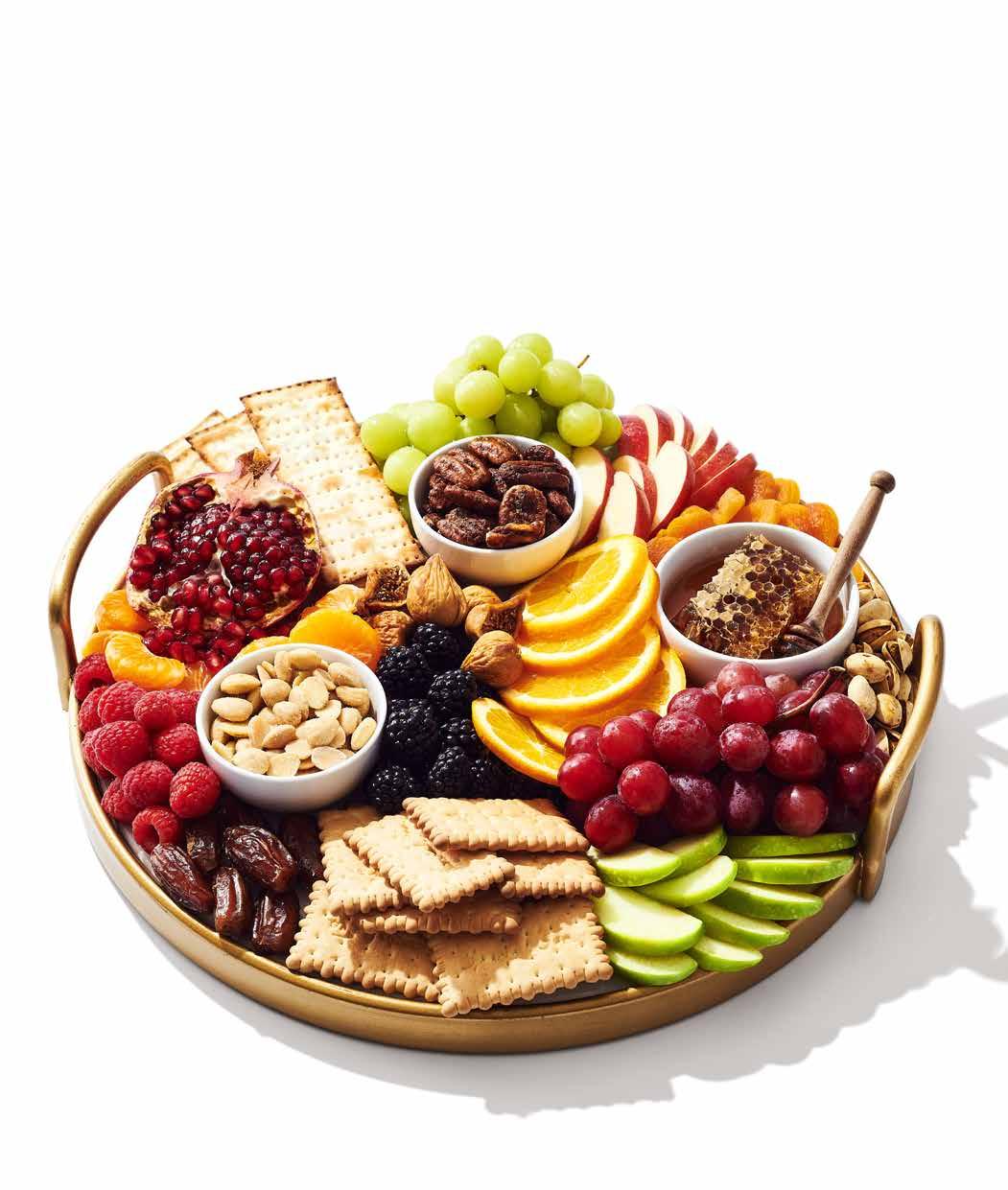Shana Tova 5784

'Reach for the Stars - Be All You Can Be'


ENTERTAINING THIS ROSH HASHANAH?



HOSTING BREAK-THE-FAST?
WE’RE HERE TO HELP YOU START YOUR SWEET NEW YEAR!





ENTERTAINING THIS ROSH HASHANAH?



HOSTING BREAK-THE-FAST?
WE’RE HERE TO HELP YOU START YOUR SWEET NEW YEAR!


With a name inspired by the Monarch butterflies that call our Legacy Gardens home, Monarch Pavilion is the beautiful new four-floor neighborhood for all of Canterbury Court’s healthcare services. Featuring Assisted Living and Memory Support as well as Skilled Nursing, residents of all faiths receive the healthcare they need with the warm, person-centered approach Canterbury Court is known for.


To learn more and to schedule a personal tour, contact us today at (404) 201-6988, visit canterburycourt.org/expertcare, or scan the QR code.
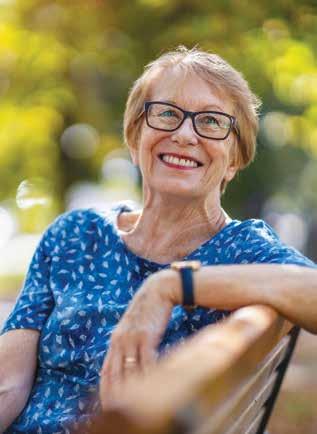
PUBLISHER
MICHAEL A. MORRIS michael@atljewishtimes.com
MANAGING PUBLISHER & EDITOR
KAYLENE LADINSKY kaylene@atljewishtimes.com
EDITORIAL
Associate Editor & Website Editor
SASHA HELLER sasha@atljewishtimes.com
Staff Writer & Proofreader
FRAN PUTNEY fran@atljewishtimes.com
CONTRIBUTORS THIS ISSUE
BOB BAHR
DAVE SCHECHTER
DAVID OSTROWSKY
DEBBIE DIAMOND
CHANA SHAPIRO
JAN JABEN-EILON
MARCIA CALLER JAFFE
RABBI DR. NATAN SLIFKIN
RACHAEL STEIN
RICK FOLBAUM
ROBYN SPIZMAN GERSON
SHAINDLE SCHMUCKLER
ADVERTISING
Senior Account Manager & Team Supervisor
MICHAL BONELL michal@atljewishtimes.com
Account Manager
ILYSSA KLEIN ilyssa@atljewishtimes.com
Account Manager
ELIZABETH LANGFELDER elizabeth@atljewishtimes.com

CREATIVE & DESIGN
Creative Director
LILLI JENNISON lilli@atljewishtimes.com
COMMUNITY ENGAGEMENT
Events and Public Relations Coordinator
KATIE GAFFIN katie@atljewishtimes.com
Atlanta Jewish Connector Coordinator DIANA COLE
Diana@atljewishtimes.com

GENERAL OFFICE
Administrative Assistant
REBECCA LABANCA info@atljewishtimes.com
404-883-2130
 By Marcia Caller Jaffe
By Marcia Caller Jaffe
Jurisprudence co-chair Lauren Spasser opened the Anti-Defamation League program by declaring the group’s duty to protect democracy and announced that day’s event raised more than $300,000.
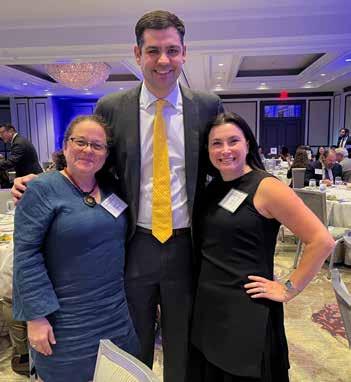
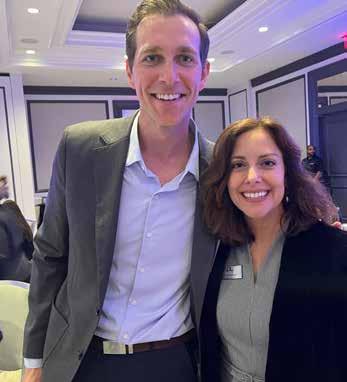

Lawyers bumped elbows and circulated at the ADL's 26th Anniversary lunch at the Whitley Hotel in Buckhead on Sept. 7 to recognize local leaders. Selected as promoters of justice in fair treatment for all, from the Atlanta community were: Lauren Linder, Emerging Leader Award; Norm Brothers, Elbert P. Tuttle Jurisprudence Award; and David Nahmias, Lifetime Achievement Award.
Next, Southeast regional director Eytan Davidson complimented lawyers for being front and center in the fight against hate. He gave a history of the ADL with its bravery against folks like Henry Ford and furthering desegregation and voting rights. “Many Americus Briefs are still in motion with 46 states having hate crime laws based on ADL tenets. Actual cases are ongoing from Jan. 6, Proud Boys, and an especially odd claim against the Mapping Project out of Iceland which is targeting the Jewish community in Boston. All this illustrates the importance of leadership.”
ADL Southeast board chair Joel Neuman stated that he’s used to boycotts from his experience as Coca-Cola counsel as a point of pride.
“Criticism is nothing new. Boycotts come now from the right and left,” he said. Neuman introduced Emerging Leader Lauren Linder who serves as a positive bridge between the Jewish and Black communities. He said, “As the only Black girl in her Pace Academy class, she knew who she was and didn’t play their game where she was told to play the maid in the doll house game.”
Fast track both in sports and academics, Linder went onto the Ivy League, promoting inclusively and activism, now on the Board of Trustees for Pace Academy.
Linder spoke of continually reading Dr. Martin Luther King, Jr.’s speeches and “showing up with love.”
She quoted King, who stated that the destiny of Jews and Blacks are tied together. She said, “We have to be sensitive about the anti-Black, anti-Jewish narratives…some of the photos we see [of Civil Rights marches] only showed Blacks and didn’t accurately represent the white and Jewish faces.”
High profile UPS CEO Carol Tome introduced Norm Brothers, executive VP chief legal and compliance officer for UPS.
Very recently, Brothers negotiated the headlined UPS labor contract, the largest in the history of the U.S. She said Brothers was successful because he didn’t see it as us against them.”
Accepting the Elbert P. Tuttle Jurisprudence Award, Brothers said, “It’s just like finding a turtle on a fence post. You know he didn’t get there alone.” He emphasized that UPS employees have shared values of volunteerism, collectively donating millions of hours.
Especially moving was the Elbert P. Tuttle Jurisprudence Award, which was given to David Namias, former Chief Jus-
tice of Georgia, now a partner at Jones Day. Nahmias was introduced by local author and attorney Kent Alexander, who detailed the former’s stellar career from Briarcliff High School, eventually Harvard Law School, and clerking for Supreme Court Justice Antonin Scalia. He joked that the word “Nahmias” became a verb and adjective…meaning “to Nahmias someone,” and ended that he is no longer intimidated by Scalia but filled with respect.
Nahmias began, “Some here may find it hard to humble me.” Nahmias became very emotional when he began his family
history of his father, “a Jew in Egypt who could have easily been a war casualty, while his mother’s family found themselves in Germany in 1932.”
Citing the Leo Frank case, Nahmias spoke of the importance of maintaining the rule of law and the role of the ADL, as he experienced antisemitism even in Dunwoody. “Tyranny can happen. We have to bend towards the arc of justice, be well meaning and grab it.”
Sam Olens, former state attorney general and most recently appearing on national news shows commenting on the Georgia RICO case against Trump, told the
AJT, “I am honored to serve on the ADL Board. Their mission and purpose is as relevant today as it was in 1913. Combat-
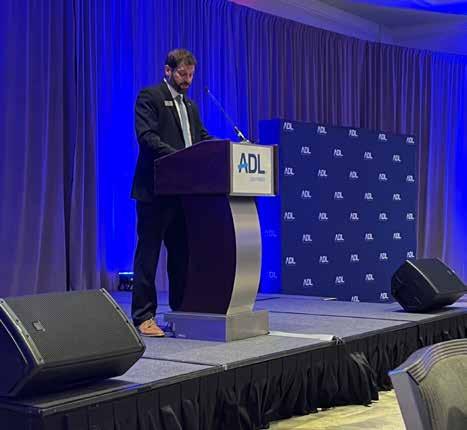
ing hate and extremism, and promoting democracy, is essential to our republic’s existence.
The honorees also richly deserved their recognition for improving our lives.”
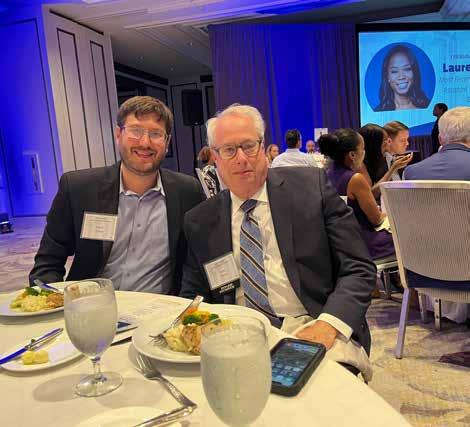

ADL is the world’s leading anti-hate
organization which was founded in 1913 in response to an escalating climate of antisemitism and bigotry. ì
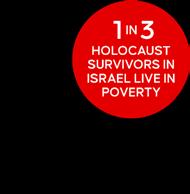
The recent exhibit at the High Museum of Art of artifacts from the ancient nation of Nubia, in what is now Sudan, recalls the role that many historians believe saved Jerusalem from annihilation in the 8th century before the Common Era.
The small scale of the exhibit, “Ancient Nubia: Art of the 25th Dynasty,” belies the oversize influence the Black African nation played for nearly a hundred years when their pharaohs of the 25th Dynasty ruled over much or all of the powerful nation of Egypt.
While their rule from around 734 B.C.E. to 656 B.C.E. was relatively brief, their purported influence in rescuing the center of Jewish life at the time, the holy city of Jerusalem, is a story of one of the great turning points in history.

In his new book, “Why The Bible Began,” to be published at the end of October, Emory University Biblical historian Jacob Wright recounts the many versions of how the great city came to be saved
2,700 years ago.
As the Bible tells the story in 2 Kings 19:9 and Isaiah 37:9, the Kingdom of Judah and its ruler, King Hezakiah, in Jerusalem are under seige by a great Assyrian army.
The Assyrians have already conquered the northern kingdom of Israel and dispersed the 10 tribes, the so-called Lost Tribes of Israel, into the dustbin of history. Now they aim to do the same to Judah, which is seen as an easy conquest.
But in 701 B.C.E., what the Bible recounts as a great miracle, the Assyrians under their ruler Sennacherib, at the last minute, withdraw and disaster is averted. Professor Wright says Hebrew scripture credits it to Divine Providence.
“G-d saves Judah. And there are multiple reasons, even in the text, for why it happens. It could be King Hezekiah just paid him off, gave all kinds of wealth to Syria and they left. But another text in the Bible says an angel of the Lord came to the camp in the night and smote them all. That’s kind of mythical, legendary, whatever. But there may be another reason historically why Assyria left Judah. And there’s no doubt that because it’s depicted in their accounts and there in their annals, and on their walls.”
But there could be another reason, help from a distant Black pharaoh, according to the Canadian writer, Henry Aubin, who wrote, “The Rescue of Jerusalem: The Alliance Between Hebrews and Africans in 701 B.C.” In his six chapter of arguments, with footnotes from 400 scholars, Aubin argues Hezakiah appealed for help from the Black pharaoh of Egypt. He responded by sending an army led by a Nubian prince, who is referred to briefly in the Bible as Prince Tirhakah, to march on the Assyrians. Whether Sennacherib was worried by having to face both the Judeans and the Egyptians or was bought off by King Hezakiah at the last moment or because of some other reason, the Assyrians broke off their siege and left Jerusalem.
Ten years later, the prince becomes one of the Black pharaohs of the 25th Dynasty and Jerusalem is spared for another hundred years or so, time enough to regain their spiritual strength under the influence of King Josiah. It is during his reign that the Book of Deuteronomy is added to the Hebrew Biblical canon and there is a newfound belief in the king-
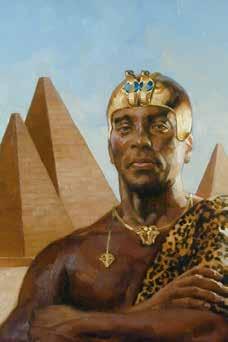
dom’s divine mission.
Biblical scholar Wright sees Jerusalem’s survival not just as a turning point in history, but a turning point in how the city see itself, as somehow blessed by Gd’s favor.
“The division in Israel in the north and Judah in south and the attempt to overcome that and to find a more a more resilient basis for some identity is how the whole Biblical project begins. Out of that comes the belief that Jerusalem can’t go down because G-d is on our side. We have been exonerated and protected; they believe. We did something for G-d to deserve this. It gives them a narrative that continues on, it gives them hope in the future. They develop the belief -that’s what our relationship to G-d has to be going forward and that’s what really produces the Bible and in all of its dimensions.”
Quite apart from how the siege of Jerusalem informs Jewish belief, the practical effect of Judah’s rescue is to preserve early Judaism for another day. Without Jerusalem’s survival, the south would have likely suffered the same fate as the Northern Kingdom.
Had Jerusalem fallen, according to University of Chicago historian William McNeill, Judaism would have ceased to exist, leaving nothing to build on centuries later.

“Think of what that would mean,” McNeill wrote, “for without Judaism, both Christianity and Islam would become inconceivable. And without these three faiths, the world as we know it becomes unrecognizable: profoundly, utterly different.” ì
Forbes’ Best-In-State Wealth Advisors, April 7, 2022. Rankings are based on the opinions of SHOOK Research, LLC, and were selected from a pool of 34,925 nominations. Neither SHOOK Research nor Forbes receives compensation from the advisors or their firms in exchange for placement on a ranking. The ranking may not be representative of any one client’s experience and is not indicative of the financial advisor’s future performance. Investment performance is not a criterion for selection. Forbes is a registered trademark of Forbes, Inc. All rights reserved. For more information on the selection methodology, see www.stifel.info/award-disclosures. Neither Stifel nor its financial advisors provide legal or tax advice. Please consult your legal or tax professional if expert assistance is required.
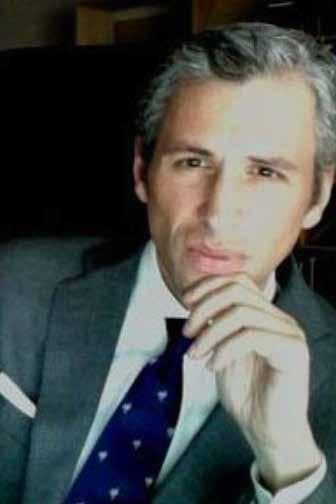
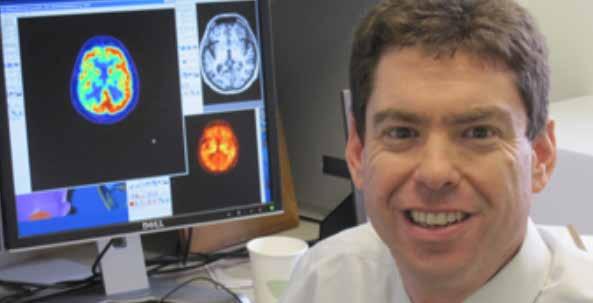 By Bob Bahr
By Bob Bahr
Israeli medical researchers have come up with what they believe may be a breakthrough in the treatment of Alzheimer’s disease. The illness, which affects an estimated 40 million persons around the world, including six million in the United States, is the leading cause of dementia in this country.
The disease, which is difficult to treat, is the source of considerable anxiety and stress among families and caregivers who feel they are helpless during the relentless advance of the illness.
The Israeli scientists, who emphasize they are only in the preclinical trial, have developed a treatment that interferes with the development of a protein in the brain called PTEN, which up to now was thought to be involved only in the development of cancer. But the scientists working at the Ben Gurion University of the Negev found high levels of PTEN interacting with another protein called PSD-95 that can cause breakdowns in communication along the many nerve cells in the brain. The result is deterioration or atrophy in key areas that are involved in memory.
The director of the University of the Negev’s Molecular Cognition Lab, Dr. Shira Knafo, believes that the way the two pro-

teins interact erodes the passageways that produce memory.
“When there’s too much of the PTEN
protein, it becomes toxic to the synapses. What we saw is that in Alzheimer’s disease, the (surplus) PTEN enters the synapses and
causes them to be much weaker. When they become weak, they can’t pass information that well, and then you see loss of brain function and memory because the synapses are considered to be the place of information storage.”
The laboratory developed a peptide, which is one of the fundamental substances in the production of proteins, to prevent PTEN from degrading memory.
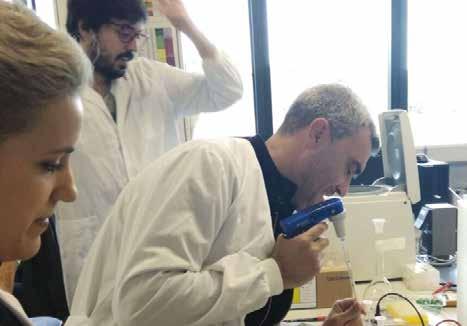
Whether the breakthrough in the understanding of how various proteins function will ultimately produce an effective therapy for the treatment of Alzheimer’s will depend on the results of peptide trials, which are taken orally in the United Kingdom, China, Hong Kong, and Israel.

AstraZenica, the European biomedical company has also begun testing a medication called Saracatinab, which, like the Israel research, aims to allow synapses to communicate better. Research in mice has shown the drug to reverse some memory loss and testing has been expanded to human trials.
In the United States, there have also been some promising developments over the last several years to develop treatments that can slow the progression of the disease. In May, the American drug manufacturer Eli Lilly and Company announced that results of stage III trials for its new Alzheimer medication, Donanemab, showed that the drug, in patients that were in the early stages of the disease, could slow its progression by as much as 35 percent.
The drug is a monoclonal antibody drug, which means it mimics the behavior of proteins in the body that fight off infections or other disorders. The drug, which is expected to be submitted for approval by the FDA next year, joins two other monoclonal antibody treatments that have received
federal approval. All three of the drugs are aimed at preventing or even removing what are called amyloid plaques, or clumps of the protein that come together in the brain and are believed to disrupt memory functioning.
The trials for Donanemab showed that patients also had a 40 percent lower risk of moving from mild cognitive impairment to more serious memory loss. Similar results for memory loss were reported for the drug Lequembi, which received final FDA approval in July. The two therapies join a third treatment, Aduheim, which was announced last year.
The news of the three treatments has been greeted with cautious optimism by researchers and medical brain specialists, including a number at Emory University’s Brain Health Center, who have been quick to point out that the drugs are expensive, not always easy to administer, require careful and expensive monitoring, and can cause abnormal swelling and bleeding in the brain and can even result in death.
Because they seem to only be effective in cases of Alzheimer’s disease that are considered to be at an early stage, they are not useful for those who have more serious symptoms. Still, Dr. Gil Rabinovici, director of the University of California San Francisco Alzheimer Disease Research Center, wrote in an editorial of the Journal of the American Medical Association this summer that the results of the latest monoclonal are “just the opening chapter in a new era of molecular therapies for Alzheimer’s disease and related neurodegenerative disorders.”
But he went on to write that the drug’s potentially serious side effects should encourage researchers to “aim higher in developing more impactful and safer treatments.” ì
The Dunwoody Minyan began holding Shabbat services in March 2022 when a group of Dunwoody residents decided to start a Modern Orthodox minyan in their community.

Begun by Rachel and Avi Binstock, David and Stephanie Lubin, Jeremy Schulman, Sheila and Kevin Cranman, Hugh and Jill Mainzer, and Bruce Barron, the group has grown to 14 families who regularly participate in Shabbat services. Dunwoody Minyan is open to all in the community and there is no charge to participate.
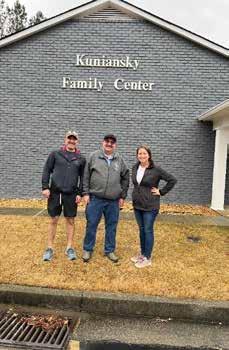
Shabbat services are held at the Teen Center of the Marcus Jewish Community Center of Atlanta. Childcare and a Tot Shabbat are free and offered concurrently in the Kuniansky Family Center of the MJCCA. High Holiday services have been added, and the group anticipates continued growth among those who live in or near Dunwoody. The location falls within the Dunwoody Eruv, and full security is offered during all Shabbat and holiday services.
“The Dunwoody Minyan offers worshippers the opportunity to join a community that is young and dynamic,
one in which participants can put their own fingerprints on the development of a new organization. We are working
hard to develop something special,” said Schulman.
The group is guided by Modern Or-
Once again, it is that time of year when our shadows grow a bit longer, the air gets a little cooler (please, G-d!), and we anticipate the distinctive plea of the shofar: a sound that straightens our spines, awakens our ears, and draws us near.
This month, the National Council of Jewish Women (NCJW) celebrates 130 years of activism, organizing, and service to others. Two years following the establishment of the national organization, our Atlanta section opened its doors in 1895. Our original mission—to promote the welfare of women, children, and families in our community—has only become more imperative with time.

TEKIAH. We hear the summons and take note of its deep resonance—and its call to notice the world around us. As we’ve done since our founding, we hear the call of the strangers, the new refugee families to our community. We provide warm welcomes with much-needed items, and we support those refugee women who are starting their own businesses.
We hear the desperate call of women in need of reproductive health care and abortion access. We advocate for reproductive justice and provide support and compassion with
our post-abortion comfort care kits to those making the difficult decisions. We provide menstrual products to homeless women and teens hidden throughout our community. We teach teens about reproductive health, guiding them and their peers through their own health choices. We are emboldened by the 50+ Atlanta area clergy who signed NCJW’s Rabbis for Repro pledge to use their voices to teach the Jewish value of reproductive freedom.
SHEVARIM. We listen to the fragmented call, reminding us of the breaks in our world and of attempts to fracture our democracy. We advocate for a qualified, non-biased judiciary as well as for free and fair elections, particularly among those in our underserved communities. And especially now, as we approach the brink of another monumental election. Justice, Justice Shall You Pursue is our call to action.
The shofar blasts beckon us to support our children and help them thrive. We tutor children in Title 1 schools through our Atlanta Jewish Coalition for Literacy program and provide backpacks and school supplies for those in need. We advocate for an end to banning books, trusting overall that parents make the best choices for their children. We support lobbying efforts on behalf of maternal and child healthcare in our state. And we turn fractures into sparks of joy for area children through our Mother’s Day Jewelry Pop-Up Shops in Title 1 schools.
TERUAH. The rapid, staccato sounds resonate with us as we work towards a kinder world. We hear the hunger calls from too many in our community, so we help provide food for our homeless and nearly homeless neighbors. We educate ourselves
and our community on issues that should not be divisive in our society: the scourge of antisemitism, the logical reasoning for gun safety legislation, and the power of loving those in the LGBTQ+ community.
TEKIAH GEDOLAH. The long, breathy final call of the shofar reminds us that its effort is not for the faint of heart. NCJW’s decadeslong call to action continues with strength, forbearance, and compassion. It is no surprise that our national organization and Atlanta Section were both founded on the cusp of the Jewish new year—a time of introspection, of renewal, and of making our world a better place for others.
NCJW Atlanta includes member advocates from all over Atlanta who are devoted to making a difference in our community. Visit our website at https://ncjwatlanta.org/ or email us at ncjw@ncjwatlanta.org.
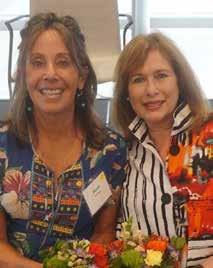
thodox and Orthodox halachic religious authorities. Currently, the minyan is led by lay leaders who have the ability to conduct all of the prayers from Shacharit to Mussaf, read Torah or Haftarah, and participate in the multiple sections of the service. Each Saturday, the group hosts a Kiddush for all worshippers.
“We have had up to 40 worshippers at our services and a good mix of new families to Atlanta and Dunwoody, existing families, local residents, and seniors. We are a welcoming group, and happy to
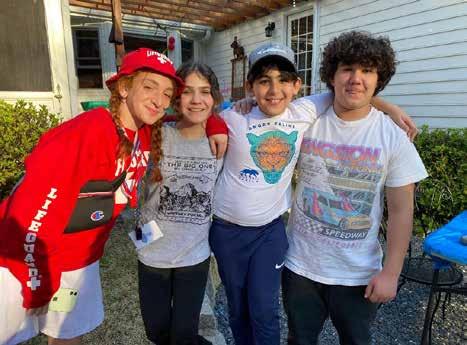
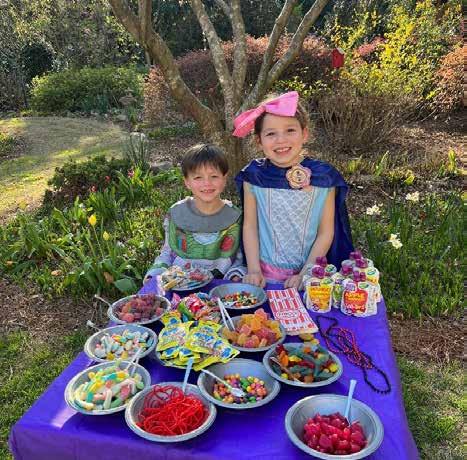
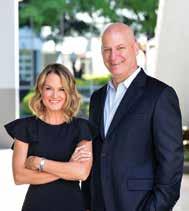
be part of the Atlanta Orthodox community,” said Schulman.
A brand new Sefer Torah was donated recently by a generous benefactor from the community. A dedication ceremony is planned for later this year.
High Holiday services will be held again this year at the MJCCA. For more information about services and the Dunwoody Minyan, please visit www.dunwoodyminyan.shulcloud.com/ or www.facebook.com/ groups/293600509594792/. ì
 By Bob Bahr
By Bob Bahr
Leah Warshawski was on what was planned to be a month-long camping trip in Idaho with her husband, Todd, when she first heard of the fires in Maui on Aug. 8. Fires had also sprung up near her home in Kula, in the hills near the center of the island, and her neighbors were calling to see if they could help remove important items from her property.
Fortunately, the flames never reached her home and two days later she was on the island to see firsthand the damage that the fires, fed by dry grasses and high winds, had done to the island.
Although her home was spared, 20 homes in her neighborhood were destroyed and, just over 20 miles away in the town of Lahaina, where thousands once lived was just ashes, with only a single building stood untouched along the shore.
Earlier this month, the death toll from the fires stood at 115, with half the dead still unidentified. Fifty-six are still unaccounted for. More than 2,000 buildings were destroyed, property losses are
estimated to be $5.5 billion. The fires on Maui are among the half-dozen deadliest blazes in U.S. history.
Hawaii’s governor has tapped $100 million from a federal program that provides temporary assistance to needy
families. Another $25 million has been made available in grants of $10,000 and $20,000 to help those businesses that survived to stay solvent.
Donations have flowed into local chapters of the American Red Cross, the
Maui United Way, and other local charities, but the fires have only magnified what Warshawski sees as the chronic inequities that have long existed on the island. “There are a lot of people who have nowhere to go and aren’t sure where
SATURDAY, SEPTEMBER 16
ROSH HASHANAH DAY 1 10:00 - 11:30 AM with Mrs. Yocheved Sidoff

SUNDAY, SEPTEMBER 17
ROSH HASHANAH DAY 2
10:00 - 11:00 AM with Mrs. Yocheved Sidoff 11:00 - 11:30 AM Shofar Service with Rabbi Chanan Rose


MONDAY, SEPTEMBER 25
YOM KIPPUR
10:00 - 11:30 AM with Dr. Miriam Udell & Rabbi Chanan Rose




Together, let's celebrate the beauty of our heritage and embrace the joyous journey of Jewish belonging. May the High Holidays be a source of inspiration and renewal for us all. You BELONG Here. Visit chabadintown.org/youbelonghere or call 404.898.0434 to learn more and register for your services and programs.

they’re going to go. There was a housing crisis before this happened. And now the housing crisis here has just been highlighted. The homelessness was, you know, kind of hidden in plain sight before this. And now that’s just been amplified.”

Warshawski, a prize-winning documentarian whom the AJT interviewed at the Atlanta Jewish Film Festival several years ago, is still dazed by all that has happened in the last month.
“I think the whole island is still in shock. It’s kind of a nightmare that you wake up to every day. We have a lot of friends who live there and lost everything. What’s more traumatic about it, I think, is that people were trapped in the way that it happened. There have been small fires on Maui before. There are fires in Hawaii all the time. But for this magnitude of catastrophe is just hard to grasp.”
Some of those who survived have found temporary lodging in the island’s hotels, many of which were untouched by the flames, while some are living in tents and others in their cars. She says the latest estimate is that 12,000 persons have been displaced.

Among them is a surfing instructor, Robert “Bully” Kotter, who lived in Lahaina and who, prior to the fire, Warshawski profiled for a short film. The idea behind the film was how, during the COVID pandemic, the surfer taught young people an appreciation for the sport and for the ocean waters that surround the island, as a way of helping them through the trou-
bles caused by the virus.
Now, he is in trouble. The fire consumed all of his possessions and he is homeless. A short clip from the documentary was shown on a recent broadcast of ABC’s “Good Morning, America” and she is struggling to update the film she made to give others some idea of how the tragic fire has interrupted the lives of those who, until now, had been so generous to others.
“There’s just a big sense of uncertainty and anxiety. It’s a really difficult mix,” Warshawski says. “And at the same time, there’s a lot of good happening. The community has really come together. I mean, we pretty much dropped everything that we were doing, everything that was normal life when this happened, and now we’re trying to figure out how to get back to some sense of normalcy.”
Despite the destruction, Warshawski and her husband aren’t going anywhere. The experience of living through the last month when so many have spent day after day helping others, providing food and shelter, and care for families and their children, have convinced them that this is a community they have no intention of abandoning.
As she approaches these High Holidays, what she has seen in the generosity of her neighbors has provided her with a rich spiritual sense of gratitude.

“Even though we’ve been through this immense catastrophe,” Warshawski says, “we have also been reminded of how good people can be.” ì

No prayer signifies the arrival of the High Holy Days more than Avinu Malkeinu, with its soaring, soulful melody and its communal plea for compassion and mercy. It’s even gone viral, with Barbara Streisand’s rendition logging more than 10 million views on YouTube.
And yet, Avinu Malkeinu – Our Father, Our King - presents a yearly dilemma for Jews whose understanding of G-d transcends gender, who view G-d as neither a father nor a king.
If this describes you, maybe you’ve devised your own work-around, leaning into the music or skipping the monikers you find troubling.
But what if your seat is up on the bima? What if the words make you uncomfortable, but your actual role is to lead the congregation in song and prayer?
“I truly feel that my job is to sing with a full heart,” says Beth Schafer, the Bunzl Family Cantorial Chair at Temple Sinai in Sandy Springs. “If I want the congregation to feel the liturgy in their hearts, I have to sing it and feel it in my
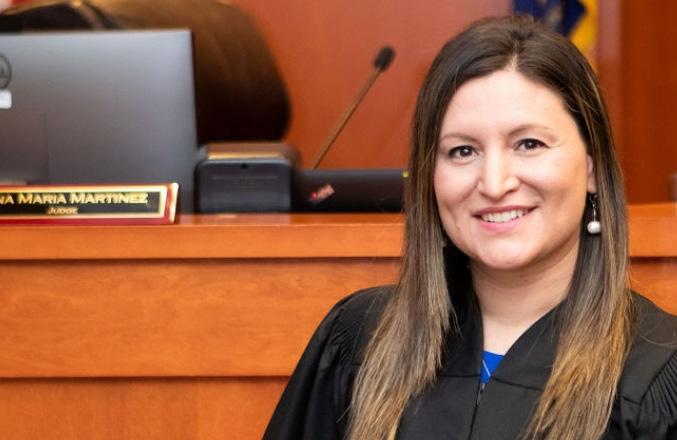
own heart.”
But about six years ago, that had begun to present a real problem for Schafer. After more than two decades leading congregations in Avinu Malkeinu, she’d come to the realization that the High Holiday’s central invocation does not, in fact, reflect her own personal understanding of G-d. The Hebrew of the patriarchal words, she says, started “poking through.”
“There’s been a cognitive dissonance. You know, ‘Don’t think about it. Don’t think about it,’” she says, explaining her own ruminating work-around, “because the music is so endearing. We’re just going to ignore the words. Just go with it. Because that’s what we do.”
Suddenly, Schafer couldn’t just go with it. “What about people who are new to Judaism? Who are choosing Judaism?” She thought about younger congregants learning about Judaism’s values and ethics. “What about our children? What do we tell them when we’ve enshrined this text? How do we defend it? Do we just say we just go with it because we liked the music? That’s the question I
asked myself.”
And she’s not alone. Rabbi Dalia Marx, PhD, is a professor of liturgy and
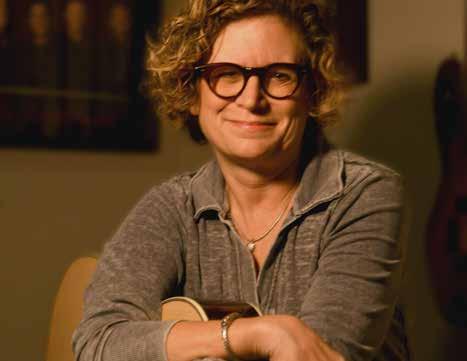
midrash at the Jerusalem campus of Hebrew Union College–Jewish Institute of Religion. Her eight-year-old essay en-

As we celebrate the new year together, I want to thank you for the opportunity to serve you as your Division A6 DeKalb County State Court Judge. From my family to yours, I wish you a happy new year! Judge Ana Maria Martinez
titled, “What Are We to Do With Problematic Liturgical Passages?” specifically mentions Avinu Malkeinu
“Carried along by the wave of the haunting melody, we sometimes forget that Avinu Malkeinu contains some difficult challenges,” Marx writes. She cites Rabbi David A. Teutsch, PhD, who wrote, “Perhaps more than any other prayer, Avinu Malkeinu invokes the image of a long-bearded king sitting in judgment upon his throne. Some are struggling to escape from the transcendent imagery of G-d,” Teutsch writes, “and replace it with the divine within. Some have trouble with the maleness in the image.”
Schafer says, “It’s great to be a Reform Jew. Because we do have the liberty to visit and revisit and change with our times in a respectful way.” She mentions changes in the Amidah, the Reform Movement instituted in the 1980s, adding the names of the matriarchs Sarah, Rebecca, Leah and Rachel.
Of this change, many Conservative Jews were critical. “No sensible person denies the importance of the matriarchs,” Rabbi Jules Harlow wrote in 1997. “The problem with the liturgical change in this blessing is at least twofold. It violates the liturgical and literary integrity of the classic text of the blessing, and it breaks the close link between the language of the Bible and the language of the prayer book.”


It’s not just the Amidah. In Reform shuls, Miriam’s name accompanies Moses
in the Mi Chamocha. Progressive Jews have traditionally welcomed change. But Avinu Malkeinu has stubbornly remained untouched. Schafer, a classically trained composer with seven albums of Jewish music to her name, decided it was time to try.

She says she knew it wouldn’t be as simple as updating the words and leaving the beloved melody alone. “The music is so ingrained in our Jewish identity and how we experienced the Holy Days.” To think that she could write her own version, Schafer says, was the height of chutzpahdik. “I mean, I even said that to myself and I’m sure other people are saying it as well.”
Rather than the words Avinu Malkeinu, she decided upon M’kor Hachayim, “Source of Life,” words that the Sinai clergy team have been using for a few years when the prayer is spoken. The rest of the text, she left unchanged. Next, she tackled the music.
Her first two attempts wound up in the trash. After her third, she says, “I thought this is it, this is the one.” She chose a similar tempo to the Max Janowski composition Streisand made famous, 55 beats per minute, with a slow, relaxed heartbeat. “I chose pensive, pleading minor harmonies, but also hopeful, major ones.” She humbly believes it’s among her best work.
Schafer will present it to her Temple Sinai congregation this Kol Nidre, but will still sing Avinu Malkeinu at other services. “(The traditional version) takes people back to all the Holy Days they experienced. It makes them remember the people who are no longer standing with them at the New Year,” says Schafer. “It goes straight to the heart and the soul of those who are really trying to pray during the Holy Days and so I am continuing to sing it. But I wanted to offer something to sit next to it that is more in step and aligned with what we’re trying to do with our language.”
In June, Schafer performed M’kor Hachayim at the American Conference of Cantors Convention in San Diego. Clergy from Los Angeles, Chicago, New York, Miami, and more than 20 other congregations now plan to include it in their High Holiday services this year. Many came up to her after hearing her perform it and said, “It’s time.”
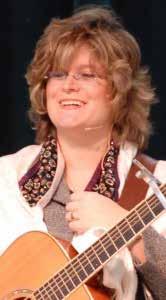
Schafer says she understands not everyone will embrace it. “I would imagine that people are going to fall on both sides and that’s okay. But I hope that it inspires conversations about how we express the name of G-d and how all are represented. And, if my piece of music can do that, I will be proud and grateful.” ì



 By Jan Jaben-Eilon
By Jan Jaben-Eilon
In a groundbreaking move, several Atlanta rabbis have invited Israeli organizers of the local grassroots protest movement to speak to their congregants and the wider Jewish community during Sukkot, one of three Jewish pilgrimage holidays but one that places special emphasis on hospitality.
The “Atlanta Israel Democracy Sukkot” program is the brainchild of Israeli American Dotan Harpak who told the AJT that the idea started percolating in his mind over the summer when he was in Israel and attended several of the widespread weekly protests that have consumed the country since January. The protests, which have unified hundreds of thousands of Israelis from the high tech, medical, academic, military, economic, LGBTQ, religious, secular, left-wing and right-wing communities, are focused on concern that Israel’s democracy is being weakened by the agenda of the current Israeli government led by Prime Minister Benjamin Netanyahu.
When Harpak told fellow protest-
ers in Israel that the Atlanta Israeli and Jewish community had been conducting their own protests in support of Israel’s since February, he heard overwhelming appreciation by the Israelis.
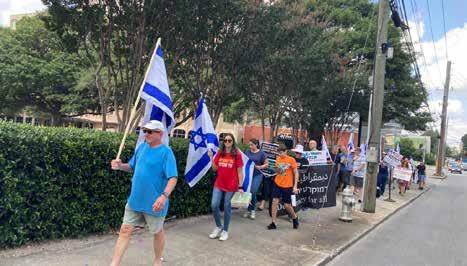
In Atlanta, Harpak noted an increasing number of Jewish non-Israelis participating in the local protests, most recently on Sept. 10 when the group marched – for the second time – from the Jewish Federation of Greater Atlanta’s building down Spring Street to the Consulate General of Israel location. But he also realized that there are a lot of questions among Jews who don’t constantly keep up with the Israeli news and “don’t understand what’s going on.”
“It might seem like just another political crisis in Israel, like we’ve seen the last few years, but this is about the very soul of Israel. The idea behind the Sukkot program is to create a safe and welcoming space to have an open and honest conversation” about what is happening in Israel, he said.
He likened it to the sukkah itself. “It’s a delicate structure and place in which we build trust and community,” he
said. “It’s delicate and fragile like Israel, and American Jews want to keep visiting it, but a strong gust of wind can make it disappear. The sukkah is a place to talk to people about what we fear and what it means to the people in Israel from various communities in Israel. And it feels like the right place to have this conversa-
tion.”
The congregations that are opening their sukkot for the program both to their congregants and to anyone in the Jewish community cut a broad swath across Atlanta, from various streams of Judaism. “We’re proud of our local community to see this many congregations who want
Richard Weinman, DMD
For receiving Georgia Dental Association’s highest honor, the Award of Merit, in recognition of your contributions and service to the dental profession.
Thank you for your many years of dedication and service to the Ben Massell Dental Clinic.Dozens of Israelis and Atlanta Jews, including three congregational rabbis, participated in the Sept. 10 protest that started at the Jewish Federation of Greater Atlanta and marched down Spring Street to the Consulate General of Israel Atlanta.
to take part and who have different perspectives on Israel. It’s heartwarming to see these congregations opening their doors to us. I understand that they want to engage their congregations in these conversations,” said Dotan, who added that he’s unaware of any other city doing this kind of program.
Among the congregations that are participating in the program are Congregation Or Hadash at 12:30 p.m. on Sept. 30, Congregation Shearith Israel, at noon on Oct. 3, The Temple later that evening at 7:30 p.m., and Temple Sinai on Oct. 6 at noon. The wider list of congregations was not complete at press time, however, Harpak said Atlantans can get the latest details at Atlanta for Democracy on Facebook and WhatsApp.
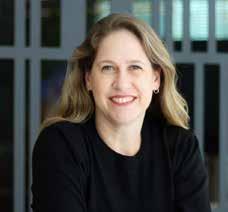
“We always keep Israel front and center at Sinai, and we’ve been covering the proposed judicial overhaul since the beginning with many sessions, sermons, and writing dedicated to it. When approached by this grassroots group of Israelis looking to partner with local synagogues during Sukkot, the fit was logical. Sukkot is such a meaningful festival, one that symbolizes fragility, fleetingness, and gratitude. Sitting in the sukkah and discussing Israeli current events through this lens seemed liked a wonderful way to spend some of the holiday,” said Sinai Rabbi Natan Trief, director of adult learning.
Harpak emphasized that the sukkot program is the first Israeli-led program to reach out to Atlanta congregations. He sees the issues that are shaking the populace of Israel as “completely different” from other issues that have divided the country, “so the way we address it must be different than ever before. The way we talk about it and mobilize must be different.”
His perspective is echoed by one of the Israeli American organizers of the local protest movement who will also be leading some of the conversations in
“The idea behind the Sukkot program is to create a safe and welcoming space to have an open and honest conversation” about what is happening in Israel, said Dotan Harpak, appearing here at the Sept. 10 Atlanta protest // Photo credit: Michal Arbilly

the congregational sukkot. “This is not a right or left issue,” said Meirav Mayer. “The organizers have different opinions about political views. In Israel, some of the protesters voted for Netanyahu. This is not a pro or against Netanyahu movement. He’s been prime minister for years.”
Mayer said that while Israelis have been protesting for 36 weeks straight, it is time for the organized American Jewish community to speak up. “Some rabbis say they feel they have to support Israel, right or wrong, but we’re supporting Israel, just not the government. We’re supporting a Jewish and democratic Israel,” said Mayer. “We’re supporting the ‘startup nation’ that will no longer exist if all the proposed laws are passed.”
The Netanyahu government announced its plans to overhaul the country’s judicial system in January, just weeks after the coalition government was formed. Since then, the military and economic picture has darkened. Thousands of voluntary reserve members in Israel’s army have announced that they won’t report for duty, weakening especially the country’s vaunted air force.
Then, in early September, the Israeli Finance Ministry reported that foreign investment in Israel dropped 60 percent in the first half of this year. An organization that tracks Israel’s technology industry reported it had seen a 29 percent decrease in private funding in the industry in the first half of 2023 compared to a similar period in 2022. Initial public offerings and mergers and acquisitions also hit a five-year low. The Israeli shekel has declined to its lowest level in years, at 3.85 to the dollar.
This month, the Israeli Supreme Court is scheduled to consider several petitions filed against the overhaul legislation that has already passed the Israeli legislature, controlled by Netanyahu’s government. ì
With the growing threat of a war with Hezbollah, we can’t ensure this Rosh HaShanah will usher in a peaceful year. But with a new campaign to add 300 urgently needed ambulances to MDA’s fleet, we can save lives no matter what 5784 brings.
Make a donation today or contact us about how you, your family, or synagogue can provide the ambulances MDA will need. Visit afmda.org/give or call 866.632.2763.

As Israelis rejoice in the sound of the shofar, we’re also preparing for the wail of the siren.
“Some rabbis say they feel they have to support Israel, right or wrong, but we’re supporting Israel, just not the government,” said Meirav Mayer
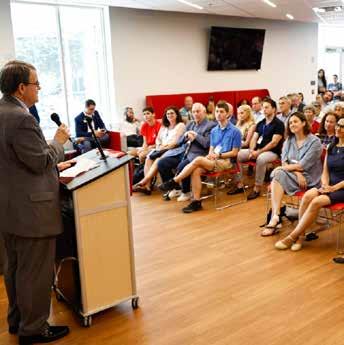 By Bob Bahr
By Bob Bahr
The Hillel program at the University of Georgia dedicated a new $6 million building on the Athens campus on Aug. 25.
The 10,000-square-foot facility, which was formerly the university’s Baxter Street bookstore, triples the space of the building it replaces, a much older structure that had served for more than 60 years as the Hillel center.
The new building is the culmination of an effort that dates back over a halfdozen years.
It had been shepherded along by Michael Coles, the Hillels of Georgia board chair, with major gifts from the Marcus Foundation, Sanford Orkin and the Orkin family, and two dozen other large donors.
“We have built a world class Hillel at the University of Georgia campus,” Coles said. “People will be coming from all over the country to see this building that will give students and others a home away from home.”
The new structure, which is called the Orkin Hillel Center, took just over 14 months to build out. It will have a newly
constructed kitchen for the Shabbat dinners, which are a feature of the program, a new coffee bar on the ground floor, as
HAPPY ROSH HASHANAH

Wishing
ROBIN BLASS REALTOR® 404-403-6561
ROBIN.BLASS@HARRYNORMAN.COM
LAUREN BLASS SOLOMON REALTOR® 770-789-4464
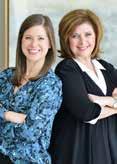
well as lounge areas and meeting rooms.
The second-floor worship area will welcome students, faculty, and local Jewish residents, for a full, inaugural schedule of High Holiday worship services on Rosh Hashanah and Yom Kippur.
The broad participation that the worship services encourage in the campus community underlines what the new CEO of Hillels of Georgia, Rabbi Larry Sernovitz, describes as the important role that Hillel plays in building bridges to Jewish life.
“That’s the beauty of what Hillel can do,” Sernovitz said. “While we foster Jewish life on campus, we also really build connections and help make the world a better place. We care deeply about leadership and our commitment is to help create the Jewish leaders of tomorrow, many of which will stay in the state of Georgia and help to make our state and our local communities better as a result.”
The dedication of the new facility also attracted UGA President Jere Morehead, along with the athletic director, Josh Brooks, and basketball coach Mike White. They brought along Hairy Dawg, the costumed mascot of the football program and the two large trophies the university earned in back-to-back national collegiate football championships in 2021 and 2022.
The excitement that is created around the football program has given UGA Hillel Director Jeremy Lichtig the opportunity to showcase the new facility as the university hosts four games on their home field.

“The first month or so of events that
we have going on, we really are showing the students of UGA that there’s a smorgasbord of Jewish programming here. We want students here to find a path to Jewish life that resonates with them and something that they can build on. Our programs are guided by the 42 members on our student executive board, who oversee five different committees that help to build relationships with students.”
The new building will serve a Jewish community that has grown from about 600 students when Lichtig first came to the Athens campus more than seven years ago to about 1,100 students today.
For some, from small Jewish communities around Georgia and the Southeast, it is an opportunity to explore their Jewish identity in ways that were not available before. For those from larger Jewish communities, according to Lichtig, it’s an opportunity to take the next step on their Jewish journey. So, he is grateful for the many partners the program has cultivated.
“We’re very lucky here because the school, the community, the parents, they all see the value in what we are doing, and everybody wants to help in their own way and build relationships. There’s not many places in the United States that have that kind of partnership across the board…with the university as a wonderful, full partner along with the support we get from the Athens Jewish community and the Atlanta Jewish community.”
At the Hillels of Georgia office in Atlanta, Rabbi Sernovitz, who came to the organization from Temple Kol Emeth in Marietta only two months ago, the future
looks bright.
In addition to the millions that were raised for the new building, a $2 million endowment for the UGA program
is almost halfway toward its goal, and there are prospects for future growth all around the state.

“We span across the state of Georgia
to our metro Atlanta campuses, to Kennesaw State, which is the fastest growing university here, to Athens and others,” Sernovitz said. “We’ve recently got calls
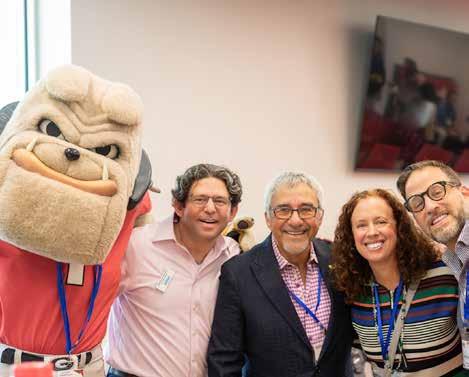
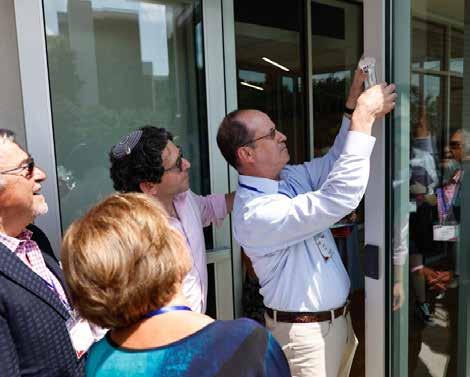
from Georgia Military Academy and Berry College, and we support Agnes Scott and Oglethorpe and others. I feel like we’re overwhelmed with opportunity.” ì

| www.judgebrianlake.com
On behalf of my wife, Katherine, and myself, I wish you a very happy new year! It is my privilege to serve as the newest member of the Superior Court in DeKalb County. I wish you peace and blessings.
Judge Brian Lake(From left) UGA’s Hairy Dawg, Hillels of Georgia CEO Larry Sernovitz, Hillel Board Chair Michael Coles, Amy Dosik, Yoni Kaiser Blueth // Photo Credit: Savy Photography/Hillel Sanford Orkin affixes a mezuzah to the Hillel Center named in honor of his family // Photo Credit: Andrew Davis Tucker/UGA
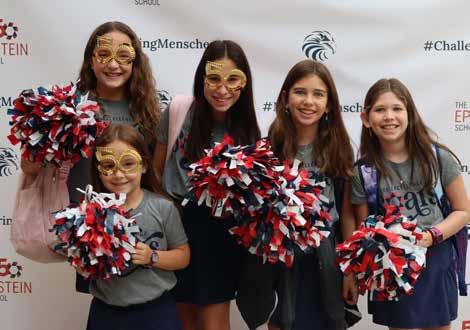
 By Sasha Heller
By Sasha Heller
Fifty years of Jewish education. Fifty years of community service. And fifty years of inspiring Jewish youths to become the best versions of themselves that they can be.
The Epstein School is celebrating its 50th anniversary this year with a series of programming highlighting the school’s impact in the community over the years.

“We are truly celebrating our history,” said Dr. David Abusch-Magder, head of school. “We are proud of the leadership role we have taken in Atlanta Jewish day school education over the past 50 years.”
While the school’s curriculum may have changed over the years, AbuschMagder said, the objective is still the same – prepare Jewish Atlantan students to be role models in the Jewish community and abroad.

“Over these years, the models of education have evolved, as has the vision for Jewish day schools,” Abusch-Magder said. “Throughout that time, we have been responsive, adaptable, and innovative – and

we have thrived.”
The headmaster noted that Epstein’s enrollment numbers have been steadily on the rise for several years, with a full early childhood program and waiting

lists for many other grades. Epstein’s school year calendar is brimming with celebratory programs and school spirit. The following is just a selection of planned activities that will
honor the school’s milestone:
• Back-to-school week featuring swag, anniversary décor, and more for faculty and staff during the week of Aug. 7-10;
• Annual kick-off to the school year on Aug. 27 that carried the 1950s theme, featuring train rides, bounce houses, face painting, crafts, and more;
• Major donor event on Aug. 30, held this year at the school with a catered dinner and guest speakers; the Crew in Blue students, who also serve as leaders of the Epstein House System, served as ambassadors, leading tours around campus;
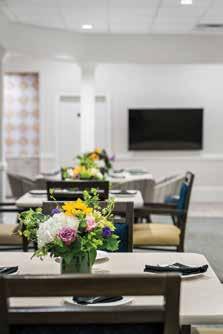
• School-wide celebration of the 50th day of the school year slated for Oct. 3;
• Kick-off the 50 Days of Giving drive on Nov. 28 (Giving Tuesday);
• Special VIP Day on Dec. 15, also known as Grandparents or Special Friends Day;


• Annual Alumni Homecoming Basketball Game on Jan. 10, 2024 (Epstein vs. Davis Academy);
• PTO will host a 1950s-themed sock hop on Jan. 20, 2024;
• A TBD-themed alumni event set for Feb. 24, 2024;


• Annual celebration gala in the spring of 2024;
• All-school Maccabiah events in May 2024.
When asked what is different about Jewish education today compared to when the school opened, Abusch-Magder said, “Our world, and our Jewish world, have shifted over the last 50 years. When Epstein was founded, Jewish day school education was very focused on teaching content, religious observance, mitzvot,
etc. The desire for a Jewish education has not changed, but what that experience looks like has significantly changed since 1973.”
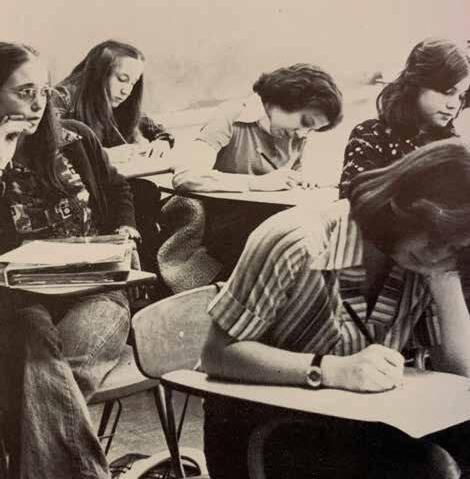
He continued, “For instance, a fundamental piece of Jewish education has always been to think deeply, question content, search for meaning – those practices were taught in 1973 but are far more in the foreground and intentional at Epstein today. Over the years, we have changed the physical structure of the classroom and the structure of our program to inspire collaboration, group discussion, and, most important, questioning. We encourage our students to always think about and to be empowered to ask, ‘Why?’”
Abusch-Magder summed up the occasion with a nod both to the future and the past.
“Looking ahead to our 50th anniversary, we were inspired to reflect on our successes and accomplishments over the last five decades and imagine how we can keep evolving and meeting our community’s needs for the next 50 years…celebrating milestones offers an opportunity to reflect on your past – what paths you took to get where you are; celebrate the accomplishments and achievements of today; and build a vision for tomorrow –planning for the future.”
The Epstein School was founded in 1973 at the Ahavath Achim Synagogue and moved to its current location in 1987. ì
IsraAID, Israel’s leading non-governmental humanitarian aid group, is responding to a large-scale earthquake that struck Morocco on Sept. 8. The magnitude 6.8 earthquake has left more than 1,000 people dead and at least 2,600 more injured, with search and rescue efforts still underway. Initially, the organization will deliver urgently

Richard Gladstone acknowledged in 2011 that his 2009 report on the Gaza conflict was flawed.
Sept. 15, 2009: South African Judge Richard Goldstone presents his U.N.-sponsored report criticizing the actions of Israel and Hamas in the 2008-09 Gaza war. In April 2011 he recants suggestions that Israel intentionally killed civilians.

Sept. 16, 1977: Israeli Foreign Minister Moshe Dayan holds secret talks in Morocco with Egyptian Deputy Prime Minister Hassan Tuhami to assess each side’s willingness to negotiate toward peace. The United States isn’t notified.
Sept. 17, 1948: Count Folke Bernadotte, a Swedish mediator who negotiated a onemonth Arab-Israeli cease-fire in June, is assassinated by members of Lehi (the Stern Gang) over his plan for a permanent peace with an international status for Jerusalem.
Sept. 18, 1949: The Compulsory Education Law goes into effect. It requires all children ages 5 to 15 to attend school, provides free elementary education, and facilitates alternative public systems for Arabs, religious Zionists and Haredi Jews.
needed relief supplies in the affected area while assessing further needs in water, sanitation and hygiene, and mental health and psychosocial support.
The epicenter of the quake struck in the Al Haouz region, in Morocco’s High Atlas Mountains. The earthquake took lives and damaged buildings across five provinces, notably affecting the country’s fourthlargest city, Marrakech, about 75 kilometers northeast of the epicenter. With large distances between mountain villages and roads cut off by debris and damage from the quake, the full extent of the damage is still unknown. Aftershocks are expected to continue for several weeks.
The IsraAID team arrived in Marrakech on Sunday, less than 48 hours after the earthquake. The team will travel to the worst-affected areas and partner with local NGOs to support vulnerable communities. IsraAID is in close contact with the Jewish community in Marrakech and exploring opportunities to partner in relief efforts. The organization will distribute relief items and assess additional needs based on its longterm experience in similar settings.
Sept. 19, 1988: Israel becomes the ninth country with a space capability, launching the 340-pound Ofek 1 satellite from an undisclosed site. Named for the Hebrew word for horizon, Ofek 1 completes an Earth orbit every 90 minutes.
As part of events marking 120 years since the passing of Theodor Herzl, the visionary of the Jewish State, a ceremony was held on Sept. 5 with the unveiling of a plaque indicating the house in Vienna where Theodor Herzl lived at the time of the First Zionist Congress in 1897. The event, at the initiative of the World Zionist Organization, was attended by Israel’s President Isaac Her-
Sept. 22, 2000: Yehuda Amichai, the poet laureate of Jerusalem, dies of lymphoma at 76. Themes of war, peace and loss are prominent in his poetry, which has been translated into more than 40 languages.
Sept. 23, 2003: Simcha Dinitz, whose diplomatic career included serving as ambassador to the United States from 1973 to 1978, dies at 74. He helped secure an emergency airlift of U.S. weapons during the Yom Kippur War.
Sept. 24, 1996: A northern exit from the Western Wall Tunnel to the Via Dolorosa opens to the public, leading to three days of Palestinian riots. The project is seen as an expression of Israeli sovereignty over all of Jerusalem.
Sept. 25, 1982: Some 400,000 protesters march in Tel Aviv to demand an inquiry into Israel’s role in the Christian Phalangist militia’s massacre of Palestinians in the Sabra and Shatila refugee camps in Lebanon.
zog, World Zionist Organization executive member Dror Morag, World Zionist Organization secretary general Reuben Shalom, Herzl Center chairman Uri Zaki, Vienna mayor Michael Ludwig, Austria’s Federal Minister for Europe and the Constitution, Karoline Edtstadler, and Israel’s Ambassador in Vienna, Mordechai Rodgold, in addition to representatives of the Jewish community and other dignitaries.

Theodor Herzl played a central role in fostering the establishment of the State of Israel. The first Zionist Congress, held in Basel in 1897, served as a groundbreaking platform for the discussion and consolidation of Herzl’s Zionist vision. During this congress, the foundations for the establishment of the State of Israel were laid. The house in Vienna where Theodor Herzl lived at the time of the First Zionist Congress is of enormous historical significance. Between these walls, Herzl worked tirelessly to realize his dream of a Jewish homeland.
Compiled by AJT Staff
southern Israel. Holding an estimated 94.4 million barrels of oil, the field becomes the site of the state’s first successful wells.

Sept. 27, 1950: The Third Maccabiah Games, postponed from 1938, begin in Ramat Gan with 800 athletes from 20 countries. Prime Minister David Ben-Gurion cites the Jewish people’s need for “physical might” as well as “intellectual excellence.”
Sept. 28, 1970: Egyptian President Gamal Abdel Nasser dies of a heart attack shortly after brokering a cease-fire between Jordan’s King Hussein and PLO leader Yasser Arafat. He had expressed openness to peace with Israel.
The Golan Heights became part of Syria under borders drawn by British and French diplomats.

Sept. 20, 1890: Rahel Bluwstein, considered the founding mother of modern Hebrew poetry, is born in Russia. A poet from age 15, she makes aliyah in 1909 and is one of the first to write poetry in modern Hebrew in a conversational style.

Sept. 21, 2008: Facing corruption charges on which he later is convicted, Prime Minister Ehud Olmert resigns. A Knesset election in February 2009 results in Benjamin Netanyahu’s return as prime minister.
A well pumps oil at the Heletz field in 2004. // By Moshe Milner, Israeli Government Press Office
Sept. 26, 1955: Oil is discovered in Heletz, a moshav founded by Yemeni immigrants in
Sept. 29, 1923: Under borders drawn primarily by the United Kingdom and France after World War I, the Golan Heights are given to the new nation of Syria instead of being included in Mandatory Palestine.
Items are provided by the Center for Israel Education (israeled.org), where you can find more details.


Israeli Prime Minister Benjamin Netanyahu is scheduled to address the opening session of the 78th U.N. General Assembly on Sept. 21. That in itself isn’t new as he has addressed the world organization several times in the more than 15 years he has been prime minister. But this year, the occasion is expected to draw thousands of Israeli ex-pats, as well as American Jews, to protest against him and his government’s legislative agenda that critics contend will weaken the country’s democracy.
Leaders of Israel’s ongoing protest movement that has taken to the streets all over the country for 36 weeks will fly to New York to protest Netanyahu’s speech to the U.N. Israelis who live in New York will congregate in Manhattan to demonstrate against Netanyahu. And Israelis who live in Atlanta will join thousands of others from across the U.S. to display signs and fly Israeli flags as part of the protest movement.
Amit and Meirav Mayer are two of the Israeli-born Atlantans who will fly to New York for less than 24 hours, just to express their opposition to the current Netanyahu government. “It’s a Thursday,” said Meirav Mayer. “It’s complicated with kids and work. We’re leaving early in the morning and returning at 1:30 a.m.” the following day. Her husband works for a biotech company, and she works for a high-tech company. Their kids are 12 and 17, but they won’t be left alone. Their 20-year-old daughter who serves in the Israel Defense Forces will be in Atlanta visiting.
Mayer tried to explain why protesting Netanyahu’s presence at the U.N. is so important that she and her husband are investing the time and money to travel to Manhattan.
“We’ve been protesting in Atlanta [with other Israelis] for seven months. In Atlanta, we started in February. It’s frustrating to do it from here but it’s important for us to raise our voices as Americans,” she said. Israeli government officials have visited other U.S. cities, sparking protests among the Israeli ex-pats and American Jews, but Mayer pointed out that those officials haven’t come to Atlanta.
“But he will be in the U.S. and talking to the U.N. which makes it an important occasion. As prime minister of Israel, he’s talking to leaders of all the nations. But he is not a legitimate leader,” she con-
tends because he’s entrenched in a trial against several charges of corruption. “So, he shouldn’t be accepted as a legitimate leader.”
Mayer also pointed to the fact that representatives of the foreign press will be in New York because of the U.N. General Assembly. “We want to make sure the world sees us. It’s a very big deal for me and my husband, both born and raised in Israel, and we love it deeply. We’ve lived here for 10 years and in the past, there were internal issues, and we didn’t feel it was our place to protest. But what is happening now is unprecedented because of the types of legislation” that are already passed by Netanyahu’s government or have been proposed by the government, considered the most far-right in Israel’s history.
She referred to the more than 200 pieces of legislation that critics say will lead the country from being a democracy to a dictatorship. One of those laws was passed in July. Several petitions against the “unreasonableness” law were scheduled to be heard by all 15 members of Israel’s top court starting Sept. 12.
According to the Israel Democracy
Institute, the “restriction of the reasonableness doctrine significantly harms the ability of the Supreme Court to enact oversight of the activities of the executive branch, and the ability of the government’s legal advisers to require the government to follow the law and use the appropriate considerations when making decisions. This restriction is the first element in the judicial overhaul being advanced by the coalition [government]. The opinion of the Supreme Court on this issue may indicate to the various parties the boundaries of the Court’s future intervention.”
Opponents of the government’s agenda believe that in a country like Israel, that does not have a constitution, retaining the right of the Supreme Court to overturn legislation deemed unreasonable is essential. The IDI suggests that the unreasonableness standard is imperative in order to prevent corruption, encourage rational and balanced decision-making, protect human rights, and maintain checks and balances.
Several members of Netanyahu’s government have contended that they will not honor any Supreme Court ruling

that overturns the reasonableness law, leading many Israelis to fear that that could lead to a constitutional crisis in the country.
Mayer, who spent five weeks in Israel during the summer, joining the weekly protests, said “it’s not just legitimate to protest, it’s part of our obligation.”

She’s not alone among Israelis. On Sept. 7, thousands of supporters of the Netanyahu government rallied near the Supreme Court building. And days earlier, in an address to the Israeli Bar Association, Israeli Police Chief Kobi Shabtai estimated that between six and seven million Israelis – some regular attendees – have taken part of protests either in support or against the efforts to alter the country’s judicial system.
“Some people feel that they don’t want us to wash our dirty laundry in public,” Mayer said, referring to her protests both in Atlanta and especially in New York. “But it’s too late for that. We are supporting Israel. It’s just a different way to support Israel. My husband says it’s not what Israel does, but what Israel is. Will it remain a democratic country?” ì
“It’s not just legitimate to protest, it’s part of our obligation,” said Meirav Mayer who, along with husband Amit, will fly to New York to protest against Benjamin Netanyahu and his government’s agenda.
The Woodruff Arts Center, home of the Alliance Theatre, Atlanta Symphony Orchestra, and High Museum of Art, will host its 2023 Luminaries Luncheon at 11:30 a.m., Monday, Oct. 16. Following a reception and a seated lunch, the event will honor the Molly Blank Fund of the Arthur M. Blank Family Foundation, and Jessica Booth, fine arts program manager of the Georgia Department of Education, for their beneficial impact on arts education in the community. The award ceremony will also feature highlights from the art center’s innovative educational programming.
“The Molly Blank Fund and Jessica Booth have both made extraordinary contributions to our work in education across the Arts Center, throughout the city of Atlanta, and the entire state of Georgia. As
two champions of education through the arts, both know the enormous impact arts-based learning has on student success,” said Hala Moddelmog, president and CEO of the Woodruff Arts Center.
“The Luminaries Luncheon is our way of honoring their efforts while showcasing the nationally recognized work being done in education through the arts here at the Woodruff Arts Center. It allows us to thank a community that invests gener-
The Molly Blank Fund focuses on investing in arts and culture, at-risk youth, and Jewish causes emphasizing social justice and interfaith coalitions. Since the 2018/2019 season, the Molly Blank Fund has been a member of the Woodruff Circle, contributing to the arts and education work of the Alliance Theatre, Atlanta Symphony Orchestra, and High Museum of Art.

Booth has an extensive background in serving Georgia’s students, educators, and families. During her eight-year tenure as the Georgia Department of Education’s first fine arts program manager, she was responsible for the creation of Georgia Standards of Excellence in Fine Arts, professional development, and support for fine arts teachers. She developed full year teacher curriculum resources for 90 fine arts courses in grades K-12, with a focus on engaging with local and contemporary artists, performers, and educators.
For more information about the luncheon, contact Caitlin Way at (404) 733-5050 or caitlin.way@woodruffcenter.org
Compiled by AJT Staff
Several members of Jewish National Fund-USA’s Rabbis for Israel have recently taken on new leadership positions in the Atlanta community. Rabbi Larry Sernovitz will now serve as the chief executive officer of Hillels of Georgia, while Rabbi Daniel Dorsch is now president of the Atlanta Rabbinical Assembly.
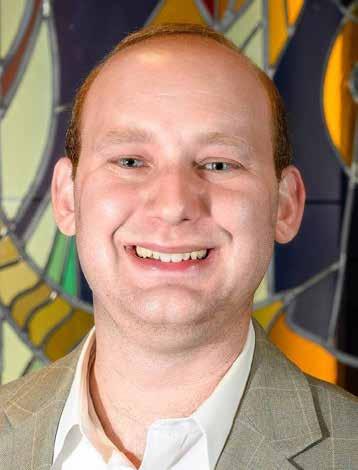
Longtime members of both the Atlanta community and Rabbis for Israel, Sernovitz formerly served as Senior Rabbi at Temple Kol Emeth in Marietta, while Dorsch is the Senior Rabbi at Congregation Etz Chaim. In addition to his participation in Rabbis for Israel, Rabbi Dorsch also serves on Jewish National Fund-USA’s Atlanta Board of Trustees.
“Serving as a rabbi for Israel has not only opened my eyes to the multitude of ways that Jewish National Fund-USA not only plants trees, but ‘plants communities,’ said Dorsch. “As a Rabbi for Israel, I am proud to play a small role in the work of bringing the Jewish people into closer conversation with the important work we do in Israel. As president of the ARA, I see part of my role in Atlanta as fostering opportunities for my colleagues to forge meaningful connections with Jewish National Fund-USA, as well as the many organizations doing positive work in Israel and our greater Atlanta Jewish community.
“As the new CEO of Hillels of Georgia, Israel and Israel education is a critical part of our mission,” added Sernovitz. “Jewish National Fund-USA has and con-

tinues to contribute to the Jewish State in critical ways and the more our students across the State of Georgia know about the organization the better. As a Rabbi for Israel, I have been a part of prior
Jewish National Fund-USA campaigns and am excited with the opportunity to engage our students in the organization and its programming.”
Rabbis for Israel is Jewish National
Fund-USA’s affinity group for rabbis who have demonstrated a commitment to Israel and the organization. To learn more, go to jnf.org/rfi.
Compiled by AJT Staff

The Atlanta Hawks and State Farm gathered 5,000 volunteers at the awardwinning State Farm Arena to pack more than one million meals as part of the 2023 Million Meal Pack. Atlanta City Council president Doug Shipman, Hawks and State Farm Arena chief executive officer Steve Koonin, State Farm senior vice president Dan Krause, NBA Hall of Famer and Hawks legend Dominique Wilkins, Hawks forward Jalen Johnson and more welcomed and extended heartfelt gratitude to the volunteers who devoted their time to support the team’s largest singleday community service effort of the year.
Individuals, families, community groups, schools, churches, businesses and more congregated on the arena floor to pack the meals. Together with volunteers from U.S. Hunger and executives from both the Hawks and State Farm, they collectively achieved an impressive total of 1,020,672 meals packed.
“We extend our deep appreciation to today’s volunteers and take immense pride in seeing so many people come together to better the lives of others at to-

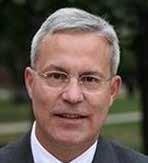
day’s Million Meal Pack event with our dear partners at State Farm,” said Steve Koonin, CEO of the Atlanta Hawks and State Farm Arena. “Recognizing the substantial effort required to combat food insecurity across Atlanta, we are hopeful that this single-day community service initiative will serve as an inspiration across metro Atlanta of what we can achieve together.”
To learn more about the work that the Hawks are doing in the community, visit Hawks.com/community

The Lutzie 43 Foundation announces Jim Brown as the newest member to the team. Brown brings expertise from the driving safety technology sector that will be an asset to the Lutzie 43 Foundation and the growth of the foundation’s 43 Key Seconds safe driving initiative. Before joining the Lutzie 43 Foundation, Brown served as an account executive at Lytx, Inc. where he worked on projects that helped identify poor driving, before it led to a collision. Brown attended the same high school as Mike Lutzenkirchen, Philip’s father, and executive director of the Lutzie 43 Foundation.
Jim Brown will help expand the Lutzie 43 Foundation’s education and training programs and cultivate new partnerships.
number of lives lost due to distracted, impaired and unsafe driving. Having the opportunity to use Philip’s legacy as a vehicle to create positive behavioral changes behind the wheel means a lot. I have followed the foundation since its beginning and am honored to be a part of such a meaningful organization.”
On Aug. 30, it was all-hands-ondeck, or should we say, kitchen counter, when hostess and chef, Deborah Lewis, had members and guests of Hadassah Greater Atlanta’s Ketura Group participate in making three dishes from Adeena Sussman’s cookbook, “Sababa,” all which would make great additions to anyone’s Jewish holiday menu for Rosh Hashanah and beyond.
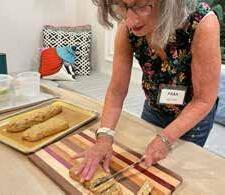
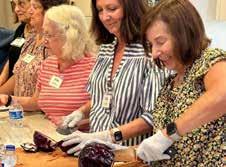
The dishes were: cabbage, apple, and pomegranate slaw; jeweled rice; and spiced medjool mandelbrodt. At the conclusion
of the cooking class, the participants’ labors were rewarded with samplings of all the delicious foods they helped prepare. A copy of the “Sababa” cookbook was won in a raffle by Ketura co-president Leora Wollner.
For information on the cookbook and these recipes, go to www.adeenasussman.com/books. For information about Hadassah in Atlanta go to www.hadassah.org/chapter/greater-atlanta.
Compiled by AJT Staff
“I am excited to jump in and use my previous knowledge and experience to grow the foundation through the 43 Key Seconds safe driving initiative,” said Brown. “I am passionate about the mission and work the Lutzie 43 Foundation is doing to reduce the
In his new role, Brown will have two main responsibilities: help build out the foundation’s education and training programs and cultivate new partnerships resulting in strategic partners and revenue generation. The foundation’s 43 Key Seconds safe driving initiative partners with companies to implement 43 Key Seconds into their corporate safety initiatives. Brown’s expertise will continue to grow those partnerships and develop training programs for corporate safety experts.
Compiled by AJT Staff
If things were slow at the Delawarebased law firm of Tunnell & Raysor, P.A. this past July, it was understandable. For a good portion of the month, the 130-year-old practice was missing Kelly Dunn Gelof, its managing partner who serves as lead counsel for the litigation department, and her husband, Adam Gelof, one of their most senior attorneys.
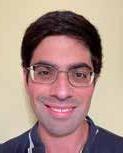
The powerhouse couple was out west for a few weeks, first watching their older son, Zack, 23, make his major league debut with the Oakland A’s on July 14 before heading down south to Glendale, Ariz., to accompany his little brother, Jake, 21, to the Los Angeles Dodgers’ spring training home, where he signed his first pro contract.
It was a dreamy scenario for parents of aspiring pro ballplayers: On the evening of Sunday, July 9, Jake heard his name called at the end of the second round of the MLB Draft. The next morning, Zack, at that point still playing for Oakland’s Triple-A affiliate in Las Vegas, flew home from El Paso to celebrate with his brother during All-Star break. On Wednesday, Zack was informed he would be getting called up to Oakland at which point Jake and his parents made plans to attend the upcoming weekend series against the Minnesota Twins – one in which Zack started at second base and went 4-for-12 with three runs, two RBI, and a pair of stolen bases.
“It was pretty cool to go from wearing Dodgers stuff and supporting him to getting the call and living my dream of being a major leaguer, but then also him being able to share that moment with me,” Zack Gelof reflected when speaking to the Atlanta Jewish Times.

The highly touted Gelof brothers, who will likely be the first pair of Jewish brothers to play in the big leagues since Norm and Larry Sherry were donning Dodger Blue in summer 1959, followed an eerily similar path to joining MLB organizations – both were standouts for the University of Virginia who, following their respective junior seasons, went on to get drafted with the No. 60 overall pick (Zack in 2021, Jake this July).
This past spring Jake, who was recruited by his big brother to join UVA (they overlapped one season) after un-
dergoing a massive growth spurt and enrolling at IMG Academy, a sportsfocused prep school in Florida, became the school’s all-time home run leader (38 career long balls) while establishing himself as one of college baseball’s most lethal sluggers. The Dodgers jumped when he was still around in the late second round before giving him a seven-figure signing bonus. Though he’s off to a slow start at Single-A Rancho Cucamonga, Jake projects as a power-hitting third baseman who can one day hold down a spot in the heart of Los Angeles’ lineup.
Ironically, Zack, who does not fancy himself as a power hitter, made a splash right away for Oakland by belting 10 homers in his first six weeks of big-league action.
“Definitely a power surge,” said Zack. “I don’t think I will be that type of player at first. I think I’m going to be really athletic, playing in the middle infield, stealing some bases, hitting a lot of doubles, and then if I hit homers, I hit homers. For me, I’m going to be a guy that brings a lot of energy, hits the ball gap to gap, plays good defense, tough out. I feel like that’s the kind of impression I want to leave in this first half of my career.”
Following a four-hit performance in an 8-0 win over the St. Louis Cardinals last month, the elder Gelof became the first player in Oakland history to record 20 extra-base hits and score 20 runs

through his first 28 career games played. Still, he dismisses the notion that it’s been a seamless transition to the big leagues, something that precious few prospects experience amidst the seemingly neverending shuttling back and forth from the minors to the majors.
“I wouldn’t say it was an easy transition,” said Zack, who played for Team Israel during the recent World Baseball Classic and, along with Jake, went to Hebrew school while growing up in Rehoboth Beach, where the touristy boardwalk scene flashed in the background. “I’m still going through the ups and downs of baseball, especially lately. I’ve always had confidence in myself, especially this year – what type of player I can be and the person I am.”
The A’s, who will likely be playing in Las Vegas by decade’s end, have had the worst record in baseball this summer and, at their nadir, were threatening to finish behind the 43-win 2003 Detroit Tigers for the worst record in MLB history…all while averaging under 10,000 fans on a nightly basis (league average attendance is more than 25,000 per game). Has playing in games without postseason ramifications in front of sparse crowds helped alleviate the inevitable pressure of joining a big-league team mid-season?
“I think it’s made it harder for me, honestly,” responded Zack, who was
quickly promoted to the top of Oakland’s lineup amidst his hot start. “When the emphasis is on winning in the big leagues, it’s not really about individual results. If you’re not winning, it’s tough.”
Albeit in a vastly different context, the word “tough” also conjures up thoughts of the brothers’ late paternal grandparents who passed away when the boys were very young. Their grandfather earned a Purple Heart as a tank commander in the European theater of World War II while their grandmother long served as the president of Dover’s Congregation Beth Sholom.
“I always knew my grandfather and grandmother were just two really tough individuals,” said Zack. “Really just passionate about what they did and very loving.”
And as for Adam and Kelly Gelof, how has it been for them this summer balancing their high-powered careers while traveling around the country to experience what millions of parents can only fantasize about?
“I don’t know,” admitted Zack. “It shocks me every time because they’re always so supportive, following our games even when they’re not here but then ultimately coming out to see our games, too, and then also be successful in their jobs, too. It’s pretty crazy, but nothing but love for them.” ì
There are changes aplenty at Mercedes-Benz Stadium this year. Some are readily apparent, others hardly discernible. But all promise to have far-reaching influence well beyond this season.
Perhaps the most notable development to the six-year-old stadium is the new premium seating option, namely the AT&T Lofts that opened last month. Situated on the 200 level in the west end zone, the AT&T Lofts, consisting of five private or communal spaces accommodating between 18-40 people and replete with lounge seating, offer fans great flexibility and adequate breathing room –just like the visually stunning Maybach and Delta Sky360 on-field terraces that debuted last season.
“One of the things that we have learned after the first few years of Mercedes-Benz Stadium is looking for opportunities to give fans more space,” explained Don Rovak, senior vice president, ticket sales, service, and operations, for AMB Sports and Entertainment. “I think what we’ve seen as both an industry trend and a trend a little bit from the pandemic is that people do desire space in a little bit of a different way than they did 10, 15 years ago.
He continued, “I think there’s more desire now for just more flexibility and not something quite as structured as a suite or not a suite.”
Whereas the Maybach and Delta Sky360 on-field terraces were so close to the action that fans could literally snag an overthrown pass to the sidelines, the AT&T Lofts offer more of a bird’s eye view of the game on the mezzanine level while also providing guests with a beautiful view of downtown Atlanta. Still, they aren’t surrounded by four walls – like a traditional suite or club seating section – and thus ensure guests feel more immersed in the vibrancy of the gameday atmosphere.
Not only are the AT&T Lofts noteworthy for their variegated appearance – all five lofts are different in terms of design and furniture – but they were also designed specifically to be adapted to fans’ evolving needs and desires as the years go on. For the balance of the 2023 calendar year, they will be sold on an event-by-event basis at a price comparable to suites on a per ticket basis and will vary based on set up and the event.
“The space offers a lot of flexibility for us to continue to make changes to accommodate the fans,” added Rovak. “We’re
always continuing to challenge ourselves in terms of how can this place continue to change. I think Arthur [Blank] has taught me a ton in my decade-and-a-half here that as long as you’re listening to the fans and innovating continuously, those things are your culture and who you are.”
Meanwhile, ticketholders streaming into MBS this fall, whether headed to premium seating or elsewhere, will have options for expediting the means by which they grab refreshments. There is now a third frictionless market, located in the AT&T Perch, enabling fans to simply tap/ insert/swipe their credit card upon entry, pick up their snack or drink, and exit. With no check-out lines, fans can be back in their seats before the next whistle.
“When you know what you’re doing, you’re in and out of those markets in 10, 15 seconds. It’s pretty remarkable,” said Karl Pierburg, senior vice president, chief technology officer, strategy and innovation. “As people discovered them [frictionless markets], our repeat traffic was really good, and we’ve just seen that usage go up.”
Another cutting-edge feature incorporating frictionless technology facilitating enhanced efficiency is the Delta Fly-Through Lanes, which are grounded in biometric facial recognition. Per its name, fans can literally glide through these select entry lanes as their face is the ticket. With there being no need to stop and pull out your phone to swipe your
barcode, stadium entry is no longer a 10to 15-minute exercise…but rather one that can be accomplished in 10-15 seconds. After nearly 3,500 fans enrolled in the program last year – a ticketholder can add several friends or relatives to their account – the hope is that more people see how the next-generation process can be a savior during late arrivals and safeguard against counterfeit tickets. By all estimations, the biometric entry is four times as fast as the “traditional” smartphone scan.
“I think as more and more people see it, they’re going to see what a great advantage it is,” predicted Greg Overstreet, senior director, security, Mercedes-Benz Stadium.
Most importantly, Atlanta Falcons and Atlanta United fans have never been safer and more secure upon entering their home stadium. Thanks to the Greater Boston-based Evolv Technology, which leverages artificial intelligence and algorithms toward teaching a machine how to detect weapons while ignoring items such as a belt or keys that would typically trigger a nuisance alarm in traditional metal detectors. Consequently, security officers can focus their attention on exactly where a true threat may be attached to a person. In turn, the incorporation of Evolv Technology, which began last season but is being fine-tuned this autumn, means that fans undergo another frictionless, time-efficient experience as they don’t have to be patted down nearly as
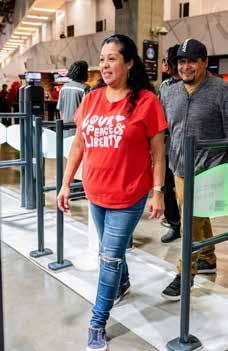
much – if there is an alert for a potential threat, the guest will step over to a secondary table where security will be able to pinpoint the critical pocket of clothing – or empty their pockets upon ingress.
By any measure, it’s a rather impressive mechanism as MBS officials have an easier way of ushering in more than 70,000 spectators in a 90-minute period while greatly reducing the likelihood of a throng developing outside the stadium entrance, a serious security risk in and of itself.
“This technology is really the most innovative thing I’ve seen in my 20-plus years in the industry,” added Overstreet, a true industry veteran who has overseen security initiatives at the now-defunct Georgia Dome and RCA Dome, among other venues. “It does it in such a frictionless manner that the guests oftentimes don’t even realize they’re having to go through screening, but yet, it’s actually much more efficient than what we’re used to. It’s been a tremendous tool for us.”
Of course, none of these developments would have come to fruition without the blessing of Falcons principal owner Arthur Blank, whose dedication to innovating on behalf of the fans remains one of the hallmarks of his stewardship of the franchise.
“He [Arthur Blank] entices you to be on the cutting-edge of everything because he gives you the financial resources to do it,” added Overstreet. ì

This moment had been on my horizon for four months and a week.
In late April, from the bed I occupied in the Emory University Hospital cardiac unit, I worried aloud that it might not be possible. Would I be able to do this?


ter camps for fishermen — are, well, functional. The outer walls are also the inner walls. There is no insulation. Yes, the plumbing is indoors and the larger one has a small hot water heater. When possible, a window is left open at night, but when the temperature dips to near 50 degrees or colder, we utilize an electric space heater.
Schechter
On that occasion I was slapped, verbally (and deservedly), by a cardiology fellow, one of the young doctors whose rounds included checking up on me.
“You should not be worrying about that,” he told me, in no uncertain terms. “You should be thankful to be alive.”
Now, in late August, my question would be answered.
The conditions were ideal. The sun was shining. The air was cool. The lake was calm.
Wearing our life jackets — mine blue and my wife’s red — we lifted the kayaks off the rack and carried them into the water. We shoved off, paddling in the direction of the “boundary rocks” a few hundred yards away, a separation between our cove and what lies beyond.
I had expected those rocks to be the limit for my first time on the lake since the April heart attack and the subsequent robotic bypass surgery in June. But I felt fine, so we kept going, past the rocks and into the next cove over, before turning about and heading back toward camp.
There is a point during every outing at which I lift my paddle from the water, let the kayak drift, and survey my surroundings — the water, the forest, the cabins dotting the shoreline, and the sky. I think about my father, who said that any day on the water was a good day.
This particular occasion was, my wife said, a “shehecheyanu moment.” The meaning of that Hebrew word in English — “that we are alive” — is not lost on me.
I was grateful for this opportunity to return to Camp Schechter, and the cabins in the woods by the lake, where my family has four generations of history, in a part of Maine less favored by tourists.
Compared with the more elaborate structures in our cove, our two cabins — constructed around 1915 as cold wa-
My brother, the rabbi, who is as handy with power tools as with a chumash, is now the landlord. I have no such skills. My contribution this year was painting the steps and railings outside one of the cabins. I did a fine job, if I may say so.
More than the day trips, more than the hiking trails, more than the time to write and read, even more than the sunsets — kayaking is what I look forward to most.
And that is why I was worried that day in April.
I like to get on the lake before eating breakfast, before reveille at the nearby boys camp, before the recreational boaters or jet-ski drivers. When the lake is choppy, with whitecaps, the kayaks stay on the rack.
One evening, we ventured out a second time, to watch the sun’s last rays reflected on the water. The view was glorious.
We were fortunate to see and hear the loons who live on the lake. They are remarkably tolerant of kayaks. If you’re lucky, you can idle close to them, before they dive under and resurface elsewhere.
This year’s visit was for five nights and six days, and on the last, before cleaning up the cabin and driving to the airport, we took one last trip on the lake.
In the 40-plus years of my adult life that I have made this almost annual pilgrimage, I do not remember as beautiful of a morning.
The water was like liquid glass, the only ripples coming from our kayaks. The tops of the trees were showing the first hints of autumn’s colors. There wasn’t a cloud visible.
It was impossible not to look with wonder at this serene setting — and wish that we could stay another day or two, but alas.
Every visit to Camp Schechter is special, but after all that had happened in the preceding four months and one week, this was one to savor. ì

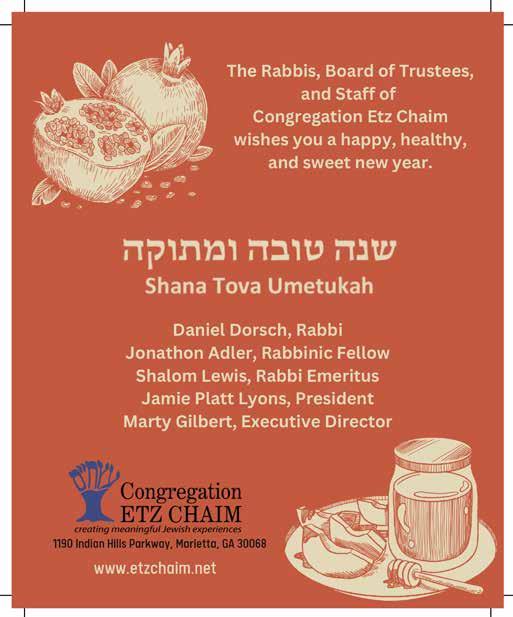
My daughter, Jacqueline, just celebrated her 30th birthday this past week. As I was wishing her Happy Birthday, it dawned on me that I had turned 60 this year myself and she was exactly half my age. As I pondered this concept a few more moments (while she mentioned, “yes dad, that’s how math works), I then realized that this meant she was born when I was her age. Now that was a sobering thought.
Michael A. Morris Publisher
The first half of my life was kid-less (I was a kid). I was untethered, had just finished school, was newly married, had three different jobs in the first five years of my career and I was trying to figure out what I wanted to accomplish with my life. The second half of my life, my career in investment banking and philanthropy was heavily punctuated with
school plays at Woodward Academy, ice skating tournaments around the Southeast every other weekend and, eventually, two to four volleyball tournaments each and every week for over a decade (for those who do not know me well, I have four daughters, three of which played volleyball from middle school on and one continued through college). Now I am beginning the third half of my life…whoa. At this point, I know Jacqueline would say, “dad, that is not how math works.” Now that is a significantly more sobering thought.
I could write about what this means for me, but instead, let’s focus on something important, what does this mean for my kids? My oldest is 30 and my youngest is 23 (the math for her is easy, she was born in 2000)! All of them have significant others (two are already married), they have finished undergraduate, and in some cases, graduate school, they have skills, maturity and have begun their careers. They stand where I stood 30 years ago with their whole lives in front of them. My wish for them, shoot for the stars. Spread your wings, do what makes
you happy, set goals and have fun along the way. The world is your oyster, you can achieve anything you set your mind out to accomplish. You are young, you have a vast array of tools at your disposal, you

have a partner at your side, and you even have a reliable income. I think the world has a lot to learn from our children and I am specifically counting on my girls to help lead the way. Shana Tova. ì

Hershel Greenblat celebrated his 82nd birthday in Israel this spring, joyfully hoisted on a chair by a group of students. It was one of the memories that the Holocaust survivor from Atlanta will never forget while on this year’s March of the Living Southern Region program from April 16 - 30, accompanied by his 35-year-old granddaughter, Erin Boynton, who lives in Charleston.
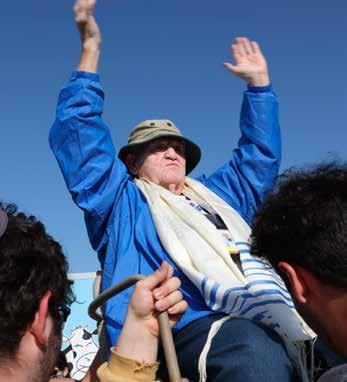 Fran Putney
Fran Putney

The March of the Living is an annual educational and experiential program for youth and adults that begins in Poland and ends in Israel. In Poland, participants visit places such as Krakow and Majdanek, where Jews once lived, as well as Holocaust sites such as the Auschwitz–Birkenau and Treblinka concentration camps, and the Lodz Cemetery and Ghetto. In Israel, the itinerary included not only historic destinations and opportunities for shopping in the shuk, but the observance of Yom HaZikaron (Israel’s Memorial Day) and this year the celebration of the historic 75th anniversary of Israel Independence Day (Yom HaAtzmaut).
Greenblat’s own Holocaust survival story is unique. Greenblat was born in a cave in what is now Ukraine, where his parents, along with a number of other Jewish individuals, families and resisters, hid to escape the invading Nazis. At one point, Greenblat’s parents had to leave baby Hershel (Grischa, as he was called then) in the care of others in the cave for several weeks to seek medical care for his mother who was wounded by shrapnel when she was outside of the cave for a short time. Despite many hardships, the family reunited, and all survived the war. Later, two sisters were born. After the war, the family lived in displaced persons camps in Austria and eventually came to the United States, arriving in Atlanta in 1950.
A tireless and passionate speaker, Greenblat shares his story at schools all around Georgia and other states in the spirit of educating students about the horrors of the Holocaust and the dangers of not knowing the history.
He and Erin had planned to take the March of the Living trip together in 2020,
but it was canceled due to COVID until this year. With the 80th anniversary of the liberation of Auschwitz and the 75th anniversary of the establishment of the State of Israel, it was a momentous time to go.

In Poland, the trip proved very emotional. At Auschwitz, Greenblat described looking among the books containing four million names of Jews who had perished,
hoping to find the names of his own family members. He found the names of his paternal grandparents, Gedalia and Ethel, but didn’t have time to find those on his mother’s side.
“I was upset that I did not have time to do that, but Erin was there to comfort me. Finding their names won’t bring them back, but we can remember them.
There were just so many books, so many names,” Greenblat recalled.
Walking through the gas chambers and crematoriums at the Majdanek death camp in Poland where scholars say between 60,000 – 80,000 Jews were murdered was also an intense experience as some of Greenblat’s father’s family had been taken there and to Belzec, another
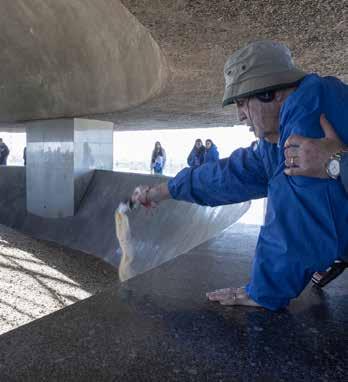
camp built to murder Polish Jews.
“I felt that my heart was gonna just, you know, stop,” Greenblat said, recalling walking through the death camps and touring the Ramah Synagogue. Studying

and reading about these places doesn’t nearly prepare you for the impact you feel when you are actually there, he explained.
Although Boynton took the trip pri-
marily to accompany and support her “Papa,” as she affectionately calls her grandfather, she also wore her educator’s hat, too. Boynton oversees programming for Holocaust education and genocide awareness for the Charleston Jewish Federation. Previously, she taught high school for seven years. So, for her, the trip represented something that she said, “I’m not only personally invested in, but professionally connected to as well.”
Describing what it was like to share these profound experiences with her grandfather, Boynton said: “My favorite quote is from Golda Meir that says if you can’t weep with your whole heart, you can’t laugh with it either. And that’s what I really feel like this trip embodied. You go from such despair and such sadness in Poland to such joy and celebration in Israel…The sorrowful going through the gas chamber in Majdanek, as a moment with my Papa, is just a moment I’m never going to forget in my entire life. But then also the moment that we landed in Israel on his 82nd birthday. We drove straight to the beach. He got an aliyah, the kids put him in the chair, lifted him up, and we were singing!”
Boynton was also impressed with how well the students cared for her grandfather and the other three survivors on the trip. For Greenblat, making personal connections with the students, most of whom were from Florida, was a very important part of the trip. Many wrote heart-warming sentiments in his trip diary thanking Hershel for sharing his story and being a role model to them.
Hannah Schinder wrote: “Hershel, happy, happy birthday! You’re such an inspiration to me and my generation. Your words spark new thoughts every second in my head on how I will make this world the best it can be.”
For Greenblat, making an impact on these youth and sharing both emotionally difficult and joyous experiences with his granddaughter, Erin, made this journey an unforgettable, once-in-a-lifetime pilgrimage.
In summing up, Greenblat said, “What I saw at all these places was a sense of life changing thoughts -- not how it happened, but why. And knowing that in my own small way, when I speak, some of the students will say on my behalf, 'Never again.’” ì
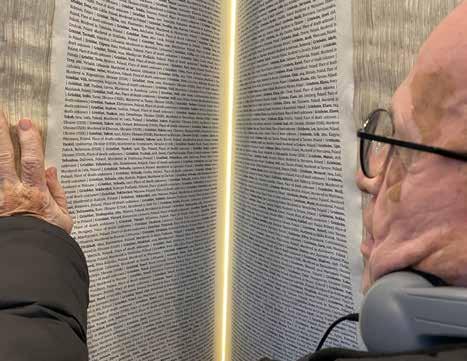

For Jews around the world, the soulpiercing sound of the shofar is charged with religious significance, evoking a perennial yearning for deliverance and renewal. The sound of a shofar emanated from Mount Sinai. It heralded the new moon and the jubilee year. Shofars were used in battle and in the Temple orchestra. Rosh Hashanah, the start of the Jewish new year, is described in the Bible as “a day of blowing” the shofar, and its sounding at the conclusion of Yom Kippur service marks the end of the fast.
“People have used horns to make shofars for millennia—but while every shofar is made of horn, not all horns are suitable for making a shofar. Which are, and what exactly constitutes a shofar? The Biblical Museum of Natural History’s extraordinary shofar display has the answers.”
of shofars, showcasing one of the largest global collections of these remarkable instruments from different animal species. It includes straight, curved, spiral, and even impractical shofars of every size and shape, originating from myriad creatures—from the more traditional ram, ibex, and goat to huge shofars made from spectacular antelope such as sable and waterbuck, a uniquely beautiful and surprisingly strong shofar made from an unusual creature called an East Caucasian tur, and many other strange and wonderful horns and shofars.
For millennia, people have been crafting horns into shofars. But not every kind of horn can be made into a shofar. An extraordinary exhibit in the Biblical Museum of Natural History in Beit Shemesh delves into the captivating world
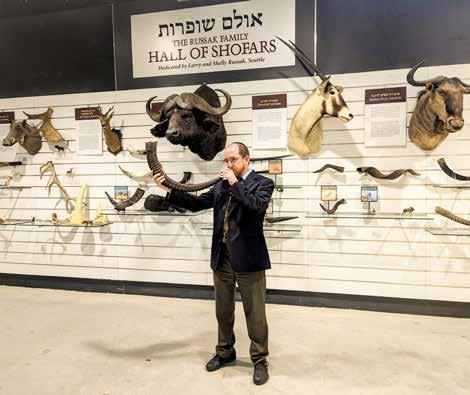

The horn that gives rise to the shofar must be naturally hollow; this eliminates both rhinoceros horns, which are composed of solid keratin, and deer antlers, which are solid bone. Shofars are made from horns comprised of keratin sheaths surrounding a bony core, which is pulled

out. Then, the tip of the keratin sheath is sawed off to create a mouthpiece, and a small hole is drilled into the hollow interior.
Under Jewish law, cattle horns cannot be used as shofars (the Talmud cites the sin of the Golden Calf) and later rabbinic authorities also excluded the horns of buffalo and other members of the bovine family.
The Talmud also determines that on Rosh Hashanah, one should use a shofar that is bent, symbolizing how we should
be bent in contrition on the Day of Judgment. Traditionally and ideally, shofars for Rosh Hashanah are made from ram (adult male sheep) horns. The Talmud explains that they recall how Abraham was willing to sacrifice his son Isaac at God’s command, and instead was told to sacrifice a ram caught by its horns in the thicket. In addition to the more widely used domestic sheep’s horns, the shofar exhibit also features the beautiful horns of the Land of Israel’s original wild sheep, the mouflon, and those of another wild
sheep native to this region, the Barbary sheep or aoudad, along with the bighorn sheep of North America’s massively thick horns.
Shofars from pre-Holocaust Europe are often flat, with a carved bell. It seems that many of them were made from goats rather than sheep, for reasons that are unclear; perhaps goat horns were more widely available, since most male sheep are slaughtered at a young age.

The exhibit also features the magnificent spiral horns of the kudu an-
telope from Africa—the traditionally preferred shofars in certain Yemenite communities. They are widely available today, since kudu are able to leap over the fences of game reserves in Africa and breed freely outside of them without fear of predators.
Other species’ horns, while permissible under Jewish law, are just too impractical to be used as shofars. The exhibit showcases several examples, including the highly twisted horns of wildebeest and other antelopes make removal of











the bony core extremely difficult, if not altogether impossible. And the amazing horns of the markhor (a type of wild goat) are such a flat, twisted spiral that turning them into a blowable shofar is a formidable feat.
The exhibit’s non-shofar objects add an intriguing dimension. These have a horn-like appearance (tusks of various animals, from walruses to warthog) or produce a shofar-like sound (conch shells and didgeridoos), but they defy the fundamental principle—a shofar must be

made of animal horns.
Some 135 animal species have hollow horns. After excluding a handful of species of domestic and wild cattle and straight-horned species, over a hundred species with curved horns that may be used to make a shofar remain. However, except for the domestic sheep, gemsbok, and kudu, no shofars from these species are commercially available. ì
With COVID, for the most part, in the rearview mirror, Atlanta-area congregations are preparing for a large turnout for this year’s High Holiday services.

has been coordinating with officials to implement safety protocols and ensure community synagogues and Chabads are prepared.
Sasha HellerAs such, the Secure Community Network, the security partner of the Jewish Federation of Greater Atlanta, is on high alert to prevent and/or react to any antisemitic incidents that may take place during the High Holiday season.
“Year-round, we prepare and try to make our facilities as safe and secure as possible,” SCN safety director Brian Davis said in an interview with 11Alive News. “We offer webinars monthly and, especially before the High Holidays, we start a series weekly of how to prepare for any type of emergency.”
Davis, who joined the SCN this year,
“Preparedness and awareness. When you see something, say something,” Davis told 11Alive in a recent interview. “Go about your life as normal, just be vigilant and secured and prepared for whatever may come and have a plan in place.”
Davis and his fellow officials at SCN are aware of the series of recent antisemitic incidents that occurred in and around Atlanta, including:
* Goyim Defense League distributed antisemitic flyers in Alpharetta;

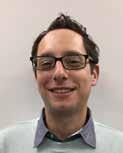
*A bomb threat was called in at the Jewish Federation office and Breman Museum;
* A pair of swastikas were carved into a bench along Cheshire Bridge Road;
* Antisemitic protesters gathered outside Chabad of Cobb.
The Secure Community Network wants the greater Atlanta Jewish community to feel safe during the High Holidays.
Davis said, “Our job is to make sure that local law enforcement and federal law enforcement work closely with us to make sure these incidences are being addressed and monitored. We also make sure the proper security

personnel are at each facility and that there’s a plan in place to make sure they know how to react if something did occur.”
Rosh Hashanah begins at sunset, Friday, Sept. 15, ending at sundown on Sept. 17; Yom Kippur begins before sunset on Sunday, Sept. 24, and ends during the evening of Sept. 25.
For more information about the Secure Community Network, please visit www.jewishatlanta.org/what-we-do/ourinitiatives/we-secure-the-community. ì






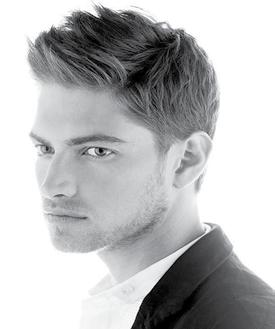

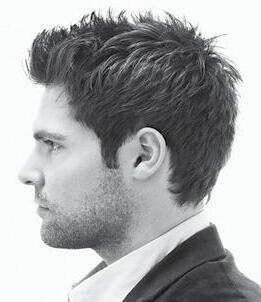








May the new year bring peace, joy, and prosperity to you, your family and our community. As your Division A3 State Court Judge I will always work to give you the representation you expect and deserve.
R. Mack Deputy District Attorney for Sex Crimes Candidate, DeKalb County State Court Judge (Division A3) www.yolandaforjudge.com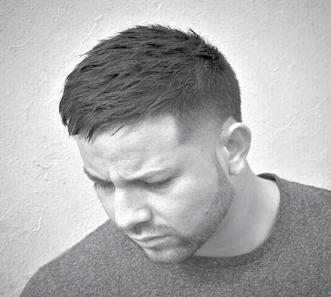

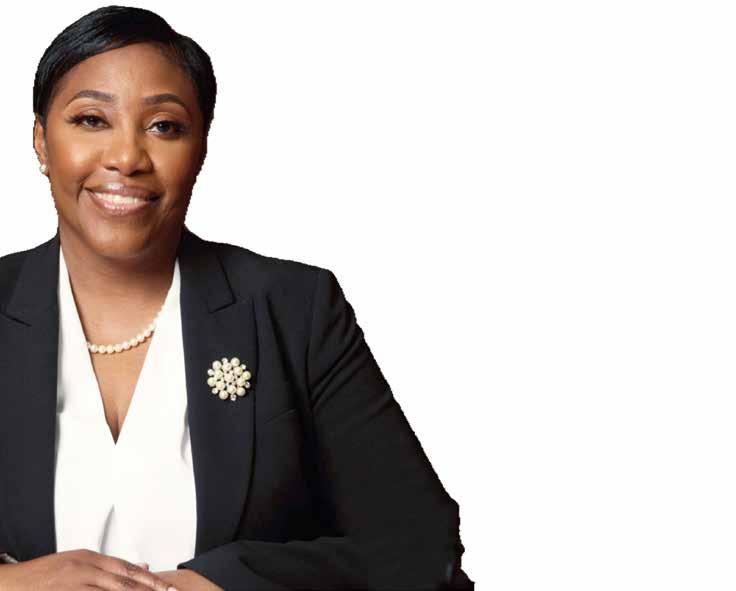
With the Jewish High Holidays just around the corner, we are thinking about how to celebrate with family and friends for a sweet New Year. As with every holiday, planning the menu takes time and attention to the holiday traditions and ways to make it delicious and memorable.
To plan the menu, there are always favorite standbys, even special requests, to repeat a standout recipe. If your recipe book is like most, there are those recipes handed down through from grandma, a family relative, friend, or throughout the generations.
With many families, you’ll have a few guests who may have dietary restrictions or preferences such as an ever-growing decision to eat gluten-free, vegan, vegetarian, an allergy, or special request. The good news is this year there are some new products to support updated recipes from today’s culinary landscape.
To help you navigate cooking, for example, gluten-free, with both ease and convenience, a new produce line called Gluten Free Easy offers frozen, ready-to bake pastry puff, pita, and pizza doughs that can be used to whip up savory and sweet entrees and sides. For example, the gluten-free Peach Galette recipe will help to get you started, and feel free to experiment and adapt your family favorites to fit everyone when possible. Be it grandma’s strudel, rugalach, or any of your memorable recipes, exploring the food aisles is always helpful to do. The galette featured in this article is a pastry that is topped with sweet or savory fillings.
Another addition to the Rosh Hashana meal that’s new for the landscape of kosher wines includes an assortment from all over the world.
“You won’t have any trouble choosing delicious kosher wines and spirits because the selection and variety is so expansive,” says Gabe Geller, director of PR and manager of wine education for Kedem/Royal Wine. He added, “Royal Wine Corp., the largest producer, importer, and exporter of kosher wines, brings us new selections from all over the world - and some unexpected places - including the Greek Islands, Cote de Provence, Israel, and California, among others.”
He continued, “This year’s releases are all about quality, variety, value, and intrigue, with something for every palate and price point. For example, the Herzog Late Harvest Orange Muscat and Zinfan-

del from California is ‘sunshine in a bottle.’ On a lighter note, Royal Wine’s popular Bartenura line of casual Italian wines
has expanded its popular line of wines in cans to now include lychee-flavored and peach-flavored Moscato. Plus. our new


Ingredients:
- 1 Gluten Free Easy puff pastry sheet, thawed
- 4-5 ripe peaches, sliced
- 1 tablespoon granulated sugar
- 1 tablespoon brown sugar
- 1 tablespoon cornstarch or tapioca starch
- 1 teaspoon vanilla extract
- 1 tsp cinnamon
- ½ tsp sea salt
- 1 egg, beaten (for egg wash)
- 1 tablespoon sugar in the raw, or coarse sugar
- Vanilla ice cream or whipped cream, for serving (optional)
Instructions:
1. Preheat your oven to 400°F (200°C). Line a baking sheet with parchment paper.
kosher cognac, cordials, and brandy can be enjoyed as an apéritif before a meal or as an after-dinner digestif. L’Chaim
2. In a bowl, combine the sliced peaches, granulated sugar, brown sugar, cornstarch, cinnamon, sea salt, and vanilla extract. Toss gently until the peaches are evenly coated. Set aside.
3. Dust your work surface with a little cornstarch or tapioca starch, and roll out the thawed puff pastry sheet, trying to keep its rectangular shape.
4. Transfer the puff pastry onto the prepared baking sheet. Leaving a 1-inch border, arrange the peach slices in a single layer on top of the puff pastry.
5. Fold the edges of the puff pastry over the peaches, creating a rustic border. Press gently to seal any loose edges.
6. Brush the edges of the puff pastry with the beaten egg, and sprinkle with the sugar in the raw.
7. Bake the galette in the preheated oven for about 25-30 minutes, or until the pastry is puffed and golden brown.
8. Once baked, remove the galette from the oven and let it cool.
9. Serve the puff pastry peach galette warm or at room temperature. It pairs wonderfully with a scoop of vanilla ice cream or a dollop of whipped cream.
Recipe is courtesy of Gluten Free Easy

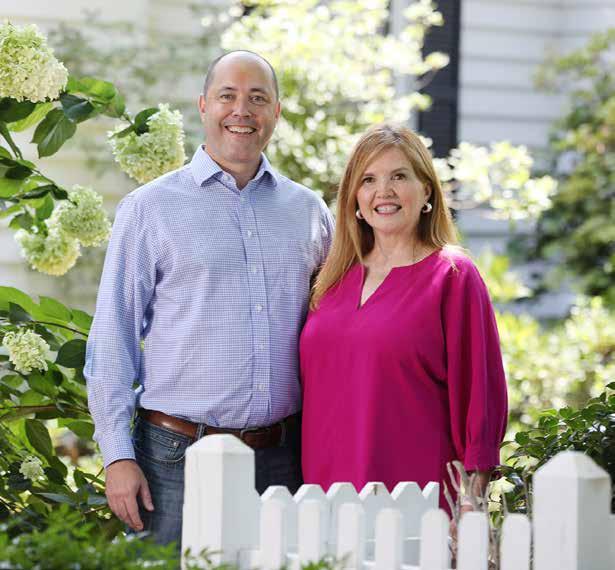

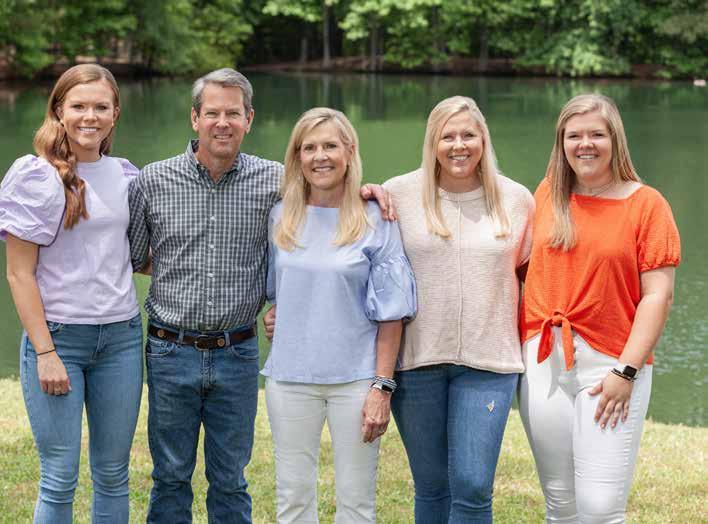


A creative way to celebrate the Jewish holidays and break the fast comes from nationally known fashion designer Kay Unger, who is involved in many Jewish organizations as a philanthropist and activist dedicated to making a difference.

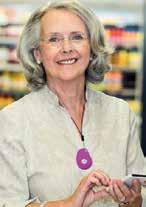
Unger is very well known for her beautiful designs worn by many generations of women to an endless array of simchas, from bar and bat mitzvahs to weddings and more.
Unger shared her festive flair with The Atlanta Jewish Times and said, “To add an element of meaning or fun to our holiday gatherings, we have a kugel contest which is such a special part of every one of our Break Fasts. A special part of my Break Fast, which has had up to 75 people, is that often half are non-Jews because they have no conflicts with needing to be with their families, and they love attending and learning about our holidays. It is a wonderful way of sharing and teaching the traditions. We have all sorts of kugels showing up, from savory potato and onion ones to sweet raisin croissant ones!”
According to Unger, “The contest brings all ages together both in judging and tasting all the different kugels. We do a blind taste test, numbering all the different ones. Our judges deliberate carefully and choose three winners. Our participants take great pride in their kugel and work to perfect their recipes all year long. Nine out of the 10 years, my kugel has won. We do offer mine with or without the pecans, the children like it better without. Some years I add
cranberries, sometimes raisins, but the classic traditional recipe is always the winner! I have been using the same original recipe since hosting my first Yom Kippur in 1970.”
And on a sweet note, Unger shared, “My 5-year-old grandson when he comes for dinner always says, ‘Glammy, can we have a Jewish dinner,’ so now we hide an apple on Rosh Hashanah like we do the matzah on Passover. It’s amazing what kids remember and how new traditions come to be enjoyed and remembered.” ì
Ingredients:
1 bundt pan
1 cup whole pecans
3 eggs
½ teaspoon cinnamon
1 16 oz. package homestyle noodles
1 stick salted butter
1 lb dark brown sugar
1 cup sour cream
¼ teaspoon white sugar
1 cinnamon stick
Preheat oven to 350 degrees.
Add a touch of white sugar and a cinnamon stick to a pot of water. Add noodles and cook until al dente. Drain noodles and set aside.
Heat butter and brown sugar in a saucepan on medium heat. Butter and sugar should be melted and just starting to boil.
Pour mixture into bundt pan to coat bottom of pan. Place whole pecans on top of the sauce in the bottom of the pan.
Whisk eggs, cinnamon, vanilla extract, sour cream and approximately 14 teaspoons of brown sugar together in a bowl. When the sauce has a smooth consistency, add it to the noodles. Toss until noodles are thoroughly coated.
Put noodle mixture on top of sauce with pecans in a Bundt pan. Fill the pan with noodles.

Place in the oven and cook for 1 ½ hours.
Remove from oven and let cool for a few hours. Serve warm or at room temperature. Makes approximately 8-10 servings.

NOV 5 - JAN 21 ATLANTIC



Every year I solicit our community to send holiday greetings for Passover, Rosh Hashanah and Chanukah. We invite lay leaders and community members that are considered our community’s movers and shakers. It is nice to read a heartfelt or inspirational message that doesn’t have an agenda that is tied to their work. Although so many of these same people believe so deeply in their work that it is not about completing an agenda that makes them successful. They are purely motivated to be successful in the work by what’s in their heart, and those are the real “Stars” in our community.
The good news is that fifty messages is the perfect number of messages with the amount of space we have available. Although I am sure that we can handle more submissions, our avid readers may have noticed that the AJT continues to grow and become more successful each year. Baruch Hashem!
Every holiday when I send invitations, I include a prompt to respond to, or I will make sure to include that they can simply send an inspirational holiday greeting of their choice.
This year the prompt is: Reach for the Stars - Be All You Can Be - Become Whoever You Want to Be. Be a Star in 5784. I will try to coordinate the theme of the prompt with our Guide to Jewish Atlanta, as well as our participation in the Kosher BBQ.
It is my belief that this prompt touches everyone and that it comes to no one’s surprise that this year’s prompt is already a theme that has us getting ready to put our best foot forward. The walls of diversity are starting to come down, slowly but the chunks and cracks are there. We have just experienced living in a real-life sci-fi movie and lived through it, the name is COVID. Motivations are high to reach new heights, share our true selves and make a difference.
According to Warner Bros. Entertainment this month the movie “Barbie” has taken the box office by storm, earning more than $1.38 billion worldwide to become the highest grossing film in Warner Bros.’ 100-year history; the highest grossing film ever from a female filmmaker at the domestic box office; and is the largest worldwide film release of 2023.

The original Barbie was designed by Ruth Handler, the co-founder of Mattel, who created the Barbie doll itself. Ruth was Jewish and wanted to create a toy that represented a woman with choices. A woman with freedom, independence, and fierce femininity. A departure from the traditional baby dolls in the market at that time. The commercial catch phrase was “Be Who You Wanna Be, B-A-R-B-I-E”.
The movie “Barbie: Star Light Adventure” was released in 2016, about how Barbie travels to a beautiful new planet to join a special rescue team on a mission to save the stars. Barbie soon discovers that if she listens to her heart, and with the help of her friends, she might be the leader the whole universe has been waiting for.
Which brings us back to the plot of the newest Barbie movie – Barbie is given an opportunity to be real and of course there are those that want to capture her and put her back in her box.
It is no surprise that a movie, for me was immediately dismissed as a silly kid’s film, has broken records. We can all relate to wanting to break out of our old ways and share our true selves. Being free from our own insecurities and finally take that step forward to “be all you can be.” Don’t let anyone try to stuff you in a box, most of all yourself. Just keep telling yourself, “You can be whoever you want to be.”
Be a Star in 5784, hopefully I won’t be very far.
Kaylene Ladinsky is editor and managing publisher for Atlanta Jewish Times and president of Southern Israelite, LLC.
I have been working for Atlanta Jewish Times for almost 5 years now. There have been countless community messages I have been a part of through the years. None of them have ever taken me this long to write. I just couldn’t sit still to write my message for Rosh Hashanah 5784.
Of course, I want to wish everyone a shana tova but I wanted to write more. I turned to ChatGPT to write it for me but the heart just wasn’t there... of course it’s a bot that has no heart so that makes sense. ChatGPT wrote me a technical response to the prompt this year. I’m not going to share what ChatGPT wrote for me; instead, I am going to talk about the wonders of AI in the coming year and how it is allowing us to reach for the stars.
Artificial Intelligence is the wave of the future. It seems out of nowhere, it is now everywhere. Here at the AJT, we have used it to generate a few covers for the paper. I tend to use it instead of Google when I have a question. It is learning and getting better every day and that is so amazing.
To “reach for the stars” is to dream big and set ambitious goals. It is a reminder that we should never limit ourselves based on our current circumstances or past experiences. Just as the stars in the night sky seem distant and unattainable, our dreams may appear out of reach. However, Rosh Hashanah reminds us that with determination and faith, we can move closer to our aspirations, one step at a time. – ChatGPT
Ok, I said I was not going to share what ChatGPT wrote for me, but they did get that last paragraph pretty spot on. If the developers didn’t reach for the stars, we wouldn’t have AI technology. My message is to never stop reaching and always follow your dreams.
Shana Tova!
Lilli Jennison is the creative director for the Atlanta Jewish Times.
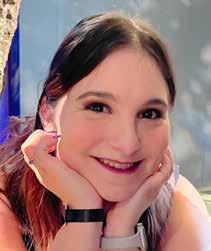
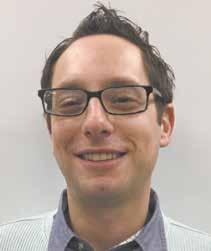

As you continue your journey through life in the year 5784, please remember to reach for the shoelaces. Nothing will trip you up faster than an untied shoelace.
Most trips, most falls, can be traced back to a loose shoelace, laying limp and draped across the side of your shoe. And for those dear readers who prefer Velcro sneakers or even slip-ons, then you’re already one step ahead of the game.
I know, I know, I am probably having a little too much fun with this one. But, knowing that most of this year’s Rosh Hashanah messages will be poignant, condemning antisemitism and calling for the Jewish community to unite, I wanted to keep it light and remind everyone to have fun and not take ourselves too seriously. There is a time and place for everything, especially a good laugh. So, this new year, reach for the shoelaces and hit the ground running.
L’shana Tova.

Reaching for the stars can be interpreted in various ways. To me, it awakens one’s inspirations, hopes, and dreams.
It’s funny how our hopes and dreams alter through life’s seasons. As a younger mother, intertwined with my children’s lives, my hopes and dreams revolved around them. Now, an empty nester, I can concentrate on what inspires me and brings me joy. Travel and time with loved ones are what’s most rewarding to me in what I hope is the third season of my life.
Experiencing new landscapes, cultures, and people is what I look most forward to, as I nurture my nomadic disposition. My reach for the stars is the reach for new experiences, new perspectives, and new adventures. My hope is that the last season of my life is brightly lit and sparkly from the many stars I collect in years to come.
Michal Bonell is the senior account manager and team supervisor for the Atlanta Jewish Times.
As we get ready to celebrate Rosh Hashanah and welcome the year 5784, we are reminded of the importance of renewal, reflection, and rebirth. This holiday is not only about turning over a new leaf, but about discovering our untapped potential. This past year was full of exciting changes and making new memories for our family - we celebrated my son’s bar mitzvah, I took a big step on my career journey, and my daughter started at a new school.
Through all of these changes, I am blessed and grateful to have been supported by so many family and friends.
This year, 5784, I am looking forward to new beginnings and new experiences. In the spirit of Rosh Hashanah, as I encourage my children to reach for the stars and achieve their dreams, I encourage each and every member of our community to reach for the stars, embrace this year with courage and determination, and grasp for opportunities for learning and growth.
Wishing you all good health, happiness and peace at Rosh Hashanah and always. L’shanah Tovah!
Ilyssa Klein is an account manager with the Atlanta Jewish Times.
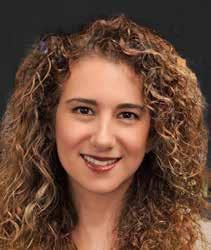
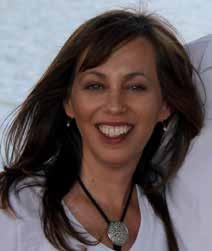
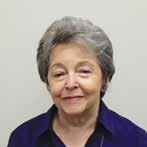
Whether you celebrate Rosh Hashanah or not, the theme of “Reach for The Stars” gives us time to reflect and learn from last year’s lessons and to continue striving for excellence while reaffirming our commitments This is a timeless message, one that transcends the boundaries of age and background. We have a new opportunity with this new year to set goals and make a commitment to be the best version of ourselves. We should be encouraged to reach for our own stars and pursue our dreams with determination and kindness towards ourselves and the world around us.
Setting goals and reaching for them offers a sense of personal growth and an opportunity to shine. It encourages us all to overcome hurdles, reach for our own stars, and to nurture our dreams with unwavering determination and kindness. Just show the best version of yourself -be it at home or out in the world- and realize that reaching for the stars in the coming year will project optimism and hope for your dreams to become reality. Just put your aspirations out there and do the work. Perhaps we can all benefit from them. May the path ahead be illuminated by the glowing stars we reach for and may Rosh Hashanah be a time of warmth and joy for us all.
Elizabeth Langfelder is an Account Manager for the Atlanta Jewish Times.
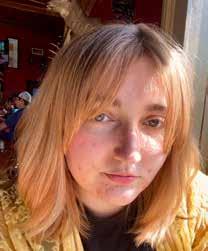
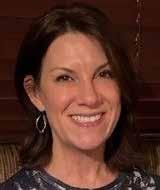
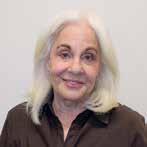
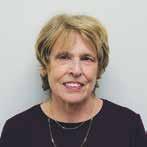

One of the main messages in The Barbie Movie is that so many contradictions and impossible standards are expected of women that even Barbie, a literal doll, cannot measure up to them. Seeing Barbie, “The Perfect Woman,” sob because she feels worthless and not enough was an unbelievably emotional experience. It gave us permission to breathe and acknowledge how hard it is to exist in a world that teaches you to hate yourself. We aren’t wrong or broken for not meeting impossible expectations; we’re allowed to exist imperfectly. Not as what other people think we should be, but purely for what makes us happy. When making your resolutions and intentions for 5784, ask yourself, are you reaching for the stars that will make you happy, or the stars someone said would finally make you perfect? As I decide what I want for the new year, I’ll be keeping this Barbie quote in mind, and I hope you do too. “We have to always be extraordinary, but somehow we’re always doing it wrong… I’m just so tired of watching myself and every single other woman tie herself into knots so that people will like us. And if all of that is also true for a doll just representing women, then I don’t even know.”
Katie Gaffin is the Events and Public Relations Coordinator for the Atlanta Jewish Times.
Each day is a gift. In my work with Holocaust survivors, I know that people who have been through unspeakable trauma understand this to be true for most of their lives. The rest of us may come to this understanding later. During 5783, this past year, I lost three dear ones: both my parents and our sweet feline companion of more than 19 years. Though I miss each of them every single day, I give thanks that they all lived full, long lives and we had each other for so long. In recalling the health struggles my mom and dad faced during their last years, it’s impossible not to come to the sobering realization that our days are not infinite and life can become harder. It’s something we all know, of course, but remembering not to take our days for granted encourages us to give better intent to focus on those we love and how we want to live.
My own hopes and plans for 5784 include nurturing relationships with family and friends and appreciating the small and big things that bring joy and purpose–watching the hummingbirds chase each other at the feeder, a good bike ride, learning something new, and engaging in meaningful work. Oh yes, and finishing that kitchen renovation will be really great too! Wishing everyone a Shanah Tova and discovering your own personal goals for the new year!
Fran Putney is the proofreader and staff writer for the AJT and serves as the communications manager for the Georgia Commission on the Holocaust.
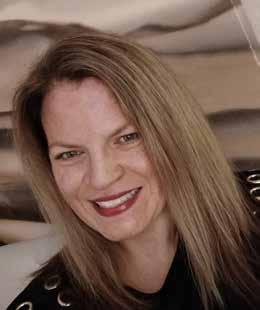
For this New Year, I want to make obtainable changes in myself. I want to be a better wife, mother, friend, sister, daughter, and employee. There are a lot of ways I can obtain this goal, but the main way is by listening. Not only hearing what a person says but, listening to their heart, words, and the meaning behind it. I want to really dive into the hidden meaning. In this day and age listening is a true art. Not only do you have to figure out the cues they are saying by actual spoken word but also by written word. Sometimes both could misconstrue to mean something else. It is very difficult to “listen” to communicate texting or by email. You can easily misread a person’s tone, and it is easy to misread the true meaning. Things can be taken out of context and this can lead to conflicts.
I am going to obtain my goal by listening before speaking, making eye contact (if in person), and watching their body movements. Both in the written and verbal word, I really need to ask questions to see if I really understand the thought my husband, children, friend, brother, father, and employer are trying to convey. I think I need to focus more on in-person or verbal contact to be successful in becoming a better listener. I am hoping by 5785 I can be a better listener. Shanah tovah.
Diana Cole is the Community Coordinator for the Atlanta Jewish Times.
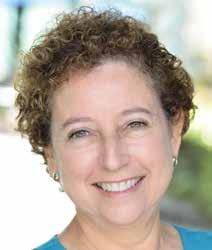
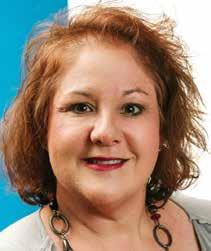
In this new year I see reaching for the stars to have various meanings. I plan to make attainable goals that I can achieve -- some of which are things such as spending more time with family and friends. I want to make sure that my daughter spends time with my parents. I am lucky that they live nearby, and they love going on outings with her. She was also lucky enough to know her great-grandmother and has fond memories of her.
I am lucky to have a wonderful group of friends and I will try to make plans with them on a regular basis. Sometimes, this is challenging due to everyone’s busy schedules. Another goal is to get more rest mentally and physically. This means having less screen time and spending less time on social media. Getting the physical rest of getting better sleep and exercising more regularly is also something that I’m striving to do in this new year. I realize that I am always too hard on myself and must give myself a little grace.
These goals may seem simple but having balance in life isn’t always easy. I will do my best to achieve them and strive to better myself in this new year. I look forward to spending the holiday with my family and singing the “Dip the Apple in The Honey” song. May everyone have a sweet new year!
Shana Tova!
Rebecca LaBanca is the administrative assistant at the Atlanta Jewish Times.

In addition to providing significant tax advantages, establishing or contributing to an endowment connects future generations of your family to the causes that matter most to you. You can sustain your favorite Jewish organizations now and forever.


A few years ago, a man in his thirties took his own life by jumping off the Golden Gate Bridge. After his death, his psychiatrist went with the medical examiner to the man’s apartment, where they found his diary. The last entry, written just hours before he died, said, “I’m going to walk to the bridge. If one person smiles at me on the way, I will not jump.” Susan Szeliga, from New York, said about her own struggle with mental illness,
“Most important to my recovery was unexpected kindness from strangers who never even realized that they made my days bearable. On one particularly hard day, a smile from a bank teller brought tears of gratitude to my eyes.” If the care of strangers can mean so much, how much more valuable is the care of friends.
This year, we all need friends who pay attention. The Atlanta Jewish community is a community of friends, of caring, and of healing. Let’s be here for each other – not like Job’s friends in the Bible -scolding, accusing, and blaming – but like the friends Job really needed -- friends who understand, friends who listen, friends who encourage, and friends who pay attention. Let our Atlanta Jewish community pull back the veil of silence so that the light can come through. This is who we are. This is what we do. To those who feel invisible and unheard. Those who feel isolated and strange. Those who feel, at the beginning of the New Year, in exile. Your community is here for you. We see you. We hear you. We love you. You are needed and you are loved. You are not alone. We will sit with you in your darkness, we will cry alongside you, we will take your hand and lead you to the light of day - when you feel ready. And we can help you find the resources you need.
The New Year calls upon us to be brave and strong and to find compassion and contentment. May we choose this New Year, as the Israelites did on the shores of freedom’s sea, to take a breath and a big step forward and to reach out. May we honor and nurture our whole selves and accept each other as genuine. May we be for each other, the friends we really need this year, giving us strength to let the light shine through the cracks of darkness, healing our souls with joy and laughter. Shanna Tovah.
Rabbi Peter Berg is the Senior Rabbi of The Temple in Atlanta, Ga.
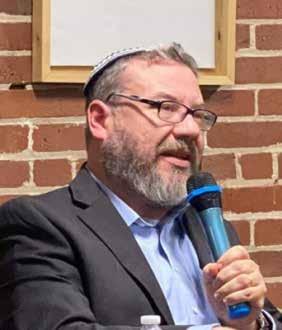
When Avraham looks to G-d for assurance that his descendants will be numerous as well as great, G*d shows him the night time sky and challenges him: “Count the stars, if you can and know that your descendants will be as numerous ” Why does G-d instruct Abraham to try to do the impossible task of counting the stars rather than simply refer to their infinite multitude? Avraham is to learn the lesson that our inability to grasp the stars is not a temporary condition but the very nature of their greatness and, by extension, ours.
We too look to the stars, knowing that whatever scientific understanding we have about their origin and make up, we will always give way to the awe with which we wonder at their immeasurable vastness and beauty. It is fitting that Rosh Hashana, despite being called the birthday of the world, is not the day that the stars were made or any other of the luminaries and appointments of the heavens, but, it was the day when the stars first were given their meaning - the day that human beings were created and the stars and all of the heavens and earth could be seen. In our tradition we know that we are created to be in the image of G-d which dwarfs even the nature of the stars themselves
Rabbi Michael Bernstein is the spiritual leader of Congregation Gesher L’ Torah in Alpharetta.
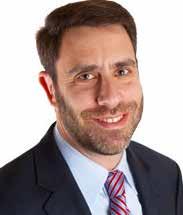
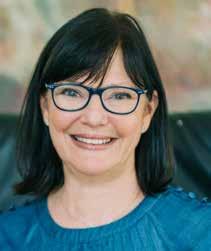
With feet firmly planted, I reach as tall as I can stretching and looking upwards to spot the star so very high. “Star light, star bright, wish I might get the wish I wish tonight.” I have recited this since my earliest memories.
This year’s prompt: “Reach for the Stars” is provocative, eliciting powerful memories and dreams for the future. Dreaming forward for a moment, … when reaching for the stars it’s important to reach for what’s meaningful and worth going after.
This must begin with a vision that is aligned with core values and beliefs. My essential core values are LOVE, GRATITUDE, and FORGIVENESS. If I were to define it, I’d say, “Appreciating G-D in each of us and with that brings acceptance, forgiveness, gratitude and love.”
Standing in these values, designing a life vision for my work, I put forward this,” My life’s work is to be in concert with others, bring transformative solutions to address the societal ills of our times.” Reach for the stars is a natural expression of living this vision.
Every day, linked arm in arm with my incredible colleagues at Jewish Family & Career Services we do all we can to bring transformative solutions to the challenges our community faces. It is a gift to be doing this work side by side with the JF&CS team, lay leaders, staff, donors, all stakeholders. Whether it is through Shalom Bayit, (Peace in the Home) which is celebrating its 30th anniversary, or Frances Bunzl Clinical Services with the newly expanded Horwitz-Zusman Child and Family Center, the Ben Massell Dental Clinic, Aviv Older Adult Services, or Zimmerman Horowitz Independent Living program, to name a few, the work of JF&CS aims for the stars. We see G-D in all who cross our doors and we are called to shine a light on the promise within.
Shana Tova!

Terri Bonoff is the CEO of Jewish Family & Career Services of Atlanta.
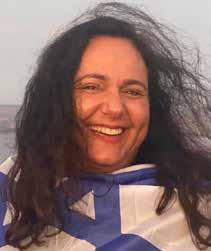
“Reach for the Stars - Be All You Can Be - Become Whoever You Want to Be. Be a Star in 5784.” As we embark on this exciting journey into the year 5784, let us take a moment to reflect on the infinite possibilities that lie before us. Each of us holds within ourselves the power to reach for the stars, to be all we can be, and to become whoever we want to be. It is an extraordinary gift, a beacon of hope that illuminates the path towards our dreams. In this vast universe, seem like small specks of stardust. But do not underestimate the power that resides within you. You possess a unique combination of talents, passions, and potential waiting to be unleashed. Embrace your individuality, for it is the key that will unlock the door to your true self.
Remember, the journey is not always smooth. There will be obstacles and challenges along the way. These hurdles are merely opportunities for growth and learning. Embrace them with a determined spirit, for it is through adversity that we truly discover our strength. Surround yourself with kindred spirits who believe in your dreams and uplift you in times of doubt. Seek out mentors who can guide you towards your goals and inspire you to push beyond your limits. But most importantly, believe in yourself. You have an inner reservoir of resilience and brilliance that is waiting to be tapped into.
Be open to new experiences and embrace the unknown. Let your curiosity lead you to uncharted territories, for it is in the exploration of the unfamiliar that we find our true calling. Take risks, step outside of your comfort zone, and dare to dream big. As we enter the year 5784, let us celebrate the unique tapestry of stories, dreams, and aspirations that make our community shine.
Together, let us support one another, encourage each other’s growth, and celebrate each individual’s journey. May your path be illuminated with endless possibilities, your heart filled with unwavering passion, and your spirit forever fueled by the desire to be all you can be. Embrace the power within you. Wishing you a good and sweet new year.
Adam Sandler’s new bat mitzvah video on Netflix is taking the Jewish people by storm. However, in my humble opinion, it’s not his best one. Nor is his best one Happy Gilmore, Billy Madison, or even my wife’s personal favorite, “Lunch Lady Land.”
Adam Sandler’s best video is an SNL sketch from when he hosted the show in 2019, called “Romano Tours.” I’ve been recommending it to colleagues for years, always to rave reviews.
In “Romano Tours,” Adam Sandler is a tour company operator from New Jersey advertising trips to Italy. During his commercial, he points out all the sites to see, as well as positive testimonials from people who have taken the trip.
Then, in the middle of the commercial, he gets serious.
He sadly remarks that “every now and then, someone leaves a review that they were disappointed…so here, at Romano tours, we always remind our customers: ‘If you are sad where you are, and then you get on a plane to Italy, the you in Italy, will be the same sad you from before…there’s a lot a vacation can do, but it can’t change your baseline mood. That’s a job for incremental lifestyle changes sustained over time.’”
Amidst uproarious laughter, Sandler’s character then goes on to add that his trips can take you on beautiful hikes but cannot transform you into a person that likes hiking, and that they can take you to the riviera, but not make you comfortable wearing a bathing suit.
From time to time, we all fall into the trap of thinking others can fix our problems for us. We’ve become a society accustomed to throwing money at our shortcomings in the hopes they will go away. But what I love about Romano Tours is that it reminds us that the key to growing to be our best selves isn’t to place our faith in someone else, but in ourselves. We can travel the entire world from Italy to Israel in the hopes of finding answers, only to find that which we are seeking is right at home. We can spend a hundred thousand dollars on a bat mitzvah party, but that’s not going to make our kids love Judaism or learn to embody its values (see the movie).
In Pirkei Avot, our rabbis teach: “Who is wealthy? A person who is content with their lot.” Maybe, in the new year that’s the place for us to start. All that we need to reach for the stars has been given to us by God and is contained within each of us.”
Rabbi Dorsch is the rabbi at Congregation Etz Chaim, and the President of the Atlanta Rabbinical Association.
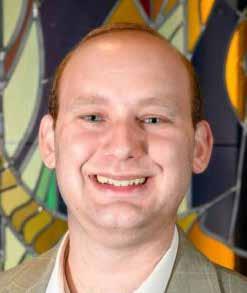
As Rosh Hashanah approaches, I find myself on a journey toward being more present in my daily life. With the guidance of my Executive Coach, I’m learning that it doesn’t always require a major shift in our routines; even dedicating just 30 seconds a day to being aware of our surroundings, our thoughts, and our blessings can make a profound difference.
This Rosh Hashanah, my wish for you is simple yet powerful: the ability to take a moment, even in the midst of life’s challenges, and pause to see the beauty that surrounds us. In the rush of our busy lives, it’s easy to become consumed by worries, responsibilities, and hardships. But within those brief pauses, we can find solace, gratitude, and a renewed sense of purpose.

May this new year grant us all the strength to embrace the present moment, to acknowledge the blessings in our lives, and to see the beauty that exists even in the most difficult of circumstances. As we enter this season of reflection and renewal, may we find the serenity to be fully present, and may it bring us closer to the peace and fulfillment we seek.
L’Shanah Tovah Tikatevu – May you have a blessed and mindful year ahead.
Elana Frank is the CEO & Founder of Jewish Fertility Foundation



Comedian Brian Regen joked: “If you get in an elevator anywhere else in the world, people walk in and press ‘lobby’. You get in an elevator in New York City, people walk in and press lobby, door close, door close, door close, door close, door close, door close.” While funny (and true), this illustrates a psychological concept called “Placebo Buttons”. Placebo buttons are actions we do (or buttons we press) that have no impact or effect on our lives. Yet, we all do it! Placebo buttons provide us with an illusion of control. In fact, per the Americans with Disabilities Act (1990), elevator doors MUST remain open for at least three seconds.
This means that any elevator installed in the last 33 years has included a button that is utterly useless. It’s not that it doesn’t work, it CANNOT work per law. Yet, when we are in a rush and taking an elevator, we all press the door close button with passion, frustration and with prayer that the button will miraculously work and hasten the elevator doors. We join together many times during the High Holiday season. I nervously and respectfully would like to ask the following difficult question; are our prayers placebo buttons? Do they accomplish anything? Are we just routinely coming to Synagogue and reading our prayer book like a person getting on an elevator unconsciously pressing the door close button? What does MY prayer today actually accomplish? Will it make an impact on my life or is everything already predetermined, and I am merely experiencing the illusion of control?........
Talmud Rosh Hashana 8a wonders this exact question by highlighting contradicting statements: We are taught that every year we are judged for the following year (Devarim 11:12). Yet our Sages also teach us that man is judged every day.

This highlights the idea of repentance and the ability to change. How do we make sense of these conflicting statements to understand when we are actually judged? Rav Simcha Zissel writes that on Rosh Hashana AND every day of the year we are individually judged. Not only that, but when we are judged, we should be worried and nervous about judgment. However, on Rosh Hashana we pray as a Tzibbur (community). When uniting and joining together in prayer we unlock unique merits and levels of mercy with G-d so we can be inscribed for a sweet new year.
In fact, Rabeinu Nissim writes on Rosh Hashana, we were forgiven for one of the worst sins in Jewish history, the sin of the golden calf. From that day on, Rosh Hashana became a day dedicated towards G-d’s forgiveness and is the day we can achieve forgiveness. All prayers, especially communal prayer guarantee mercy. This is why we can confidently celebrate the holiday with meat and wine. Our prayers today are not placebo buttons. We spend our day uniting with each other and tapping into a level of holiness and strength that we could not achieve on our own or any other day of the year. We are working together to pave the way for a blessed year. This year when we pray let us unlock our potential and be all that we could be. This year when we hear the shofar’s blast we can imagine pressing a button that works!
Rabbi Nachi Friedman is the Rabbi at Anshi Sfard in Morningside/Virginia Highland and therapist at JF&CS.
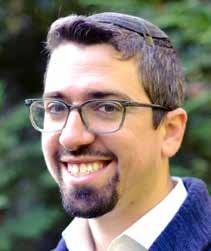

As the Jewish new year circles around us once more, it comes with endless realizations that we blink, and life happens. Just like a sun setting, in a minute’s notice, it gently disappears. The moments before it sets, the sky presents an ever-changing possibility of colors radiating a palette of reds, oranges, and yellows. Recently my 11-year-old granddaughter, Dani, helped an everyday moment take on a new meaning. Dani pointed out as the evening approached, she was going to watch the sun set. When I asked if she watched it often, she replied with her contagious smile, “Or course, I love watching the sun set every night.”
Dani’s awareness of the sun setting was profoundly beautiful to me. To see her valuing nature’s silent fireworks welcoming in the evening as the day closes was special. This grandmother learned quite the lesson from joining her, awaiting that moment of awe. Together, we looked forward to something positive that was about to happen, without knowing for certain the outcome. Would the clouds embrace it? Would it be spectacular? We patiently awaited the outcome which did not disappoint.
Like the Jewish New Year, the sun set, and the holiday always returns. It reminds us to be present in the moment, fully aware of the magnitude of its beauty and treasures. As I look for the sunsets symbolic understanding of how I feel each year when the holidays return, I wish to thank Dani. She reminds us to pause, take in the view and look forward to another day and a new year. A clear reminder that our blessings in life should be appreciated and never taken for granted. As the sun sets, I will remember this silver lining moment.
Here’s to a happy and healthy year to you and yours. May our families, children and grandchildren continue to sweeten and teach us from generation to generation. They are the stars that provide life’s most beautiful sunshine and brighten our lives with endless joy and possibilities.
Robyn Spizman Gerson is a New York Times best-selling author and media personality. www.robynspizman.com

Arturo Toscanini, born in Parma, Italy in 1867, was an Italian conductor. With an intense and brilliant mind, his renown earned him the deserved recognition and consideration as one of the greatest virtuoso conductors of the early part of the 20th century. One night, a reporter reached out to Toscanini, and asked if he would be able to visit him.
“I’m busy,” replied Toscanini. Toscanni continued, “tonight, I am listening to one of my favorite symphonies through short wave radio.” To the biographer, this was the perfect opportunity. Even to see Toscanini listen to a symphony was to see him in action. “Can I come and watch you listen to the symphony?” requested the biographer. “Yes,” confirmed Toscanini, “on one condition: you don’t say a word.” Sure enough, the reporter arrived, and carefully observed Toscanini listen to the symphony via the short-wave radio. As the symphony came to a close, the reporter spoke up. “Maestro, that was brilliant, no?” Toscanini looked back at him. “No, not really.” The reporter was confused, and asked, “What was the problem?” Toscanini responded, “there were supposed to be 15 violins, and I only heard 14 violins.” The reporter didn’t know how to respond. To the ordinary ear, picking up on such things was near impossible.
The next day, the reporter phoned the conductor overseas. “I must ask you a question,” said the reporter. “How many violinists played in last night’s symphony?” “We were supposed to have 15 violinists,” replied the conductor, “and only 14 showed up.” Shocked, the reporter returned to Toscanini, and confirmed the news. “How in the world,” he asked Toscanini, “sitting on a couch, thousands of miles away, listening on a radio, were you able to detect that one violin is missing?” Toscanini looked back at him. “That’s the difference between you and me. You are part of the audience; I am a conductor. I know each note. For you, a note here, a note there, doesn’t make a difference. For me, I knew that this symphony needed 15 violins, and as soon as I heard that some notes were missing, I knew that they were short one violinist.”
During these High Holidays, let us remember that each of us plays a role in making this world a better place and on our beautiful notes are essential in making this happen. May we be blessed to provide light, healing and sweetness in the New Year.


Rabbi Brian Glusman serves the Marcus Jewish Community Center of Atlanta and is the visiting rabbi at Shearith Israel Synagogue in Columbus, Ga.
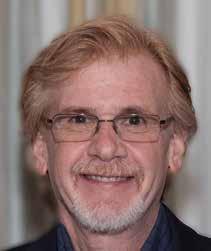

Pailey Nooromid & Eydie


As a transplant from Boston, one of the things I love most about living in the south is riding my motorcycle all year long through the North Georgia mountains. Aside from the perfect weather and thrills of the winding roads, I find the solitude and scenery a source of personal inspiration that keeps me grounded. As the engine roars to life and the wind rushes past, I find myself in a state of exhilarating freedom and connection with nature. Riding offers a sense of liberation, a break from the awesome responsibility of caring for the most vulnerable among us.
It’s a time when I can clear my mind and rekindle my spirit.
Rosh Hashanah is an ideal occasion to commit to being more purposeful in our efforts to do that. Often in the day-to-day tasks of caring for those we love, it is easy to forget that self-care is essential in order to provide the best support to others. I’m here to say that the best caregiver you can be includes carving out time for yourself. Whether it is riding a motorcycle like me, fishing or birding, walking around the block, or simply choosing to decline the 14th phone call in a row and responding when you are ready – these small moments can be so refreshing when the pressures mount.
In this new year, I wish everyone the strength to “be all you can be” by recharging your own batteries and finding some precious time for yourself. L’Shana Tova.

Jeffrey A. Gopen is the President and CEO of Jewish HomeLife.
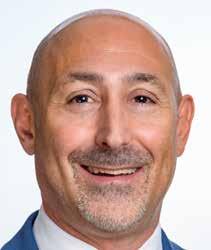
Rosh Hashana is a holiday that’s very closely linked to tears. On the first day, we read about Hagar and her crying out when she and Ishmael were cast away by Avraham and Sarah. We learn about the tears of Hannah when she cries out in Shilo about her longing to be a mother and to have what others have. And tears are found in various midrashim about the Akeidat Yitzchak. All of these tears and more are very essential to the way we should relate to the day. If Rosh HaShana and Yom Kippur are to be “real” and not just something we “merely go through the motions with,” then we need to see ourselves as standing on the cusp of a new life while looking back on the old. We need to see we have much to be thankful for and much to be proud of, and at the same time, we need to recognize we have much cause for remorse. As we learn in the Talmud (Brachot 32b) “Since the day the Temple was destroyed the gates of prayer were locked, as it is said, ‘Though I please and call out, He shuts out my prayer’ (Lamentations 3:8). Despite the fact the gates of prayer were locked, the gates of tears were not locked, as it is stated, ‘Hear my prayer, Lord, and give ear to my pleading, keep not silence at my tears.’(Psalms 39:13)”
The tears we cry are another method of reaching to G-d. This has been a difficult year. Our news cycle runs from one natural disaster to another… multiple political crises… the situation of divisiveness in Israel and here at home… and so much more. It’s easy to see the tears of our ancestors are alive and well today. As we embark on a New Year, we need to feel our way out of this pit and look for the light all around us. The tears we physically, and metaphorically, have shed in the past year need to be our prayer for a different year ahead of us. May we each look to news not of disasters but of building.
May we all look for news not of political crises but of miraculous work on furthering our union. May we all look for news not of bitter divisiveness in Israel but that Medinat Yisrael live up to her station as being a “light unto the nations.” May this year be one where each of us pulls together to shed fewer tears of despair and many more tears of joy and elation. Tizku L’Shanim Rabot.
Rabbi Hearshen is the Rabbi of Congregation Or VeShalom in Brookhaven.
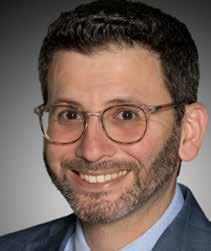
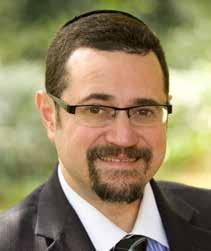
On Rosh Hashanah, the traditional Torah reading culminates in God’s promise to Abraham that he will be like the stars in the heavens, and the sand on the shores of the sea. Abraham’s reward for being willing to offer up his only son, is a blessing that his descendants will become multitudes, like these two uncountable quantities. If we consider more carefully, though, these two images are unlike in everything except for their number. We’ve all seen the beach, and perhaps even the desert. While grains of sand are seemingly infinite, so that trying to count them seems like an impossible task, there is nothing special about any particular one of them. Buckets could vanish unnoticed, tons wiped away by the tide. We thoughtlessly wipe a thousand grains off our feet. In contrast, stars are lofty. Today we have a theoretical understanding of the vastness of space. We know that each star might represent a solar system, or an entire world, a multitude in and of itself. In practice, though, if we are city dwellers, colossal collections of galaxies are rendered invisible by a nearby streetlight. The few stars that we can see are just a dim, dark, echo of what Abraham would have seen gazing into the clear dark desert sky. Perhaps as we enter the high holidays, we should consider the ways in which we, as Abraham’s descendants, are like both sand and stars. When we think of sand, we are reminded of the need for humility. Our tradition teaches us that we are but dust and ashes. On the other hand, even that which is humble can be durable and enduring. When even stones are worn down, sand remains. On the other hand, we cannot forget that each of us is a star as well.

Each of us is a unique creation, of infinite value. Each of us encompasses entire worlds. Each of us has the ability to emit brilliant light. The process of teshuvah helps us make that holy light shine through when it might otherwise be overshadowed by the neon glow of nearby temptations. Even the brightest stars will someday burn out, but their light can continue to bring illumination to those far off long after they have dimmed. Let this be a year when we bring a little more light to the world, even as we keep our feet rooted in the sand.
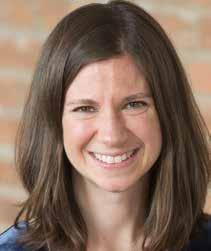
As a new mom, I’m constantly forgetting things. Where did I leave that pacifier? Did I schedule my son’s 9 month appointment already, or did I just think about scheduling it and forget? I wish I could be the kind of mom and rabbi who, like Rabbi Eliezer ben Hyrcanus in the Mishnah, is called a bor sud she’eino me’abed tipah - a plastered cistern who never loses a drop (Pirkei Avot 2:8). He would never forget a single thing that he had learned, and all the wisdom would stay inside of him like a sealed water vessel.
Alas - these days, I’m a pretty leaky vessel, more like a colander than a cistern. Which is why I find myself drawn this year to the lines from the Rosh Hashanah Musaf liturgy that describe G-d this way: “You are mindful of Your creatures since the beginning of time...you remember every deed, and nothing in creation can be hidden from You. You have always remembered that which has been forgotten, for there is no forgetting in Your realm.” (Machzor Lev Shalem, Zichronot, p. 161-162)
The idea that there is a place, a space we call G-d that is the source of all memory, where nothing is ever forgotten, gives me great comfort. In a time of life when I feel my own limitations and finitude every single day, I find great relief in connecting with a Presence that is infinite and boundless, that remembers everything, that is meeting us in every moment with infinite forgiveness and love. I hope you, too, are able to remember your core divine essence and forgive yourself when the going gets tough. If this is a year when “reaching for the stars” seems way too much to aim for, maybe this year can be about reaching for the very next moment with a little more kindness toward yourself and others.
May you be met with kindness in every encounter in this year to come.
The two High Holy Days, Rosh Hashanah and Yom Kippur, are linked. On Rosh Hashanah, we celebrate Creation and on Yom Kippur, we forgive and ask for forgiveness. These seemingly different themes are actually very well matched because forgiveness is a creative act. The pain of wrong doing can last a while. People can remember the hurt they experienced for years. Forgiveness is not about changing the past, which cannot be changed. Nor is it about simply forgetting or ignoring what happened. Rather, forgiveness is a deliberate choice on what sort of future one wants to create.
It is a decision not to invest emotional energy into nursing old wounds or bearing resentment. It means that one can say that even though something wrong was done, and even though pain and hurt were caused, the future will not be based solely on that. We often think of forgiveness as something that is offered between two different people. Sometimes, though, we need to forgive ourselves of our own shortcomings. Regret and guilt can occasionally be a useful, important catalyst for self-improvement. But when the lessons are learnt, the focus can be on who we are now and who we want to be, not solely past deficits. That is a form of forgiveness. Our High Holy Day prayers say, “On Rosh Hashanah it is written.” The medieval sage Bachya ibn Pakuda has a profound understanding what it means to “write” something. He said, “Days are like scrolls, write on them what you wish.”
On Rosh Hashanah, the day celebrating Creation, we are asked to think about what sort of future we want to write. So, in the words of the prompt suggested by the AJT for this column, Reach for the Stars - Be All You Can Be - Become Whoever You Want to Be. Be a Star in 5784 and let us use forgiveness when writing about our days. L’shanah tovah u’metukah, a sweet and good New Year to everyone!
Rabbi Jason Holtz is the Senior Rabbi of Temple Kehillat Chaim in Roswell, Ga.
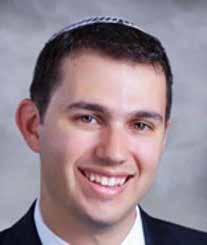


In the tapestry of time, the Jewish New Year, Rosh Hashanah, marks a sacred moment, a threshold into a new beginning, and an opportunity to embark on a journey towards self-discovery and growth. The theme for this year, “Reach for the Stars - Be All You Can Be - Become Whoever You Want to Be. Be a Star in 5784,” resonates deeply with the essence of this season. In the heart of this theme lies a profound truth: we are not bound by our past or the limitations others may impose upon us. As we stand on the cusp of 5784, it is a reminder that we possess the inner light to shine as bright as the stars that adorn the night sky. It beckons us to envision the best version of ourselves and take bold steps towards that vision. It is all too easy to succumb to the doubts and skepticism that surround us, to let the nay-sayers and disbelievers hold us back. Yet, like the pioneers who dared to explore uncharted territories, we must forge ahead, guided by our own convictions. Just as the stars steer their course through the vast expanse of the universe, we too must set our sights on our aspirations and navigate through life’s challenges. When we reach for the stars, we cast aside the fear of failure.
We acknowledge that setbacks and stumbles are mere stepping stones on our journey towards greatness. Every fall is an opportunity to rise stronger, more resilient, and closer to our dreams. Failure, after all, is a chapter in our story, not the final page. As the pages of 5783 turn, we pause to reflect on our past, on the trials and triumphs that have shaped us. But let us not linger there too long. Instead, let us gaze forward with hope, for the future is unwritten, a blank canvas awaiting our dreams and aspirations to fill its spaces. Dream BIG. In the canvas of a new year, there are no limits to what you can achieve. Believe in yourself, for that belief is the spark that ignites the constellation of your potential. In the darkest of times, when the night sky seems shrouded in uncertainty, remember that everything in life is temporary, including the challenges that test your spirit.
This Rosh Hashanah, let us embrace the theme with open hearts and open minds. Let us aspire to be the shining stars we were meant to be, casting our light on the world and illuminating the path for others. Reach for the stars, for they are not unreachable; they are the very essence of who you can become. In 5784, may you shine brightly, write your own story, and inspire others to do the same.


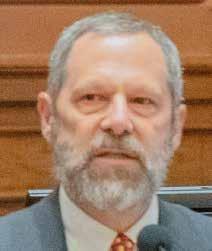
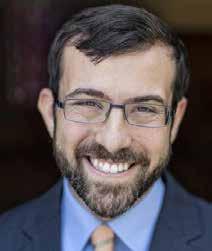
“Ezra opened the scroll in the sight of all the people, for he was above all the people; as he opened it, all the people stood up. Ezra blessed the Lord, the great G-d, and all the people answered, “Amen, Amen,” with hands upraised. Then they bowed their heads and prostrated themselves before the Lord with their faces to the ground. (Nehemia 8:5-6) We don’t pray enough with our hands upraised, or our foreheads on the ground. These are postures that reflect complete openness and vulnerability, and complete humility.
The High Holidays are some of the few times that we are invited by our liturgy into these positions. Our culture has somehow evolved to a place where openness, vulnerability, and humility have to be re-learned. The power of these postures to transform us for the better were lost to the criticism of “touchy-feely,” but touching, and feeling are how we “become what we want to be.” These are the postures that have the power to induce awe, the feeling that we are part of something much greater than ourselves, beyond our knowledge.
May we be blessed to raise our hands to the heavens in openness, to bow with humility at our smallness, and feel the gaze of G-d seeing our whole selves, and loving us despite our mistakes.
We are now at the end of the month of Elul, just before the great days of awe, judgment and forgiveness. Not only is it the conclusion of the year, but it is the conclusion of a year of Hakhel, a once in seven year gathering where in Biblical times the Jewish King would read the Torah to all men, women and children in the Holy Temple in Yerushalayim. It was a unique gathering that took place at the beginning of the year, but a show of unity that would set the tone for the whole year of Hakhel!
There continues to be much strife and division in our communities and throughout the US and world. The stresses and strains are wearing thin on many. Maybe it is time to shut off the internet, turn off the evening news and talk radio and focus on what really matters in life and the relationships important to us. It is hard to fathom a candidate for president getting elected in an overwhelming mandate or a US Supreme court Justice who gets confirmed almost unanimously. Ronald Reagan was elected and re-elected winning 45 and 49 states in 1980 and 1984, respectively while Ruth Bader Ginsburg was confirmed in 1993 with 96 votes! In this post-Hakhel year, we must double and re-double our efforts for unity in our personal lives and communities. President Reagan said “The person who agrees with you 80 percent of the time is a friend and an ally - not a 20 percent traitor.”
From my family to yours, prayerful and traditional blessings for a good and sweet new year both materially and spiritually, Shana Tova U’Metukah!
Mitchell Kaye served and was elected six times to the Georgia House of Representatives and is a frequent traveler to Israel. He has three children and four grandchildren, and lives in east Cobb with his wife, Amy.


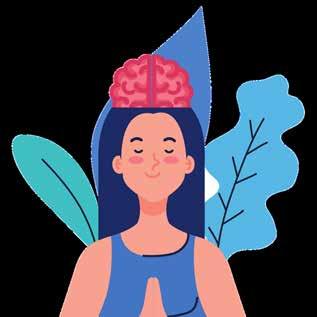




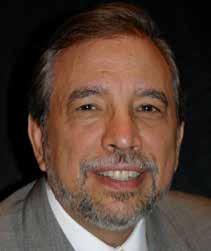
The Torah portions before Rosh Hashanah contain an essential message. Farmers in ancient Israel were required to bring their 1st-fruits in baskets to the Holy Temple in Jerusalem. How much fruit was one required to bring? That was up to the farmer. It wasn’t easy in those days making the trip to the Holy Temple in Jerusalem. There were expanses of land that were uninhabited; the terrain was difficult, sometimes treacherous; there were criminals lying in wait on the way; and if one lived in the north it could take up to 10 days to get there with one’s donkey. All this just for a basket of fruits? No, it wasn’t the fruits that were important. What was important was that you show up and show your gratitude and appreciation.
Today you can get into a car and travel from the most northern border on Israel’s modern highways, and in just a few hours, be in Jerusalem. When the Temple will be rebuilt—may it be speedily in our day—I wonder how that might look. I have in my office an artist’s rendering of people pulling up to the rebuilt Holy Temple with cars, trucks, and even helicopters. I suppose one might think that one could FedEx his 1st-fruit basket like the gift baskets we send today. But how much appreciation would $45 of shipping costs be? No, for the mitzvah of the 1st-fruits one must show up—to be there and present the fruits himself reciting a special declaration of appreciation. This 1st-Fruits ceremony is all about appreciation and gratitude, and that’s why we read it before Rosh Hashanah. We can’t be ungrateful for God’s blessings and then ask Him to forgive us of our sins. Let me suggest an appreciation exercise. Think of 3 things for which you are grateful. Now think of 3 more things. Could you list 10 things for which you’re grateful?
If each of us took a moment every morning to list 10 things for which we are grateful, how might that color our day? Would we smile more? Have more patience with our kids or our co-workers? Would we feel happier? What if we listed those things at night before we went to bed and thanked God for them? Would we sleep better?
I think so, and there’s actual hard science supporting this. Researchers at UC Berkeley found that…people who practice gratitude consistently report a host of benefits including stronger immune systems and lower blood pressure; higher levels of positive emotions; more joy, optimism, and happiness; acting with more generosity and compassion; and feeling less lonely and isolated.
This confirms what our sages taught thousands of years ago from the Bikkurim 1st fruits thanksgiving declaration (Deut. 26:5-10) with nine specific statements of gratitude. Why did God have to command that we make this declaration? Because it’s human nature to take for granted what we have. We must be trained to be grateful. That’s why our Sages prescribed that we should offer 100 blessings of appreciation to God every day. Every time we’re about to eat or drink—even water—we must thank God. We begin our Shacharit morning service with a series of blessings thanking God for our intelligence, our sight, our ability to afford shoes and our ability to walk. As I get older, I appreciate the ability to walk more and more! There’s even a prayer to be recited after going to the bathroom in thankfulness that our internal plumbing is functioning. Now that’s an attitude of gratitude!
The question is: why does this passage of showing gratitude precede the Tochacha — 98 frightening curses that will befall the Jewish people if they abandon God and His Torah? The answer is found in the Torah immediately preceding the 1st Fruits ceremony. It’s the command to destroy Amalek wherever he raises his ugly head. Amalek attacked the Jewish people when they left Egypt from behind where the weakest were to be found. Amalek attacked for no reason. The Jews didn’t threaten them or approach their land. Amalek attacked simply because they were Jewish! It makes no sense. Anti-Semitism never does.
The message is that appreciation and gratitude is the ultimate defense against Amalek and curses. When we’re ungrateful—the Talmud tells us—God will send us an Amalek of sorts to teach us a lesson. God is, in effect, saying, “If you disrespect Me, if you don’t appreciate what I do for you…Amalek will be on the way to attack you.” In Biblical times it was Amalek who attacked, today it’ll be the Palestinians, Hamas, Hezbollah, ISIS, or God forbid, nuclear Iran. Gratitude to God is a most appropriate and powerful lesson — especially for Rosh Hashanah.
One last thing about gratitude. If Amalek and the curses won’t motivate you to be grateful, how about happiness? Dennis Prager writes (Happiness Is a Serious Problem): Yes, there is a “secret to happiness,” and it is gratitude. All happy people are grateful, and ungrateful people cannot be happy. We tend to think that it is being unhappy that leads people to complain, but it is truer to say that it is complaining that leads to people becoming unhappy. Become grateful and you will become a much happier person.
The main theme of Rosh Hashanah and Yom Kippur is teshuva—returning to God. How? The first thing we must do is be grateful and better appreciate the wonderful blessings Hashem has showered upon us, so that we can draw closer to Him as we enter the New Year with a more grateful, happier, and more loving heart.







As we roll into 5784, may this year be one of peace and happiness around the world and throughout our entire Jewish community. Remember to take the time with your family and friends to “Live, Laugh and Love” each day. Let’s begin the year with a fresh start and plan to make each day better than the next as we renew our commitment to our faith and dreams. L’shanah Tovah! Happy Rosh Hashanah to you, your family and friends!
Lou Ladinsky is a Product Manager for Identity Solutions at LexisNexis Risk.
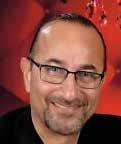
One of my favorite teachings, learned long ago, is that a “Jewish Star” is one who helps others shine. While the teaching itself is a bit trite, I come back to it again and again. We are here to spread light. To shine our own light is insufficient in this world. Each day we have many opportunities to help others shine. Let’s embrace rather than squander those opportunities and create a world full of shining stars.
Rabbi Micah Lapidus, Ed.D. is the Director of Jewish and Hebrew Studies at The Davis Academy.
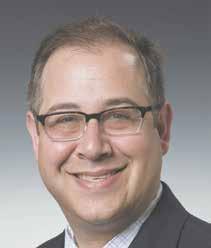
One of the themes we encounter on Rosh Hashanah is the idea that Hashem created the world, and the First of Tishrei is the anniversary of this noteworthy beginning. In the Ashkenazi tradition, even on Shabbat when we don’t blow the shofar, we say the tefilla, HaYom harat olam, ….

Similarly, in the introduction to the Shofarot section of the Musaf Amida, we find this line: Zeh haYom techilat ma’asecha, zikaron leYom Rishon, translated: This is day when you began creating, a remembrance of the First Day, …”. This birthday party has its noisy horns, festive clothes, and signature foods to be sure. However, the creation theme effectively compliments quite closely the theme of Teshuva, of repentance, and starting again.
Rabbi Sacks, in his essay that fronts his Koren Machzor, speaks of cultures of shame and cultures of guilt. In a culture of shame, there is no method for the absolution of sin. Mistakes cling to you and haunt you for life. In cultures of guilt, such as the Torah system of Judaism, we have a means of reviewing the past, processing what we have done, resolving to do even better in the future, and then entering the next phase without the previous phase weighing down the prayerful penitent. There is a healthy taking stock of the past year’s decisions, and the individual moves forward, reborn with something resembling the clean slate of a fresh new world.
The truth is that most human affairs are messy, and we don’t clean up quite so neatly. The opening parshiyot of Sefer Bereisheet which we will read right after Chagei Tishrei, right after Simchat Torah, help us understand the transition with more depth. Hashem first created the world. During Noach’s time he destroys what was in the past and he RECREATES the world, but not from scratch entirely. Hashem takes a capsule from the imperfect past and brings it forward to the next phase of the world, a phase in which he hopes humanity will set their affairs in a much better fashion. The past is literally destroyed, but essential elements of what was inform the upcoming, and improved, future.
At AJA, we aim to bring forward the essential elements of the seventy years of our predecessor schools’ past, and to reaffirm the goals and values that AJA itself has represented coming up now on one decade of service to Jewish Atlanta. Wishing everyone a healthy, productive, happy, and sweet New Year. May Hashem grant us the good wishes of our heart.
Ketiva VaChatima Tova, a Shana Tova U’Metuka!
Rabbi Avi Levitt is Head of School for Atlanta Jewish Academy.
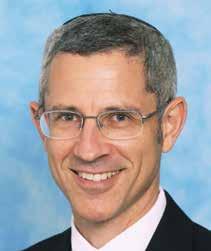
W hen you take car e of you r hea ri ng hea l th, you tak e
car e of you r q ua li ty of li fe an d ove ra ll hea l th .
Atlanta Hearing Associates is dedicated to our mission to make each patient feel like they are a part of our family.

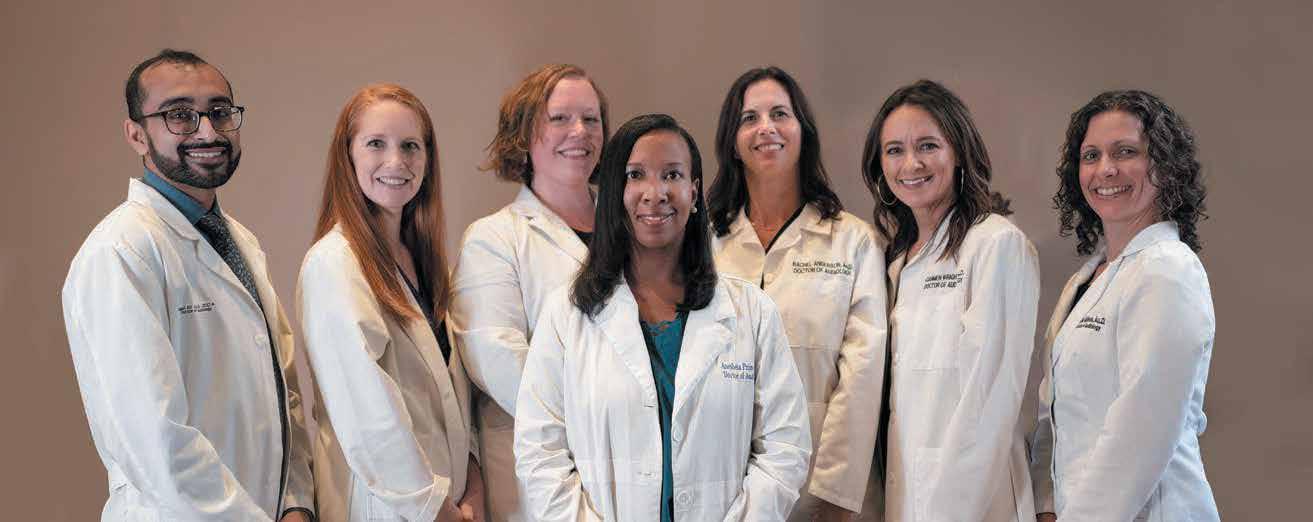
Atlanta Hearing Associates is a large audiology practice that encompasses 5 different locations throughout Georgia. Our offices provide comprehensive hearing tests, tinnitus assessments, ear cleaning, and hearing devices for all ages.


Every doctor you will meet is focused on your needs as a patient and works with every manufacturer to provide a personalized fitting. Each location
utilizes state of the art technology and family-oriented care to help guide our patients to the best hearing devices and information on hearing healthcare.
We also partner with different agencies to provide audiological care to veterans, ATF officers, reservists, police departments, Cochlear implants recipients, and community wellness groups.
We accept all major insurances for patients who have a hearing healthcare benefit that they are eligible to use.
Our offices are located in Atlanta, Decatur, Dunwoody, Lake Oconee, Sandy Springs, and Milledgevile.
Our offices are located in Decatur, Dunwoody, Lake Oconee, Sandy Springs, and Milledgevile.
Dunwoody • 1713 Mount Vernon Rd, Suite 4, Dunwoody, Ga. 30338 • (770) 394-9499
Decatur • 1991 North Williamsburg Drive, Suite A100, Decatur, Ga. 30033 • (404) 500-1026
Decatur • 1991 North Williamsburg Drive, Suite A100, Decatur, Ga. 30033 • (404) 500-1026
Dunwoody • 1713 Mount Vernon Rd, Suite 4, Dunwoody, Ga. 30338 • (770) 394-9499
Sandy Springs • 5555 Peachtree Dunwoody, Ste 125, Atlanta, Ga. 30342 • (770) 394-9499

Lake Oconee • 1051 Parkside Commons, Suite 103, Greensboro, Ga. 30642 • (706) 454-0578
Sandy Springs • 5555 Peachtree Dunwoody, Ste 125, Atlanta, Ga. 30342
Milledgeville • 111 Fieldstone Drive, Suite 106, Milledgeville, Ga. 31061
• (770) 394-9499
Milledgeville • 111 Fieldstone Drive, Suite 106, Milledgeville, Ga. 31061 • (478) 452-0578
• (478) 452-0578
Lake Oconee • 1051 Parkside Commons, Suite 103, Greensboro, Ga. 30642 • (706) 454-0578
For this New Year, we all have an opportunity to see ourselves for the better, to make a new beginning, to improve our strengths and talents. The Baal Shem Tov said, “The world is but a mirror. Inasmuch as we are unlikely to recognize our own character defects, G-d allows us to see them in others. When we see faults in others, we should be aware that it is our own reflection that we see, and that these defects are really our own.”
The way a person sees himself is how he believes others see him. Seeing what you do as a success can confirm how important you are to your world, and to the people around you. Just remember, even the little things in your life can be viewed as successes, and as reinforcement that you should believe in yourself and you have something special to contribute to this world. Many years ago when my daughter was in college I wrote her to the following:
• You might not reach your goals. Give it the best you have got anyway.
• You may love someone and get hurt. Love them anyway.
• You may build and build and have it destroyed in an instant. Build anyway.
• You may feel unfulfilled and not know how to change that. Keep trying.
• You may care so very much and not see the caring in return. Keep caring. May you have the courage to do all of the things you want to do this year. Make it your best year ever.
This past week the Old City saw a MAJOR change. I’m not talking about riots, prayer battles, or a new hummus place; rather, the holiest site, in the holiest city in the world, just underwent a dramatic cleaning. This is no ordinary cleaning, rather; they swept and picked up thousands, upon thousands of letters to God. These letters were pulled and swept away from the Western Wall (the Kotel) because Rosh Hashanah is just around the corner.
The prayers are cleared twice a year, once before Rosh Hashanah and once before Passover. Thousands of slips of paper are then buried at Mount of Olives. New notes and prayers will soon fill the momentarily empty walls of the Kotel.
During this time of year, we too should take a moment to do a sweep of sorts, just as the Kotel has undergone its sweep. We need to clear away things that were on our minds this past year, so as to clean out some space for the coming year. May we ask God new questions, and may we find God in new ways. Let these final moments leading up to Rosh Hashanah and into the Days of Awe be days of spiritual and mental cleansing, and may we be blessed to enter this new year reaching for something higher.
Rabbi Rachael is a rabbi at Temple Emanu-El of Sandy Springs.
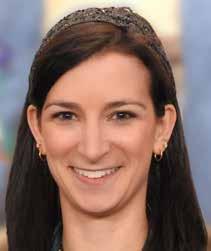
As we commune with each other this Rosh Hashanah, and as we eat our Challah dipped in honey and our sweet apple cakes, let us carry the fragrant sweetness of Rosh Hashanah throughout our communities so that they will be transformed into more hospitable, wholesome, friendly, non-judgmental places. Happy Rosh Hashanah 2023!!
Tiffany Parks is a contributor to the Atlanta Jewish Times.
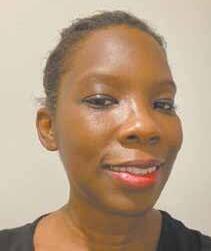
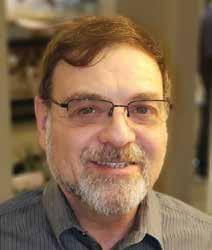
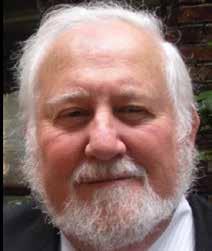
Shana Tova to the greater Atlanta Jewish Community. I take great pride in being given the opportunity to uplift the community with my words of encouragement and “wisdom” as we wrap up 5783 and plunge head first into 5784. My mom who would have been 100 years old in 5783 would be thrilled to know that I am one of the select few to have been given this honor. Mom was the writer in the family, not me. I was the kid that almost failed English because when it came to composition time in class, everyone else was busily writing their life stories and I was staring at the blank page with nothing to say. Those that know me now, in many cases, long for those days as I have been known at times to say way too much. So how does that play given this opportunity? It doesn’t really, l but I wanted to give a shout out to mom. Well here goes; life is filled with opportunities galore. The question is twofold; “How do you recognize an opportunity and how do you take advantage of the right ones?” No matter what the oddsmakers say, it is always 50/50. Right/wrong, good/bad, profitable or loser. You won’t know until you try. Fortunately for us, our community is made is made up of risk takers that have seized opportunities, tried and failed and then tried and succeeded. Their hard work has provided us with a wealth of role models and lots of lessons on what to do and what not to do. This has afforded us an amazing environment to launch from and to set and hopefully achieve our goals, be it in family, faith, and/or business.
One of the previous tag lines for the U.S. Marines was “Be All You Can Be”. Simple, straightforward and a bit naïve, but actually, pretty real. In other words, take advantage of the right opportunities, put maximum effort into them, sprinkle in some good luck and you will achieve your goals. They may not be a 100% match for your original vision, but close can still be pretty awesome. By the time you read this we will be finished with 5783 and have a pretty solid idea of what didn’t work as well as we had hoped this past year. Now we need to pay attention to those life lessons and use them to solidify our personal foundations and build upon them for a happier, healthier and more successful 5784. Shana huledet sameach Ima.




As we stand at the precipice of 5784, a year brimming with promise and opportunity, I’m reminded of the boundless potential residing within each of us. It’s a time to reach for the stars, to be the best versions of ourselves, and to realize the dreams we hold close to our hearts. In our tight-knit community, there are no limits to what we can achieve, especially when we join hands and work together.
Let’s embark on this new year with a fervent drive to propel our community campaigns to new heights. Let’s dream boldly of a world-class Jewish cultural center in the heart of Midtown, a vibrant hub that celebrates our rich heritage and fosters unity. May we send more children than ever to Jewish summer camps and day schools, nurturing the future of our faith. And let’s recognize our role in addressing the mental health crisis, extending compassion and support to those who need it most.
Our unwavering love for Israel remains a steadfast commitment. As Israel grapples with its own set of challenges, we stand by its side, demonstrating our unbreakable bond. Through unity and determination, we can navigate the path to a brighter future.
In the face of anti-Semitism, let us stand together as an unyielding force, unwavering in our resolve. We are a community that refuses to tolerate hate in any form. By uniting against prejudice and bigotry, we send a resounding message that love, acceptance, and understanding will always prevail.
Now is the perfect time for personal reflection and growth. What do we aspire to be more of? What do we aim to shed from our lives? How can we nurture our spirituality and contribute to a better world, starting within our own families and community? These questions guide us on a journey of self-improvement, forgiveness, and growth.
As we step into 5784, let our unity shine as brightly as the stars in the night sky. Together, we illuminate the path forward, creating a future filled with hope, love, and boundless possibilities.
May this Rosh Hashanah be a time of renewal, self-discovery, and unshakeable unity. Here’s to a year of infinite promise and the realization of our most cherished dreams.
As I try to hear the Shofar’s piercing sound on many days during Elul, the month preceding the first day of Rosh Hashanah, it’s supposedly wakeup call affects me more this year than ever before. 5783 overflowed with health challenges for both me and my husband, where, from a Piedmont hospital bed, I fought hard to overcome my first of three Cliff bouts (Atlanta- a NJ rehab and NYC). Bernie (86) and I (82) agreed to son Steven and daughter Ellen, of NY, along with the blessing of Atlanta daughters Carrie and Mollie, to live our final life chapter in NYC. A scheduled moving van November 3, 2022, shuttering up my Decatur studio, breaking up my treasured Judaic and art book collections, purging saved files, and photos, donating art in addition to declining health, we knew a change could no longer wait. Giving up our home base of Atlanta in fall of 2022, I realized how much I appreciated managing Metro Atlanta ‘s Jewish and arts community. In my 70s, I had begun a new career-writing for the AJT, mentored by Roni Robbins, Associate Editor, and encouraged by Kaylene Ladinsky, Executive Editor and Managing Publisher. I gained confidence to self-edit my assigned articles. To other AJT staff and writers, rabbis, community members whom I interviewed over 3 plus years - thank you.
I am so grateful today to be healthy once again, engaged in a new life in NYC, living two blocks from our son, and less than an hour from our daughter. I forgot how many families and friends surrounded me in metro NY and NJ and how many dear friends visit NYC for short trips where we see them again. Bernie, my loving husband of 61 years, has encouraged me to continue creating art and to write, even if my NYC studio was a small space carved out by our large bedroom window. At this year’s Neilah service when I hear the long blast Gondola Shofar sound, I pray for strength to deal with whatever comes my way. Recently, I started taking a few moments to look at the morning sunrise or evening stars to thank G-d for blessing me and our family another day - savoring those moments of quiet reflection and gratitude. May G-d bless you all with a good 5784.
Flora Rosefsky, visual artist and former AJT writer, now lives in NYC.
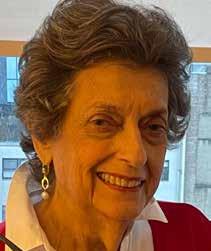
I just returned from a trip of a lifetime to Israel. My first trip was with BBYO when I was 16. The second was with Federation when I was 36. With each of these three trips, I have seen an Israel that is everchanging. The Israel of today is vastly different from the one I experienced at 16 or even at 36. The Israel that I experienced just a few weeks ago is more diverse, more dynamic, and more challenged. However, what I felt most strongly was its constancy; that is, the State of Israel both physically and symbolically represents the covenant between G-d and the Jewish people.
One of the highlights of my trip was the new Anu Museum which is located on the campus of Tel Aviv University. The Hebrew word, “anu”, means “we”. The choice of that word for the name of the museum represents its focus, which is to recognize both the unity and diversity of the Jewish people. Among the key takeaways of this trip was the Jewish people’s unity in diversity. In Nitzavim, last week’s Torah portion, Moses summons all of the people of Israel to stand together and bear witness, from the heads of the tribes to the lowly water carriers to even the strangers at the gate. Now, 5,783 years later, this is still a description of the Jewish people, whether in Israel or in the diaspora. For those of us who were born after the creation of the State of Israel in 1948, it is hard to believe that the existence of the Jewish state was not a foregone conclusion. Yet almost 2,000 years went by after the destruction of the Second Temple and the forced exile of the Jewish people into the diaspora.
The birth of the modern Jewish State was difficult and challenged. Many doubted its survival. Its existence was tenuous. Yet, like our ancestors who stood before Moses, Israel stands today and the Jewish people remain standing. In our own diverse Atlanta Jewish community, we have Jews of all proclivities. Yet despite our differences we stand united under the common umbrella of our common Jewish identity and the covenant that our ancestors embraced at Sinai. This is what I felt as I stood in the holy land just a few weeks ago.
Ray Alyssa Rothman is a commercial real estate veteran who helps raise equity for investments. Her side business is Kibbitz & Konnect, a premier in-person social network for Atlanta’s Jewish singles community (www.kibbitzkonnect.org).
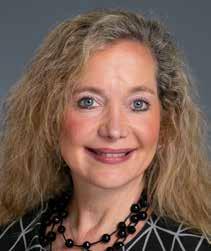
Shalom! For 24 years we have hosted Rosh Hashana in our home. Now we have three wonderful nieces, who have for the past few years taken the reins and the honor of hosting. What a blessing to sit at our 3 nieces’ homes, on the first night and the second night, and break fast and see how beautifully they all set up their tables and serve the meal, while we dip apples in honey and evoke a sweet and healthy year ahead.
Personally, I would like to streamline and declutter my mental and emotional self. Let go of the past and make room for new things. I love my synagogue and the wonderful Rabbis at B’nai Torah. I don’t go to shul on a regular basis, but we do flock and congregate with our community on all the High Holidays. We feel part of something much larger than ourselves, we go to Shul because it is about a new year, and a new beginning. We are so blessed to have family and friends, and a wonderful community! Rosh Hashanah to Yom Kippur is a gift to us – a chance to step back and look at our lives. How we can rediscover the gifts we know are embedded in all of us. to. We have a choice about how we want to act and how we want to think and how we want to live our lives. Just remember we have to look inside ourselves, to find the star that shines so brightly.
From Brian and I, to all of you, may this year be filled with blessings, joy, celebrations, health and peace. L ’Shanah Tovah!


Gayle Rubenstein is the owner of Balloons Over Atlanta and Event Visions Wife, Mom, Grandma.
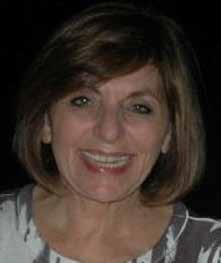
TE M PLE KE HILLAT CHAIM 1145 Green Street Roswell, Georgia 30075

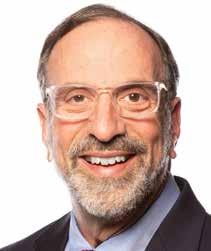
Rabbi Arnold Goodman, of blessed memory, was not only my immediate predecessor as Senior Rabbi of Ahavath Achim Synagogue. He was my rabbi. He was an important mentor to me. I have written at length about the relationship Rabbi Goodman and I shared from the time I was ten years old. One of the most valuable lessons Rabbi Goodman shared with me occurred in one of our last conversations. I had already begun the process of planning for my retirement and senior rabbinic succession in our congregation. Rabbi Goodman and I talked about his retirement in Israel and what my retirement might reflect as I began it. I’ll never forget what Rabbi Goodman told me he had learned about retirement many years earlier.
“Retirement is not a time to relax,” Rabbi Goodman said. “It is a time to redirect one’s energies. At the time, I’m not certain I understood what Rabbi Goodman was saying. Now, several years later, I have begun to understand. Today, I find myself quite busy. While I do some things just for fun, most of what I do is “rabbinic work.” The rabbinic work I now do I thoroughly enjoy and gain soulful satisfaction from it. I serve a congregation in south Georgia. The people are wonderful and so appreciative. I teach in our senior adult program at AA. Under the aegis of JF&CS, I do chaplaincy work in several local settings.
These are the parts of the rabbinate I have always loved, and I continue to enjoy them, now largely as a volunteer. I now recognize the wisdom of what Rabbi Goodman shared with me. I really have redirected my energies in the very best ways! How about you? If you are of retirement age, it’s easy to apply Rabbi Goodman’s lesson, to your own circumstances. But these High Holidays represent a time for all of us to reflect on our lives irrespective of our age and stage in life. Set aside the word “retirement.”
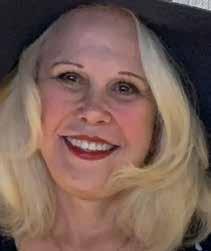

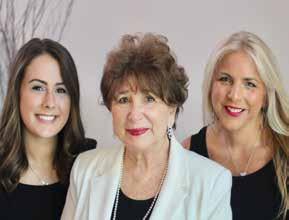
As you reflect on your life in the days ahead, is it perhaps time to redirect your energies? Is it time to see the world differently? Is it time to engage with that world to order to better it? As we enter the new year of 5784, I pray that all of us will redirect our energies for the betterment of ourselves, our loved ones, and our community. Susan joins me in wishing you and your loved ones a year of good health and well – being.
There is nothing like a new opportunity, a fresh start, or a do-over. A chance to change it up, try it differently and do it better. It’s something we contemplate this time of year for those we hold dear, especially our children. Our success instilling these principals in our children is dependent upon our teaching and modeling, and is reinforced by societal expectations. New parents dream of the many ways their child will excel - especially scholastically but also athletically, musically, and socially. These intellectual, physical, and financial traits are societal norms that benefit the individual. We also want our child to grow up well liked and well respected, by peers and adults alike. Judaism tells us “there are many paths to heaven,” and the simplest tenant of most religions is to teach our children to be good people. Civility and kindness are individual traits that benefit the society. We can live with modest means, modest skills and modest talents. We may wish more for our children, but we can live with less.
More importantly, communities and societies can live and even thrive with modest levels of achievement. The same is not true about civility and kindness. The lack of these will eventually destroy a community. As a physician, my bias was that medical care is of primary importance for a society. Over time, I came to believe that the passing on of real (and honest) knowledge overrides even medical care. As I’ve aged, I have come to believe that both of these take a back seat to civility and kindness, which are necessary and even mandatory for the continuation of a society. All I need do is turn on the news to feel overwhelmed by the progression and enormity of the civility that we lack, both globally and within our country and even locally. I am reminded of the parable about the child who comes across thousands of starfish stranded on the beach. She stoops and tosses many back into the water.
Asked why she bothers, “It doesn’t matter, you can’t save them all?” She responds, “It matters to the ones I save.” This year as we wish each other a sweet and healthy new year, with the hope 5784 will give us many occasions to schepp nachas, let us make an extra effort and model for our children, the importance of picking up the starfish that are within each of our individual reaches. “How do we change the world? One random act of kindness at a time.” Morgan Freeman; “Do your little bit of good where you are; it’s those little bits of good put together that overwhelm the world.” Archbishop Desmond Tutu; “No act of kindness, no matter how small, is ever wasted. Aesop; “In a world where you can be anything, be kind.” questionably attributed to Jennifer Dukes Lee; L’shana tovah tikateivu v’teichateimu.
On Rosh Hashanah, it is written. On Yom Kippur, it is sealed.

May it be written that you have a new year that brings fulfillment, happiness, peace, and good health — all of life’s sweetest things.
Happy New Year from your friends at Jewish Federation of Greater Atlanta


5784 could not come soon enough. Why am I rushing? I am praying this is the year the world calms down, finds a peace they were unable to find in the last few years. For myself, I am looking for a further fulfillment and an acknowledgement that I am enough. I hope to continue filling my ‘enough’ basket with a growth spurt intellectually and emotionally. I pray my good fortune to be blessed with a family of kind, loving, smart and Jewishly committed humans, who will continue to envelope me in the warmth and safety of the essence of who they are.
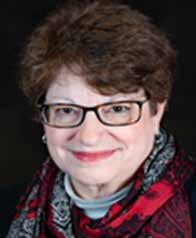
As we reflect on the year that is ending, we are obligated to be honest with ourselves, especially in diverse relationships and our oftenfractured communities. Have we led with kindness? Have we responded with compassion? Have we expected the best from ourselves as well as from others? Have we been humble, gracious, and forgiving? Have we used these qualities generously or sparingly, with strangers as well as with friends? Have we disagreed without losing respect and love for the other person?
These qualities are more in need than ever, and each of us can be an instrument of healing. Every journey, every task, begins with a first step, however small and tentative. But every step matters; each is a small blessing. As our tradition teaches, one mitzvah leads to another. Each and every one of us whoever and whatever we are - can be a star in the heavenly firmament. L’shanah tovah!
What if each of us took the challenge to become a star in 5784? What would that mean?
I looked up the Oxford dictionary definition of a celestial kind of star. It is “a fixed luminous point in the night sky, which is a large, remote incandescent body like the sun.”
For me, these words conjure an image of an inflexible, stationery bright light that others may see but that is far away, distant, and removed from the main center of the population. That doesn’t sound like the kind of star I’d want to be.
Another definition of star references the celebrity kind. This is a “person who performs brilliantly or prominently in a particular endeavor or event.”
Each of these seems to require a specialness, unique qualities that separate and elevate them above the others. I think it’s time for each of us to shine brightly, with our own distinctive skills and talents, but all unified, toward a greater good.
Well, guess what I discovered? That the beautiful, glowing stars in the sky are not each made of isolated material and, like people, are all made from the same stuff.
According to Universe Today, Space and Astronomy News, all-stars begin from clouds of cold, molecular hydrogen that gravitationally collapse. The cloud collapses and fragments into many pieces that become individual stars. Then, the material collects into a ball that continues to collapse under its own gravity until it can ignite nuclear fusion at its core. Nuclear fusion is a process by which two light atomic nuclei combine to form a single heavier one while releasing massive amounts of energy. There is a pressure pushing back against the gravitational collapse of the star, and that pressure is light.
We cannot collapse further into oblivion. So, here’s our task. We must first recognize that we all arrived here filled with Hashem’s light. The darkness tries to extinguish that light but when we combine forces, release negativity; and acknowledge unity and sameness instead of opposition and division, we create the power to ignite the world with G-d’s glow.
Please join me in shining in 5784 to make our world a place of peace and radiant joy.
May it be a “bright” year.
Dr. Terry Segal is a licensed psychotherapist, Ph.D. in Energy Medicine, author, and mixed-media artist.

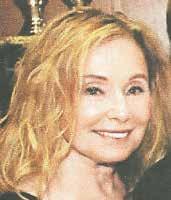
Many of you have just dropped off your child off on a college campus here in Georgia, or somewhere else around the country. You may also have thought about watching them grow up, with both the incredible blessings as well as the challenges, as you gave them a hug before heading back home. As we grapple with the mixed blessings of this moment, ultimately, we hope that they will be confident in their abilities, surround themselves with good friends, and do well in school. Discovering who you are is one of the most important gifts that a college education can give to a student. And Hillel is there to help them along this journey, that can be lonely and challenging at times. Across the State of Georgia, the Hillels of Georgia team is working hard to make sure every student makes a connection and never feels alone. This is sacred work, and their main goal is to see the spark within each student and lift them up achieve their potential.
Recently, I was with our Kennesaw State University students at a Taste to the New Year event. I shared with them one of my favorite Rosh Hashanah stories. You might know it. It is about a young apple tree who was surrounded by big oak trees. One night, the apple tree looked up and saw a beautiful night sky filled with stars. The apple tree prayed to God and asked to have leaves like the oak trees that looked like the stars in the sky. God replied that the fragrant smell of the apple tree has delighted so many people and brought smiles to their faces. The apple tree once again prayed for stars on her branches. Soon, people enjoyed the delicious taste of the apples that the tree produced. And, once again, the tree prayed for stars on her branches. Just then, an apple fell from the tree and split open on the ground. Inside, the seeds formed a star. God said to the tree that your branches might not have stars, but you are a star on the inside and you have much to share with the world.
For our students, and ultimately for all of us, we indeed have stars within. May this New Year of 5784 allow us to bring out the stars in those we encounter and at the same time, may we discover the stars that have always been within us. L’Shana Tova u’metukah, a good and sweet New Year to all.
Rabbi Larry Sernovitz is the CEO, Hillels of Georgia.
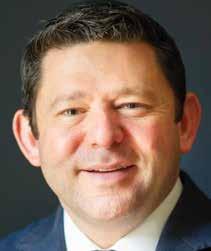
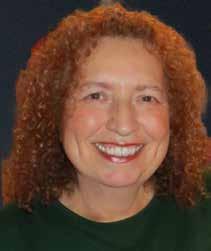
I believe that each of us writes our own on-going true story. Actually, the book writes itself. It’s not a journal of random thoughts and select events or a biography telling the story the writer prepares for others to read. This book can be personally useful, though, and the writer is able to learn a lot by referring to past chapters from time to time. Nothing is hidden, and the book’s span covers the writer’s entire life. We can’t erase, undo, delete, cross out, or edit what’s already written, but we are free to start a new chapter at any time. Of course, Rosh Hashanah is an obvious time to start a new chapter. Our story can’t help but be honest because it records everything. Will new chapters record any changes in intention and action, or do these chapters seem repetitious, one chapter running into the undifferentiated next one?
Judaism provides a user’s manual on how to produce a great story: Live in partnership with G-d and live honorably with people. We all have access to our own story; however, if the book were somehow printed exactly as we’ve written it, what truths about us would it reveal? Would we want our children and grandchildren to read our book? G-d has already read it.
The 10 days between Rosh Hashanah and Yom Kippur are a perfect time to slow down and do a serious review of last year’s chapters. Hopefully, the book we’ve created so far will merit the granting by G-d of another year in which to continue our story. May we all be written in the Book of Life!
Shanah Tova from our family to yours! We wish you a fulfilling and sweet New Year.

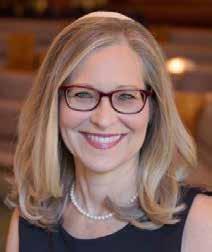
As we approach this new year, I, along with Cantor Kassel, Rabbi Donald Tam and the leadership of Temple Beth Tikvah wish to extend our warmest and most heartfelt blessings to our entire Atlanta community. May this New Year be a time of spiritual awakening and growth, a time to draw closer to our Creator and to one another. Let us use this auspicious time to mend any divisions within our community, to strengthen the bonds of friendship and unity, and to ensure that our collective voice is a beacon of hope and righteousness in these challenging times.
Let us approach this new year with a renewed commitment to kindness, compassion, understanding and cooperation. Let us be ambassadors of tolerance and empathy, spreading love and goodwill to all we encounter. May the shofar’s sound awaken our souls and remind us of our responsibility to repair the world, to make it a better place for future generations.
Together, as a united Atlanta Jewish community, we can be a source of blessing and inspiration for all. L’shanah tovah u’metukah – May the Almighty shower you and your loved ones with abundant blessings, and may the Atlanta Jewish community continue to shine as a model of unity and goodness for many long years to come.

Judaism doesn’t have the whole confessto-a-spiritual-figure thing. But for whatever reason, in my experience, that hasn’t stopped people from trying. On more than one occasion I’ve been on the receiving end of a Jewish confessional. Someone comes over to me—after a class, after a service— and tells me just how “bad” a Jew they are. Of course, I tell them that they’re wrong about themselves. But mostly, they don’t believe me. The look in their eyes is part wistful, part mischievous. “If you only knew…”, they trail off. French philosopher René Descartes famously wrote, “Cogito, ergo sum.” Or, as it’s known in English, “I think, therefore I am.” While Descartes had existential intentions, we might understand these words in a more self-referential way, as a commentary on the power of self-fulfilling prophecies.
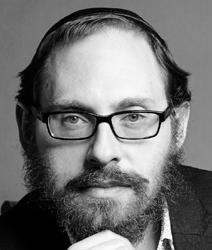
How we see ourselves matters. Self-perception creates reality. As anyone with a little life experience can attest, the way “I think” about myself goes a long way in shaping the way that “I am.” If we see ourselves as “bad Jews,” we’ve stacked the deck against ourselves. By choosing to define ourselves in negative terms, we’ve set the bar—and our expectations of self—low. No growth mindset. No striving toward something greater. Belief in personal mediocrity is the kryptonite of progress. As the comedian Steven Wright once put it: “They told me in school that ‘practice makes perfect.’ Then they told me, ‘Nobody’s perfect.’ So I stopped practicing.”
The Chassidic masters employ the parable of the “King in the Field” to describe the spiritual opportunity we enjoy in the month of Elul, which precedes the High Holy Days. In short, the parable likens our spiritual opportunity this time of year to the people’s opportunity to meet the king as he passes through the countryside on the way to his palace. As the king greets the people, the parable concludes, he receives everyone warmly, with a radiant smile. The message is not simply about access. It’s about love and acceptance. Knowing that the king will receive us with love and warmth and bathe us in the glow of his smile offers us the encouragement to step up and greet the king. No matter what we have or haven’t done, we are loved and accepted. Unconditionally.
This is the message of Elul and the High Holidays. G-d is ready to embrace us, to share unconditional love and acceptance. Knowing this radically shifts our self-perception. We are not “bad Jews.” We are worthy of G-d’s love. “I think, therefore I am.” Clutching onto a negative self-image breeds negativity. We won’t be motivated to grow spiritually if we believe that mediocrity is our destiny. But when we recognize our true value, as seen through the reflection in G-d’s eyes, we are emboldened to lean into that vision. Because if there’s one thing this holiday season teaches us, it’s that there’s no such thing as a bad Jew. Only a loved one.
For every pursuit, SCAD offers students a wonderland of resources designed to surpass top studios, startups, and firms.
SCAD.EDU

This is dedicated to all the women who are on the brink of middle age. All who are looking at their wrinkles in a magnifying mirror. All who are playing around with Botox and filler, trying to hold on to a bit more youth. All who are trying to lose the stubborn ten pounds. All who are always a bit hungry. All who have asked their gynecologist about hormone replacement. All who can still make babies, but really don’t want to. All who are raising their teenage babies are already devastated about the upcoming empty nest. All who are wondering - is this the half-way point? All who are concerned - did I do enough?
Did I achieve enough? Am I doing parenting, marriage, my career right?
This is for all the women whose parents are getting older and whose kids are getting older. This is for all the women whose teenagers are driving now. This is for all of us who are hanging on to friendships for dear life, because we now know how crucial friendships really are, and always have been. This is for all the women who are cherishing their marriages, because after all the years and the battle scars, we managed to stay together, and that’s saying a lot.
This is for all the women who have neck sagging and still get acne. This is for all the women who have grey hair and chin hair. This is for all the women who finally broke down and got glasses. And for all of us who still refuse to. This is for all the women who’ve considered tummy tucks, who have done them, and who don’t need them because they look damn fabulous! This is for all the women who still have a living grandparent. And for all of those who do not.
Happy New Year, girls! I see you. I feel you. The best is yet to come!
Alla Umanskiy is a writer, mother, and wife, living, working, and raising a family in the Atlanta area.
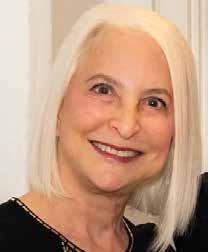
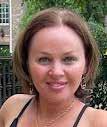
This week we will inaugurate the Jewish New Year of 5784. The landscape will move from its summer greenery to the hypnotic elegance of autumn. This is nature’s nod that it’s time to change seasons and we will witness the foliage turn from green to a dazzling cornucopia of glorious colors. The radiance of the changing leaves is as stunning as the spiritual wake-up call of Rosh Hashanah. Our thoughts turn to the coming year which we pray will be filled with happiness, health and blessings. Ancient traditions abound and we gather in our synagogues to pray and hear the resonant and eloquent shofar’s first sound of teki’ah, which calls the Jewish people to attention. As the 12th century sage Maimonides wrote, “the shofar is a wake-up call for the soul.” Rosh Hashanah is known as the Day of Judgment. Normally judgment fills one with trepidation, but in the case of judgment from Hashem, who is known as Avinu Malkeinu, judgment is always filled with mercy and loving kindness. Rosh Hashanah’s happiness and sweet prayers echo a sense of rejuvenation and renewal which portend a year full of potential for a sweet and successful year ahead.
May 5784 usher in a flourishing year of enrichment for all of us. May our souls be nourished by our loved ones, our teachers, our rabbis and our dear friends. May our nurturing traditions of gathering for festive Rosh Hashanah meals filled with scrumptious foods that include apples dipped in honey, round delicate challahs and sweet, delicious tzimmes pass from generation to generation. I remember our parents preparing for the holidays; their generosity of spirit enlightened and engaged us.
May our love of Jewish traditions pass from generation to generation – L’dor V’dor. May 5784 herald a year of peace and tranquility for our Jewish brothers and sisters everywhere. Wishing each of you a year of personal fulfillment, joy and good health. May your apples and your life always be dipped in honey. L’Shana Tova Tikatevu!

Renee Werbin is the founder and president of SRI Travel and the co-founder and publisher of Travelgirl Magazine.

Grants up to $10,000 for fertility treatments

Virtual Support Groups and Fertility Buddy Program
Panels, discussions, lectures, and one-on-one trainings
www.jewishfertilityfoundation.org

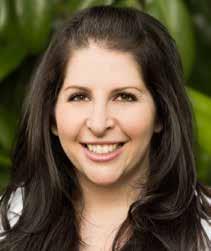
I love the idea of reaching for the stars! I wish for our community to make 5784 the year we want for ourselves. Rosh Hashannah is my fa vorite holiday. Bright, fresh apples, crisp fall leaves, and cooler temperatures. I grew up in New England and the vibrant yellow, red, and orange colors of the trees on our joyful walk from our home to Emanuel synagogue in West Hartford, CT is a permanent asso ciation with this holiday in my mind. That walk always brings out a fresh, hopeful feel ing in my heart. It’s a time to reflect and plan dreams for the upcoming year. I wish for a happy, healthy, and sweet new year to our community here in Atlanta.



The Marcus Jewish Community Center of Atlanta wishes you and your family a happy and healthy new year.
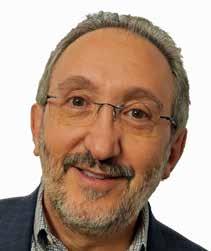
As Rosh Hashanah approaches, we contemplate the big questions like: What is the purpose of our lives? What does G-d expect from us, and have we become the best people that our tradition expects us to be?

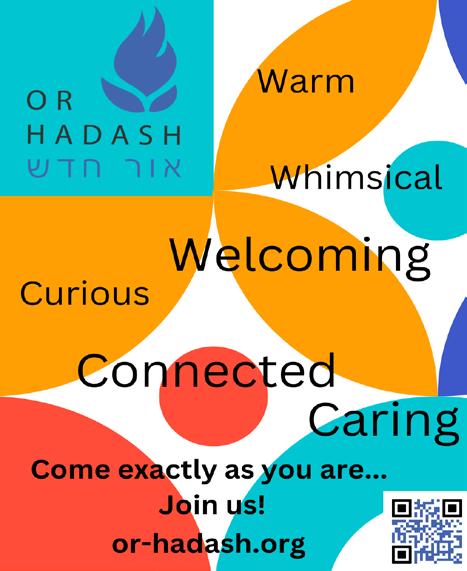

Judaism is not about the physical state of our communal buildings or even our synagogues. It’s about the Jewish life that takes place within those walls.
So, what is Jewish life all about? We are a diverse people, with many different legitimate responses to that question. But at its core, the upcoming High Holidays serve as a reminder for us to renew our connection to the teachings and values of Judaism that have been passed down to us through the ages.

It is a daunting thought, but each one of us represents the final product of all the generations of the Jewish people that have come before us. So, in a very real way, the entire history of the Jewish people resides in each and every one of us. Not in the beauty of our facilities, but in our commitment to keeping our Jewish community a kehilla kedosha, -- strong, vibrant, and sacred.
The High Holidays also underscore our relentless pursuit for self-improvement and the need to grow as human beings. Hopefully, we emerge from the process a bit more refined, a bit more spiritually energized and prepared to live a more meaningful Jewish life in the year ahead.
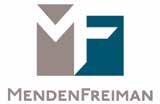
Abraham Joshua Heschel reflected this truth: “The significance of Judaism does not lie in its being conducive to the mere survival but rather in its being a source of spiritual wealth, and source of meaning relevant to all peoples. Survival, mere continuation of being is a condition man has in common with animals. Characteristic of humanity is concern for what to do with survival. To be or not to be is not the question. How to be and how not to be is the question.”
How each of us chooses to live in the coming year will determine how the story of Judaism continues to unfold. We are the writers of that story, and that is an enormous responsibility. We build up the institutions and keep our community strong and buzzing. We are each a thread in the fabric of Jewish life; with our presence adding to the strength and beauty of our community tapestry.
May we all continue to grow ourselves and our communities for many generations to come. L’Shanah
Tovah u’Metukah!Mazel tov to our second annual Rosh Hashanah Art Contest winners! Maya Friedberg, age 11, won first place in the child (under 13) category, and Ada Sapir, age 63 was our first place winner in the adult category. We received many wonderful submissions from applicants as young as four, all the way up to 84 years old. The editor’s choice Top 50 are featured below. Check online to see all submissions.

Parent's Name: Rachel Friedberg
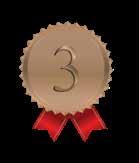
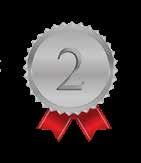

Artist's Age: 11
Title of Artwork: Shalom 5784

Parent's Name: Jade Schoenberg
Artist's Age: 10
Title of Artwork: Protect Us in the New Year
Parent's Name: Jamah Maman
Artist's Age: 12
Title of Artwork: New Year New Me

Artist's Age: 63
Title of Artwork: Rosh Ha Shana blessings

Artist's Age: 55
Title of Artwork: Apples & Etrog

Artist's Age: 75+



Title of Artwork: Opening the door to new year 5784

Parent's Name: Jennifer
Artist's Age: 9
Title of Artwork: Honey in the Sky with Diamonds
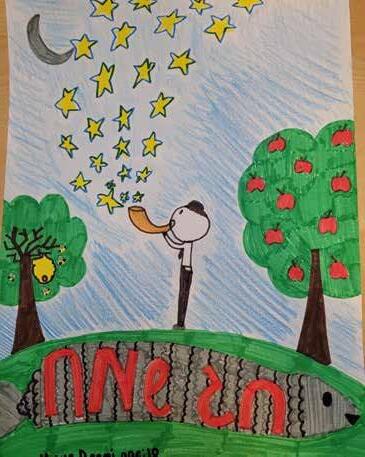
Maya Dagmi
Parent's Name: Rachel Sandler
Artist's Age: 10
Title of Artwork: Shanah tovah!

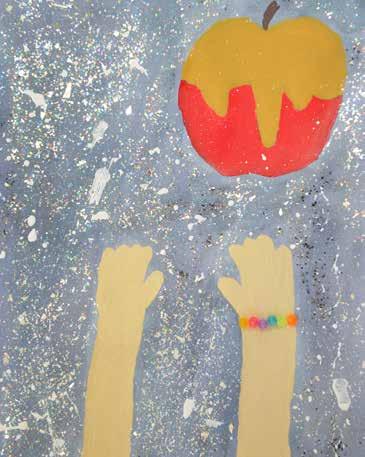
Alex Fischer
Parents' Names: Paul Fischer and Stacy Westerman
Artist's Age: 7
Title of Artwork: Apples
Mattie Katz
Parent's Name: Eliana Katz
Artist's Age: 10
Title of Artwork: The Complete Rosh Hashana

Over 1800 sq ft in The Meridian Buckhead


Top amenities- 24 hr concierge, putting green, squash court, English Garden,gym, library, business center,clubrooms, fire pit, manicured grounds and even a hair salon
Steps away from shops and restaurantssell your car, you won’t need it!
Two bedrooms plus an office
Parents' Names: Kelly & Craig Richman
Artist's Age: 16
Title of Artwork: The New Year: Don't Take It For (Pome)granate!

Congregation Ariel, located in beautiful Dunwoody welcomes Jews of all ages, stages and backgrounds. Join us for daily minyanim, classes with Rabbis and one-on-one learning. Ariel is also partnered with the Atlanta Scholars Kollel, hosting classes, workshops, and study groups. Ariel’s youth groups are full of energy and learning for all ages. The Dunwoody Branch of B’nai Akiva calls Ariel home and brings with them meaningful and exciting programming. Our growing campus includes a modern sanctuary, social hall, an elegant women’s mikvah, Keilim mikvah, and the brand-new Chai Academy Preschool, serving Hebrew and English-speaking children 2-5 years old.





Artist's Age: Senior Title of Artwork: Shanah Tovah ~ to a Sweet and Fruitful New Year
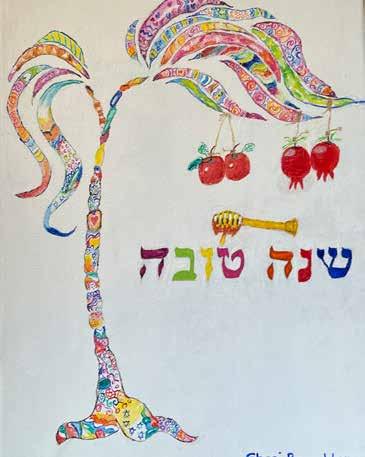
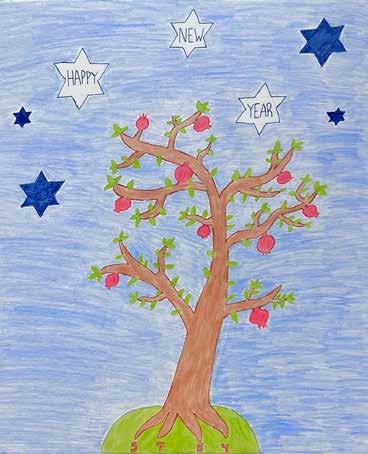
Ori Spielman
Parent's Name: Shivi Spielman
Artist's Age: 5
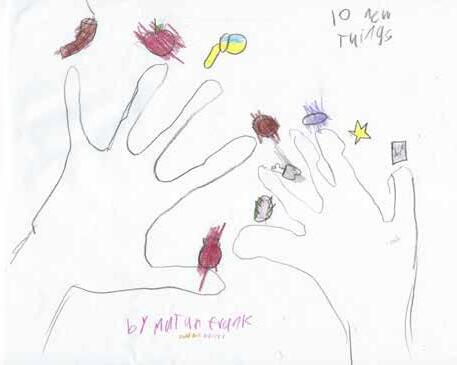

Title of Artwork: Rosh Hashana Garden
Matan Frank
Parents' Name: Elana Frank
Artist's Age: 4
Title of Artwork: 10 New Things
Sharon Weiss
Artist's Age: 74
Title of Artwork: Pomegranates on Silver Tray

Lev Cohen
Parent's Names': Gabby Sirner-Cohen
Artist's Age: 8
Title of Artwork: A Colorful New Year

Parents' Names: Abby Hall
Artist's Age: 11
Title of Artwork: Rosh Hashana Sami Klugman
Parents' Names: Robyn and Jeffrey Klugman
Artist's Age: 8
Title of Artwork: The red curtain: starring Rosh Hashanah
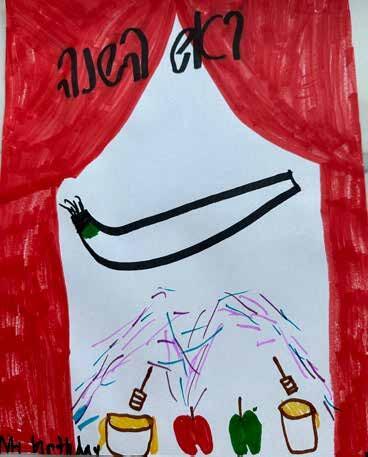
Parents' Names: Elisa & Gavin Ellman
Artist's Age: 6
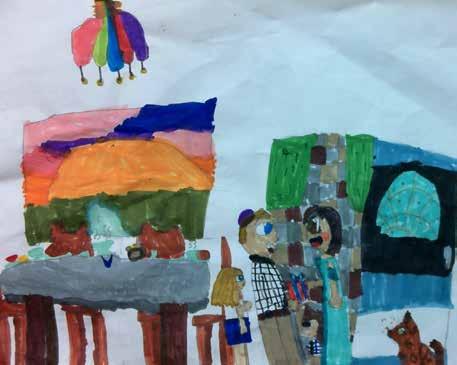
Title of Artwork: Apple & Hunny

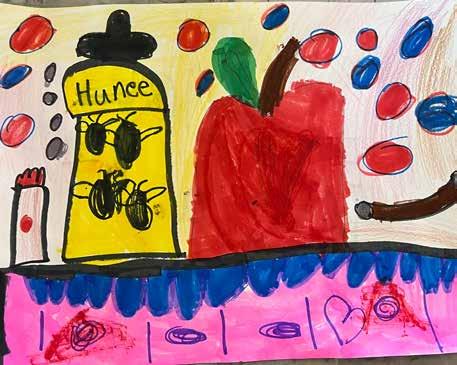
Parents' Names: Miriam Seidman
Artist's Age: 7
Title of Artwork: Reach for the Stars
Ava Peck
Parent's Name: Janine
Artist's Age: 15
Title of Artwork: Apples and Honey
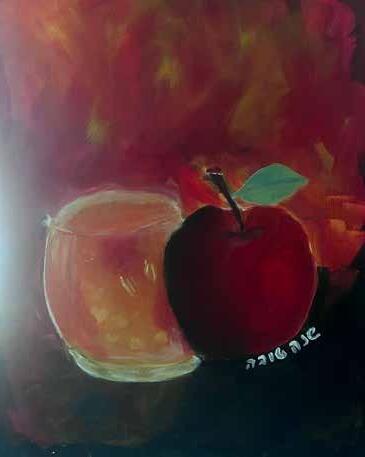
Emet Levine
Parent's Name: Bonnie Levine
Artist's Age: 7
Title of Artwork: Rosh Hashanah Robot Party
Shira Addess
Parent's Name: Laura Addess
Artist's Age: 13
Title of Artwork: Happy Rosh Hashanah

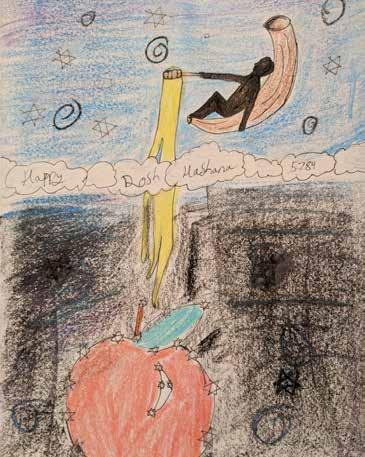

Bella Ebrams
Parent's Names: Tzeryl and Eli Ebrams
Artist's Age: 12
Title of Artwork: ShoFar So Good
Parent's Name: Jennifer Klein

Artist's Age: 8
Title of Artwork: The Star of the Show
Parents' Name: Esther Antopolsky







Artist's Age: 12

Title of Artwork: Apple Reaching for the Stars
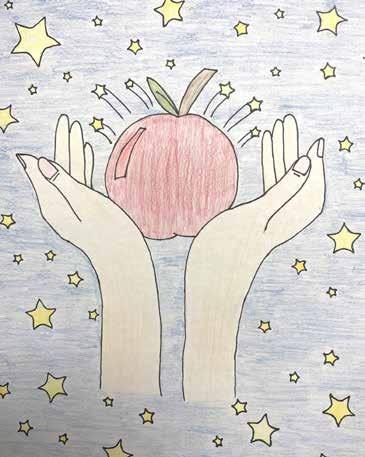
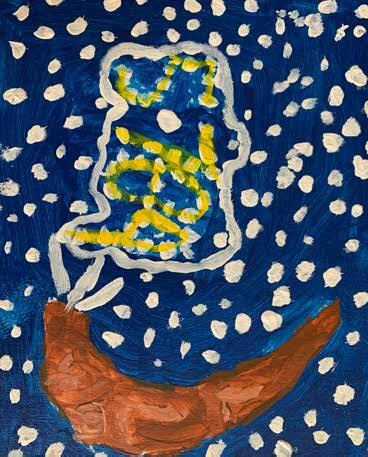
Paula Prager
Artist's Age: 78
Title of Artwork: "Journey Through Elul"

Avigayl Wilker
Parent's Name: Julie Jacobson
Artist's Age: 10
Title of Artwork: The Collage of Rosh Hashana
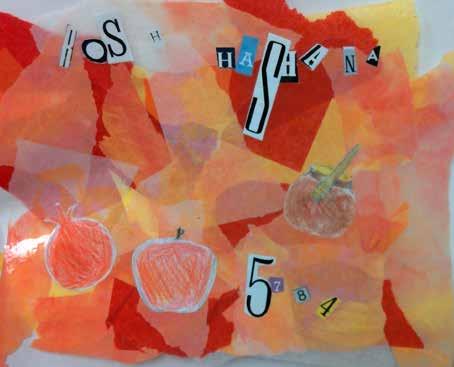
Sophia Varenberg
Parent's Name: Michael Varenberg
Artist's Age: 17
Title of Artwork: Happy Rosh Hashana Bee
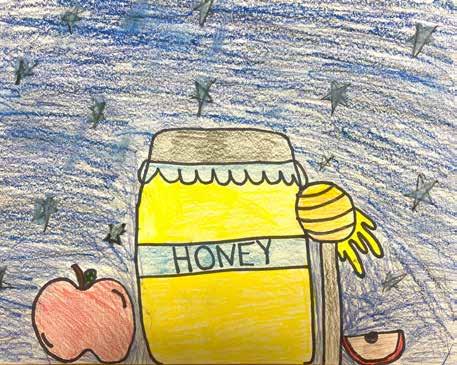

Miki Freidman
Parent's Name: Aliza Friedman
Artist's Age: 11
Title of Artwork: The Foods of Rosh Hashanah


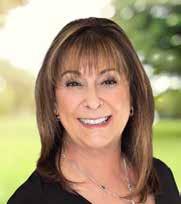
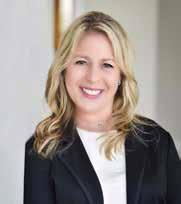
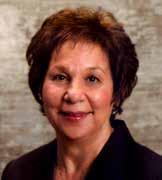
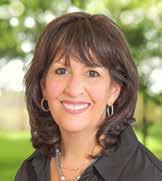
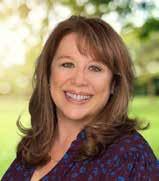
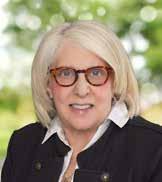
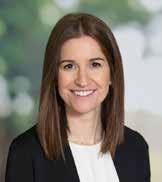
Jeff Mesquita
Artist's Age: 82
Title of Artwork: Star of David for Rosh Hashanah

Ora Bendicoff
Parent's Name: Miryam Bendicoff
Artist's Age: 9
Title of Artwork: Rosh Hashana
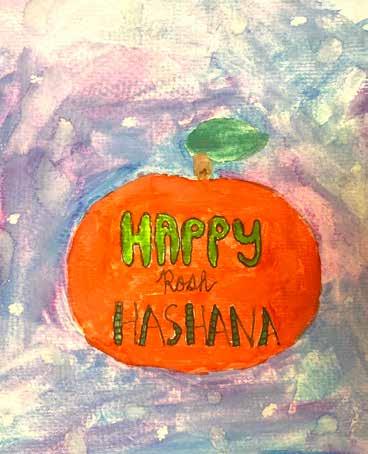

Parent's Name: Shivi Spielman
Artist's Age: 7
Title of Artwork: Apple with honey from the bee
Mussia Gurary
Parent's Name: Liba Gurary
Artist's Age: 13
Title of Artwork: Apple in the Galaxy
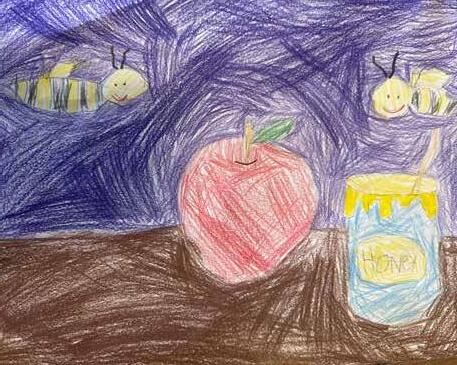
Michael S. Blaiss
Artist's Age: 70
Title of Artwork: Sounds of Shofar


Yonah Guttman
Parent's Name: Joshua Guttman
Artist's Age: 9
Title of Artwork: The Shofar Blast
Shira Ben-Yaacov
Parent's Name: Erez Ben-Yaacov
Artist's Age: 9.5
Title of Artwork: The honey bear

Liam Doyle
Parent's Name: Dana Azulay
Artist's Age: 10
Title of Artwork: Fruits in space
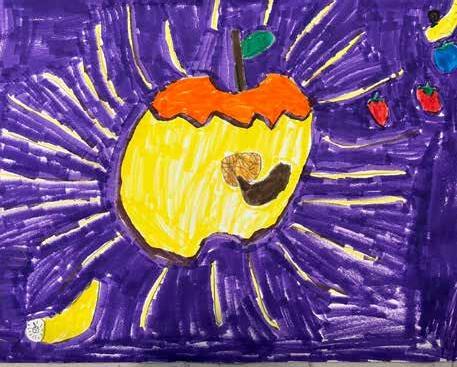
Lizzy Harris
Parent's Name: Renee Harris
Artist's Age: 11
Title of Artwork: Opening Doors to A New Life
Julia Cohen
Parent's Name: Tanya Cohen
Artist's Age: 8
Title of Artwork: Shooting Star Shofar
Leora Ossey
Parent's Name: Sarah Ossey
Artist's Age: 9
Title of Artwork: Rosh Hashanah
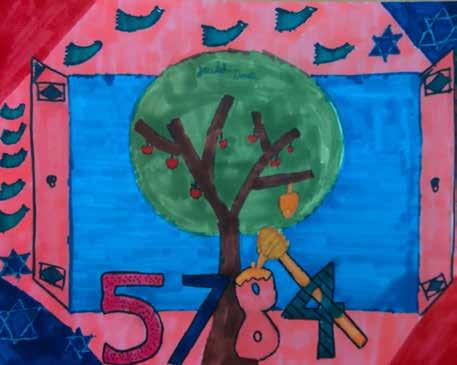
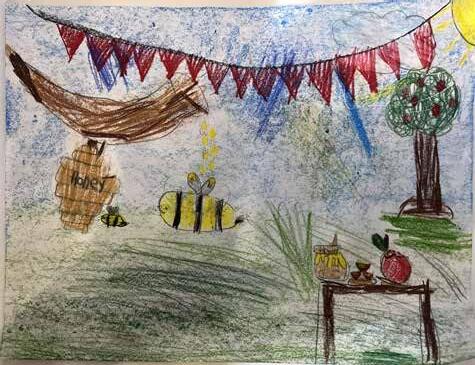
Jillyan Fages
Parent's Name: Susie Fages
Artist's Age: 12
Title of Artwork: Rosh Hashana 5784
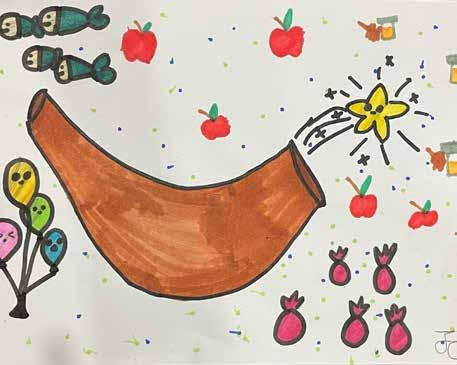
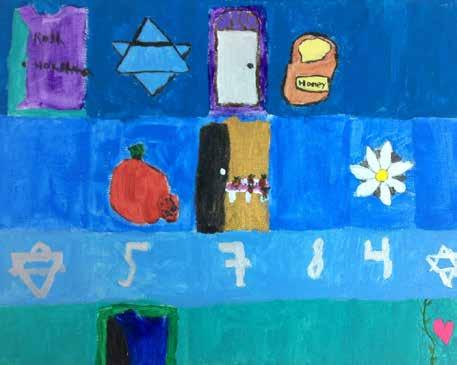
Ahuva Edelson
Parent's Name: Tzivia Edelson
Artist's Age: 11
Title of Artwork: The Light of the Shofar
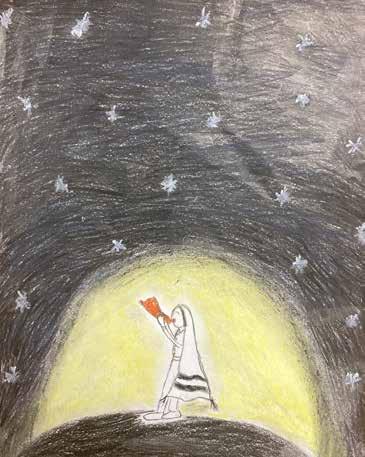
Evvy Gutierrez
Parent's Name: Melissa Scholten-Gutierrez
Artist's Age: 6

Title of Artwork: Rosh Hashana Extreme
Bina Zinn
Parents' Names: Cory Isaacson and Avi Zinn
Artist's Age: 8
Title of Artwork: Colorful Rosh Hashana

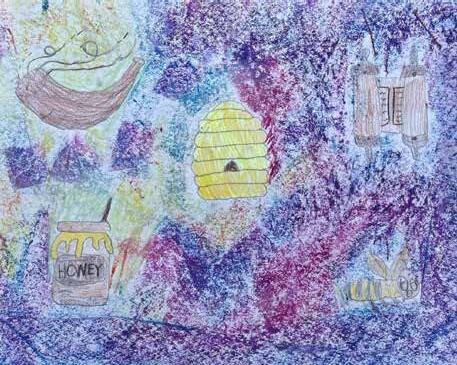
Dylan Levy
Parents' Names: Michelle & Rich Levy
Artist's Age: 7
Title of Artwork: The Appearing Apples
Binah Leiwand
Parent's Name: Shilvi
Artist's Age: 12
Title of Artwork: Thank You World
Ella Trompeter
Parent's Name: Pamela Trompeter
Artist's Age: 11
Title of Artwork: Opening Doors to a New Year
Max Katz
Parent's Name: Eliana Katz
Artist's Age: 8
Title of Artwork: The Max Rosh Hashanah Masterpiece

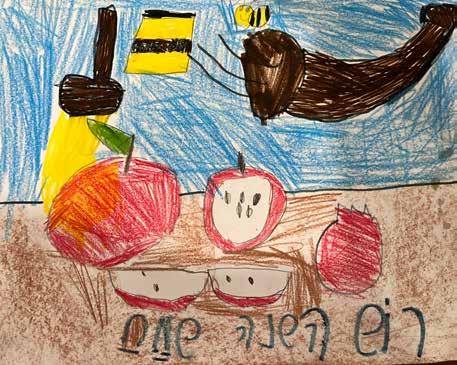
Zachary Schwartz
Parents' Names: Elliott and Betsy Schwartz
Artist's Age: 8
Title of Artwork: A Starlit Rosh Hashanah
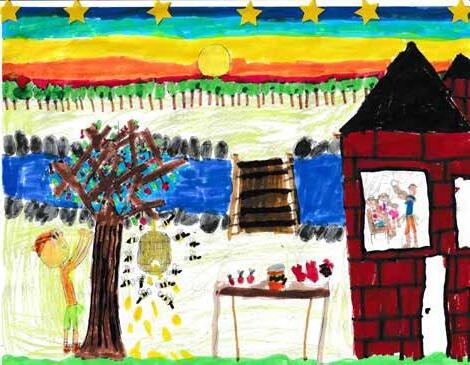
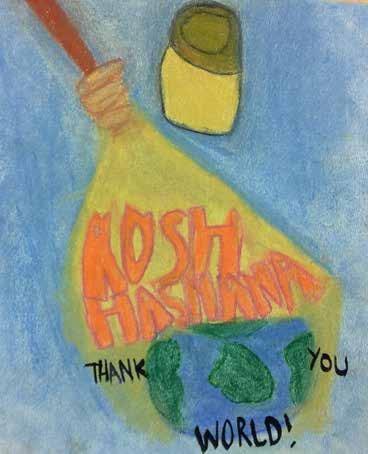
Eden Azulay
Parent's Name: Stella Azulay
Artist's Age: 11
Title of Artwork: Stargazing

Eitan Shimoni-Stoil
Parent's Name: Rebecca Stoil
Artist's Age: 7
Title of Artwork: Apples and Pikachu for Rosh Hashanah

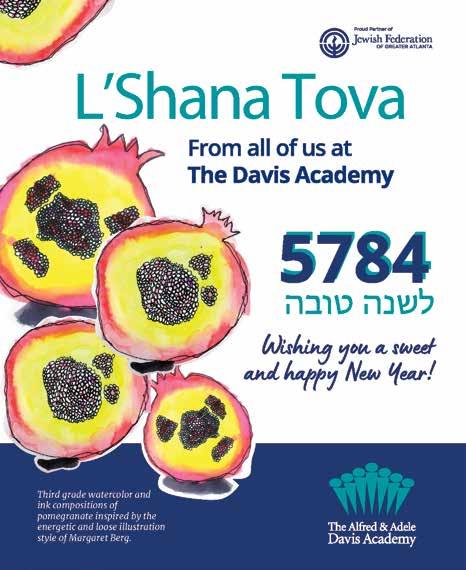

Maya Cohen
Parents' Names: Avital and Michael Cohen
Artist's Age: 8
Title of Artwork: HonAppPom
Sophie Mason
Parent's Name: Pam Mason
Artist's Age: 12
Title of Artwork: Rosh Hashanah at Night
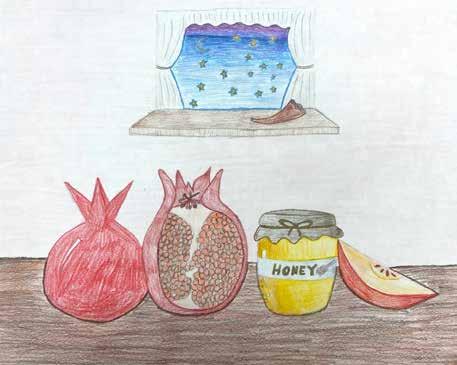
Talia Sack
Parent's Name: Julie Sack
Artist's Age: 11
Title of Artwork: Rosh Hashana Doors

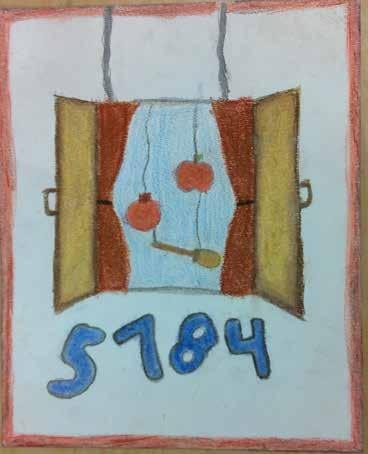
Parent's Name: Katie
Artist's Age: 10
Title of Artwork: Rosh Hashana Puppet Show











Christopher Nolan’s epic blockbuster, “Oppenheimer,” which has enjoyed worldwide success is told in a dramatic setting largely populated by characters who are Jewish. Nonetheless, it has been one of the most successful Rrated dramatic films ever in such diverse markets as India, Brazil, France, and Saudi Arabia. In the two months since its release, it’s headed for a total box office of more than $1 billion.
Bob BahrThe first two hours of the movie are spent on the absorbing story of how J. Robert Oppenheimer and his brilliant scientific team, many of whom were Jewish, worked together to usher in the Atomic Age.
In the last hour of the film, Oppenheimer, who was nominally Jewish, squares off in a losing battle against the chairman of the Atomic Energy Commis-
sion, Lewis Strauss, who had also been the president of Temple Emanu-El in New York City for 10 years. In Nolan’s movie, Strauss is the powerful and wealthy Washington insider who is determined to destroy the legendary scientist.
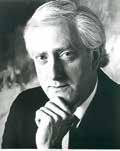
The confrontation of Jew against Jew is set against the background of the so-called Red Scare of the 1950s and concerns over Oppenheimer as a security risk. This fearful period had been largely set in motion by the work of the House
Un-American Activities Committee which had investigated left-wing influence in Hollywood, particularly by a number of Jewish screen writers and directors. Following up on that, there were allegations by Republican Senator Joseph
McCarthy that communist operatives had infiltrated the federal government bureaucracy in Washington.
He elaborated on those charges in a series of dramatic Senate hearings that also featured his Senate staffer, Roy Cohn. Finally, there was the conviction of Julius and Ethel Rosenberg for treason, for having passed atomic secrets to the Soviet Union. A Jewish federal judge, Irving Kauffman, who described their crimes as “worse than murder” sentenced them both to death.
According to Emory professor Eric Goldman, a noted authority on American Jewish history, the 1950s were a difficult decade for American Jews, who were experiencing unprecedented acceptance in America during the years following World War II. He describes it as “a golden age for American Jewry.”
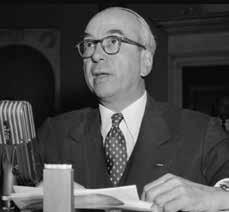
“There was a huge investment in building new synagogues and Jewish centers, particularly in the suburbs and things like that. And American culture now began to see Jews not as immigrant outsiders or members of some inferior foreign race but as part of the Judeo-Christian tradition where Jews, Protestants, and Catholics all seemed to have a kind of claim to being true Americans.”
But acceptance by American society in the post-war period, according to Goldman, came at a price. Jews were expected to conform culturally to the values of white, middle-class America. Celebrations of ethnicity and ethnic differences were discouraged. Jews embraced their new identity cautiously.
“Everywhere else in the landscape, they were expected to sort of blend in. So… although America was embracing this idea of a Judeo-Christian tradition…there was an aspect where they were sort of pushed by the society to narrow the definition of what it meant to be Jewish.”
For Oppenheimer, who struggled with his Jewish identity all of his life, the challenge of the new Atomic Age, with its fearsome weapons of mass destruc-
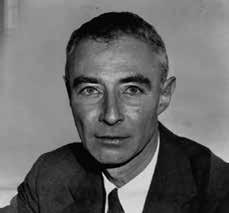
Name: Josh Anderson
Name: Avery Adelman
President, Hillel at Emory
Hometown: Atlanta, New York, & Singapore
One Word to Describe Hillel: Joyful
Position: Co-President, Hillel at GSU
tion, demanded that scientists speak out against the development of more powerful hydrogen bombs. It put him on a collision course with Edward Teller, one of Oppenheimer’s émigré Jewish colleagues on the bomb project and ultimately with Strauss, the AEC chairman, who conspired with Cohn and J. Edgar Hoover, the director of the FBI, to demolish Oppenheimer.
For fellow scientists, like Albert Einstein, whose 1939 letter to President Roosevelt urged that America explore the military potential of the atom, Oppenheimer’s decision to fight Strauss and others seemed suicidal. Einstein’s secretary later recalled a meeting Oppenheimer had with Einstein over how to fight back against the attacks in Washington.
Einstein, perhaps mindful of the times, counseled caution, that Oppenheimer faced a losing battle against a political establishment that was arrayed against him. But the nuclear scientist felt he could win and remain an important influence in American government.
Despite Oppenheimer’s courageous stand, his downfall at the hands of Strauss and his allies didn’t set off shock waves in the Jewish community. Like Einstein, many American Jews were sensitive to how far a personal crusade would carry them in American life. Emory University historian Goldman describes many in the American Jewish community of the 1950s as fearful of eroding their newfound acceptance in American life.
“Most Jews who are trying to achieve this integration into middle class white America were highly, highly aware and sensitive of anything that could possibly mark them as different or dangerous or deviant. They didn’t want anybody to think the Jews were communists or were anything other than good, compliant, conforming, white, middle-class Americans.”
Bob Bahr’s educational series at The Temple, “Oppenheimer, Barbie, Elvis, and Marilyn - Jews, Fame and the Transformation of America,” begins Oct. 19. ì
Hometown: Roswell, GA
One Word to Describe Hillel: Resourceful
Name: Henry Hyman
Position: Co-President, Hillel at GSU
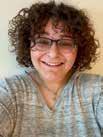
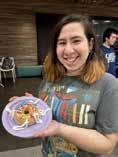
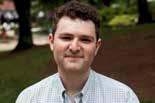
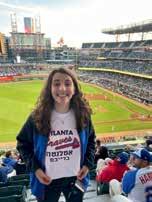
Hometown: Marietta, GA
One Word to Describe Hillel: Community
Name: Asher Lybarger

Position: President, Hillel at Georgia College

Hometown: Brunswick, GA
One Word to Describe Hillel: Acceptance
Name: Tal Najman

Position: President, Hillel at SCAD

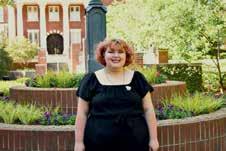
Hometown: Spring Valley, NY
One Word to Describe Hillel: Family
Name: Talia Segal
Position: President, Hillel at Georgia Tech
Hometown: Palm Beach Gardens, FL
One Word to Describe Hillel: Community
Name: Naomi Strauss
Position: President, Hillel at Georgia Southern
Hometown: Sandy Springs, GA
One Word to Describe Hillel: Family
The backbone of Hillels of Georgia’s student-led, studentdriven model is our student leaders. Students envision robust Jewish life on campus, while receiving dedicated mentorship from professional staff. We are so excited for this year’s team of inspiring leaders!
Support Jewish life on campus!

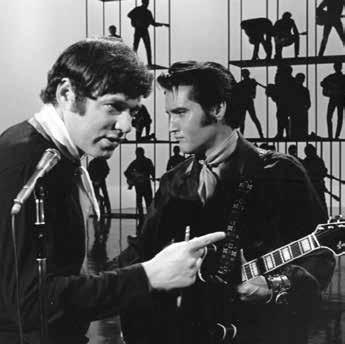 By Bob Bahr
By Bob Bahr

Paramount+, the streaming service, probably didn’t release its new documentary about Elvis Presley and his 1968 Comeback Television Special with the High Holidays in mind. But the production released last month makes lavish use of outtakes and broadcast scenes from the original NBC television program that could be made into an interesting holiday sermon. There is much to learn here about the power of self-reflection and renewal that are such an important part of the Jewish holiday season.
Presley may not have originally seen the television special that way, but the director of the program, Steve Binder and its producer, Bob Finkel probably did. This creative pair, both of whom were Jewish, came up with the idea to completely transform what was originally designed to be a traditional holiday special during the first week in December. Instead, they made it into an opportunity for Elvis to shake off the old and self-defeating mistakes of the past and to return to a more vibrant, alive re-creation of
who he once was.
If that sounds like too much of a stretch for this smartly produced look back at the spiritual and psychological
transformation of a superstar, you have only to consult Binder. He is both one of the executive producers of the program and the gracious and charming host of
the documentary. At the age of 91, he is the charming host of the program as well as one of the few original survivors who created the production. His memory of
the time is both sharp and insightful.

Binder reminds us in the opening minutes of the documentary that when Presley was first summoned to go before the television cameras, he froze. A decade of starring in a long string of mostly forgettable Hollywood musicals, with predictable plots and few personal challenges, had left him with an almost overwhelming fear that he couldn’t restart his once red-hot performing career.
It was to Binder’s credit that he persuaded Presley that he had no choice. Then he went on to help his star create what is generally considered one of the greatest musical performances in the history of television. As the documentary so clearly relates, often in intrusive and intimate close-ups, Presley quickly regained the sheer joy he once had in live performance.

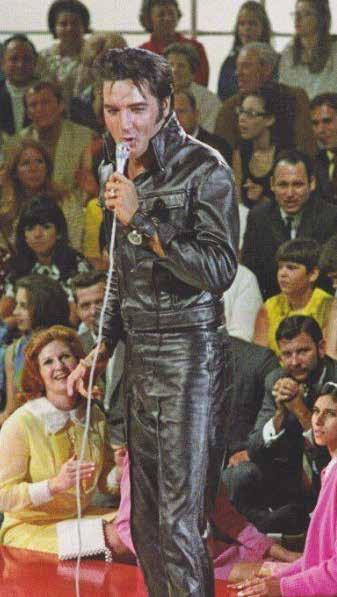
And as that confidence builds, he is literally transformed before our eyes into the dynamic, soul stirring entertainer that he had once been. What we are privileged to see in Binder’s retelling is the return in both body and spirit of a performer who had revolutionized both American music and American culture. As John Lennon puts it -- at one point in this fascinating program, before Elvis Presley, there was nothing.
While this documentary effectively relates how Presley was renewed and re-empowered by his newfound selfconfidence, the program also attempts to make the argument that this telecast

did the same thing for America. We are vividly reminded that 1969, the year the program was broadcast. was an extraordinarily chaotic one.
Both Dr. Martin Luther King, Jr. and Robert Kennedy were gunned down, there were bloody riots at the Democratic national convention in Chicago, the Tet offensive by North Vietnam became a turning point in the Vietnam War, and a number of cities in America came under violent siege. Presley’s music, it suggests, brought us all together, particularly in his stirring performance during the final minutes of the production. Like some High Holiday cantor, dressed completely in white, cantor Elvis sings his heart out to his unseen congregation beyond the footlights.
As he intones a prayer that says we may “be trapped in a world that’s troubled with pain, but as long as man has the strength to dream, he can redeem his soul and fly.”
In the eight years that remained in his life, Presley, who delved into the study of Jewish mysticism and wore a gold chai around his neck, was proud of having discovered that he had a Jewish great-grandmother. And he never forgot how his Jewish producer and director at NBC had given him a new beginning on national television just before the start of another New Year.
It is not too late, he seems to be saying to all of us after so many years. We have the power to turn and be renewed. I have done it and so can you. ì



The Golda Meir we encounter in Guy Nattiv’s new film about the Israeli Prime Minister is not the Golda Meir of legend. Unlike the Golda Meir whose abundance of grandmotherly charm warmed the hearts of American supporters of Israel a half century ago, this Golda Meir is a woman under siege.
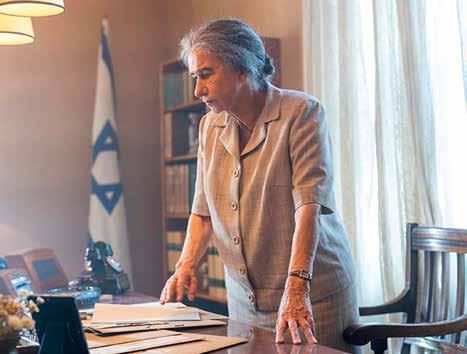
Literally, she is besieged by the armies of Syria and Egypt, in the days leading up to the 1973 Yom Kippur War, The two nations are fighting to avenge their crushing defeat by Israel during the the Six Day War in 1967. But she is also besieged by her own ill health and her secret fight against lymphoma, a blood cancer that saps her energy and eats away at her indomitable spirit. Although “Golda,” the movie, is set in an Israel at war, much of the battle that is portrayed takes place inside Golda, the solitary soul.
During the three weeks of the October 1973 war, which is the setting for the production, the Israeli-born director deconstructs much of the myth that Americans have come to associate with Meir. As he told the AJT on a visit to At-
lanta last month to promote the film at a preview sponsored by the Atlanta Jewish Film Festival, the difficult battles of the war are just part of a larger drama.
“There’s a chance here to focus on the inner Golda,” Nattiv said, “which is what went inside her head in these critical moments during the Yom Kippur war. It was the end of an era in Israel that had started with the hubris and the swagger from the 1967 war. In the film, the hero of that time, Moshe Dayan, the defense minister, is on the verge of collapse during this new war, begging to activate Israel’s nuclear weapons.”
The star of the film, Helen Mirren, is transformed by elaborate facial make-up and abundant body padding to approximate Meir’s appearance at the time. But the heavy facial prosthetics inhibit Mirren’s ability to fully communicate the Israeli prime minister dynamic personality. Nattiv says that so much of her characterization came in the way Mirren uses her eyes, the one part of her face that was relatively free of make-up and the way she moves. Mirren moves more slowly than anyone else in the film, as if she were carrying with her the full burden of
the personal and political problems that weighed her down.
“Helen Mirren was like a turtle,” Nattiv says, “because she moves very slowly.
She smokes very slow. She talks slowly. While everyone around her are chop, chop, chop, chop, chop fast talking Israelis.”
Meir bore the brunt of the failure of Israeli military intelligence to fully prepare for the attack by the Egyptians and the Syrians. That was despite a warning by a highly placed Egyptian spy for Israel, Ashraf Marwan. A new book just published in Israel, “When It Will Be Permitted To Talk,” describes how Marwan, the son-in-law of former Egyptian President Gamel Abdel Nasser, warned of the impending attack the night before it happened in 1973.
Another warning had come even earlier, in September, when King Hussein of Jordan met in a secret meeting in Israel with Meir and Dayan to alert the Israelis that Egyptians and Syrians were preparing to attack. He had learned about the plans on a visit to Cairo, where he was invited to be a part of the war, but he declined, because of the losses he had suffered during the 1967 conflict. He hoped that by warning the Israelis that they would press for better relations with the two Arab nations.
But his hopes and the warning were not taken seriously by the military. When the attack came on Yom Kippur, Israel was not fully prepared and, for a time, faced military defeat. The dramatic action in the film is backed by Golda Meir testimony before the Agranath Commission, which was set up to investigate Israel’s failure to fully prepare for the Egyptian and Syrian onslaught. She announced her resignation on April 10, 1974, after the Agranath Commission cleared her of any “direct responsibility” for the losses in the war. But in the popular Israeli imagination, the damage to her reputation was profound.


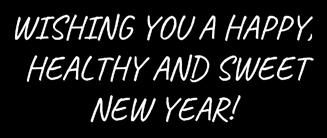










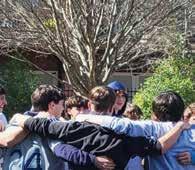
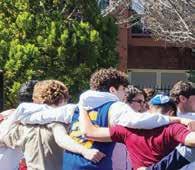
“The film is basically an opportunity to get in under her skin,” says the director, Nattiv, ”meaning we’re trying to understand what this woman went through and why no one cared about her after the war was ended. She was the scapegoat. She was the one to blame. But she took responsibility for her mistakes and resigned. Show me a politician that today would resign for her or his mistakes.” ì

 Robyn Spizman
Robyn Spizman
Gerson
JacLynn Morris is the first to tell you, she’s not exactly Grandma Moses, but she is having the time of her life in her mid-seventies thanks to a newfound passion.

Growing up in a home in upstate New York, Morris’ creative mother used to paint the backgrounds in the animation cells for Walt Disney films. Morris said, “Neither me nor my siblings felt artistically inclined; however, all of us actually were in our own ways. As a mom, when my children were young, I helped with their science projects plus art projects.”
Morris explained, “Staying home for over a year during the pandemic, I signed up for online art classes at Brentwood Art Center in Santa Monica. We had vacationed there during the summer, and I was familiar with the center. I found myself spending hours drawing and painting mostly with acrylics, ink, graphite, and watercolors. I attended eight lessons; each was two hours long and there was a small group of people in the class. The instructor was entertaining, skilled, and kind. No one felt bad that they had no clue what they were doing. He taught us how to blend paint, so it flowed, and we painted the sky, reflections, and water and my first piece was a strawberry.”
She continued, “All of a sudden, I created something recognizable and three-dimensional. I then painted a picture of my daughter in the pandemic. She was wearing a mask which I felt would be easier and, to my surprise, people recognized it was Emily. The class taught me how to look at things and see them differently. Instead of drawing circles for the eyes, I could tell eyes came towards you, and if you make the color light in the front, the back recedes. I could apply little things that taught me how to make things look real. And “Pandemic EM,” as we called my fateful painting of Emily, was the beginning of my journey painting what meant something to me. As I started painting my grandchildren, I wanted to leave something special behind that would touch people I love or remember a special moment that their (Grandma) Bibi created.”
Morris stated she was as surprised as anyone at what happened when she

posted some of her work on Facebook. She said, “People I barely knew - wanted to buy some of my pieces. Temple Sinai also just accepted me as an artist in their upcoming first art show in October. Juda-
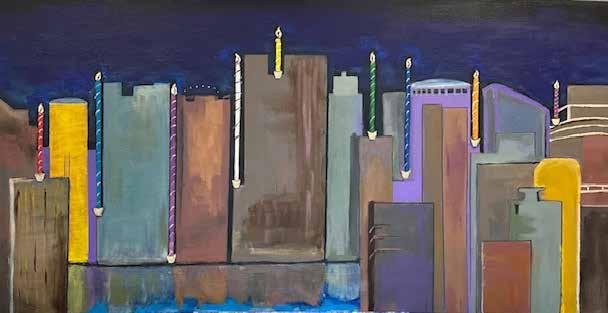

ic themes appear in realistic and abstract ways in several of my pieces and so do moments that bring me joy, like a little girl dancing with her dad - a new groom touching his wedding ring - a puppy rac-


ing across a field. And in each piece - fantasy shines. The little girl’s dress takes on a glow, the puppy’s ears and tail become a rainbow of movement.”
She added, “I still take classes online
through the Brentwood Art Center. An additional surprise came after my son, Peter, and his wife moved back to Atlanta. Their youngest daughter Peri, age nine, was given a choice of activities, and she said, ‘I want to paint with Bibi.’”
Morris shared, “Peri and I now take a class with my teacher and it’s one of the most amazing experiences. There are times I am astounded by Peri’s talent and ability.”
To continue to grow as an artist always learning, Morris commented, “I was thrilled when I finally got into Gary Bodner’s class, which are extremely popular. Gary is such a gifted artist and the most generous of teachers. He has taught me so much about painting, how you can convey anything in any color you want which opened a world of possibilities for my imagination.”
Morris said, “Painting has become my passion and it’s especially wonderful because it has enhanced my life with connections and, most of all, it makes other people smile.” ì
JacLynn Morris will exhibit her paintings at The Temple Sinai Art Show on Saturday, Oct. 14 and Sunday, Oct. 15. For more information, visit www.templesinaiatlanta.org/artshow. Follow her on Facebook and Instagram.



Marcia
Caller Jaffe
Ted Blum, managing shareholder of Greenberg Traurig’s Atlanta law office and chair of the firm’s Atlanta Corporate & Securities Practice, focused during COVID on crafting his book, “Calculated Risks.”
On the one hand, responsible for the growth and strategic direction of the firm with more than 100 attorneys, Blum set out to explore his family’s inspirational story of heartache, survival, and hope. A product of Hungarian Jewish immigrants, he shares the travails of his ancestors.
He recalled, “One of the silver linings of COVID was the addition of extra time in my busy schedule to allow a rare opportunity to reflect on my family’s legacy more deeply than ever before. Growing
up, it was surreal to grasp the concept… refugees fleeing to a safer place.”
Blum rummaged through boxes of documents collecting dust in closets. He was fascinated by unraveling stories and

impossible decisions made along the way. Blum and wife, Leah, recreated the steps by traveling where relatives traversed on their harried exit from Europe while the world was at war. On one research trip,
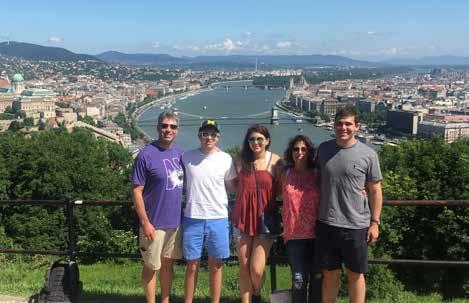
he commissioned the only custom globe maker in the world to create a family globe detailing their journeys. This became a passion project for Blum. While the whole of Europe was fall-
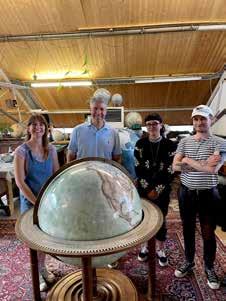
Shuman & Shuman, P.C. is a family law practice committed exclusively to guiding clients through matters of divorce and family law, custody, child support, alimony, division of property, pre- and post-nuptial agreements, post-divorce issues and a variety of other family related situations.

Attorney Eileen J. Shuman provides dedicated legal support for clients both in the courtroom and through alternative dispute resolution including mediation and collaborative divorce.
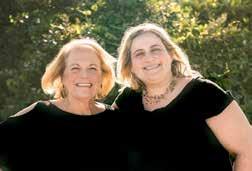
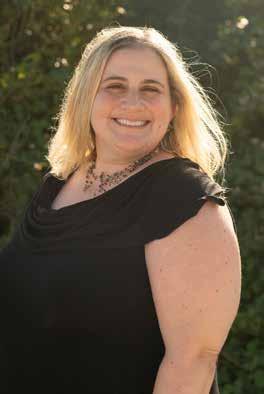
Eileen represents clients who have cases in Metro Atlanta and the surrounding counties.
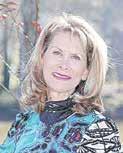


ing to Nazi Germany, Jews all over the continent were at risk. Blum’s maternal grandfather understood the danger in Hungary and scraped together the money to come to New York on a tourist visa, ostensibly to visit the 1939 World’s Fair, while others remained in Budapest waiting. Once in America, he used his prestigious degree from the Sorbonne in Paris as a metallurgist and chemist to work by recycling metal for war production. There, he secured a patent that helped the U.S. recycle tin to help the war effort.
Considered an “essential worker” in the U.S., he was then able to send for Blum’s grandma, aunt, and mom. Blum shared, “They were among the last 10 visas issued to Hungarian citizens before the U.S. entered the war. They were very lucky to get out but felt torn as they left their extended family and all they had ever known behind.”
The book strings through Portugal, Spain, ships in risky waters, trains through Nazi-occupied territory, until arriving in New York into the saving arms of HIAS. Blum said, “Like literally millions of other immigrants, they knew they had arrived when they sailed by the Statue of Liberty. Unfortunately, acclimating from this point was not smooth either.”
Blum doesn’t view this as a Holocaust escape story. Neither pair of grandparents was under immediate threat of death. He concluded, “In reality, it’s possible they could have remained where they were and survived, but it wasn’t a
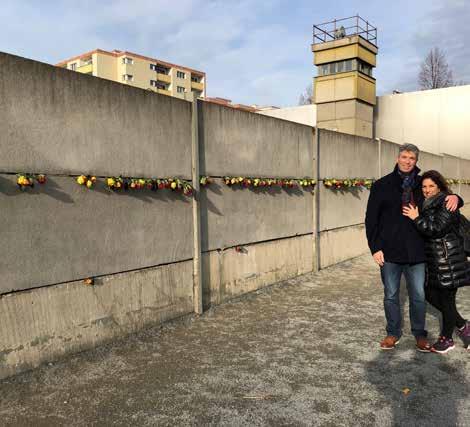




risk they were willing to take. This story is about a family journey, and no two journeys are alike. My story shows how ordinary people can do the extraordinary when called for. More than the Holocaust — it’s about surviving during tumultuous times in the early 20th century, with economic, technological, and political change.”
The book also reveals Blum’s paternal grandfather, Henry, who fought in the trenches for the Austro-Hungarian Empire during World War I, captured in an overwhelming Russian victory, surviving years in captivity as a prisoner deep in Siberia, and later emigrating to the U.S.
“Calculated Risks” lays out what ties us together as Americans. Blum concluded, “We are all seeking the path to our best lives. For many, our ancestors came from far away and sometimes under duress. My story aligns with many in the U.S., and the book poses questions: Who came before me? How did I get here? How does it impact my life and the way I am today? Despite our differences and where we came from, there are common ties that bind us all together: love of family, appreciation of our many freedoms here, and a desire for a better life.”
Pre-order a signed hardcover of “Calculated Risks” at www.theodoreblum. com. A portion of the proceeds will be donated to Helping Ukraine | One Day for Ukraine. Also available for purchase on Amazon. Please visit www.theodoreblum.com for more info. ì

 By Bob Bahr
By Bob Bahr
The founder of the Jerusalem Ballet Company, Nadya Timofayeva, visited Atlanta last month to drum up support for an American tour for her company. During a short stay that was coordinated by the Israel Consulate in Atlanta, she visited dance programs in Peachtree City, Atlanta, and at Kennesaw State University.

In meetings with local cultural leaders, she was particularly interested in promoting the Jerusalem’s Ballet production of “Momento, Franceska’s Last Dance At Auschwitz,” a performance set during the Holocaust in the fall of 1943. It first premiered in September 2019 on the 80th anniversary of the start of World War II in Europe.
The story is based on the life of a young, rising ballet star, Franceska Mann, who, before the war, had won a prestigious international dance competition in Europe. Her career was cut short when the Germans invaded Poland in 1939 and she was interned in the Warsaw Ghetto. But despite the extraordinary difficulties of daily life in the ghetto, she re-
mained stubbornly optimistic.
“She never gave up hope,” Timofayeva said, “that the world would do what
was right and she could resume her life.
To the very end she was hopeful.”
The Jerusalem Ballet performance
is based on research Timofayeva conducted at Yad Vashem, Israel’s Holocaust Museum, and among family members
of Mann, who had survived the war and told of her heroism.

Mann was among a group of young women who were transported from the ghetto under the false assumption that they were to be ransomed from German prisoners of war being held in Switzerland.
The actual story, according to accounts in the book, “Eyewitness Auschwitz,” by Filip Mueller and confirmed by testimony at the International Military Tribune in Nuremberg, at the end of World War II was that their real destination was the gas chambers at Auschwitz. It was while there, just before her death, that Mann either used a pistol she had hidden in her clothes, or she wrestled away a weapon from one of the SS guards. Moments later she murdered one of the officers who was supervising the women and wounded another Nazi soldier. In her staging of the story’s climactic moment, the Jerusalem Ballet director choreographed the dance of death without the use of weapons. Instead, in her final moments on stage she wraps her body around the Nazi solider and crushes him.

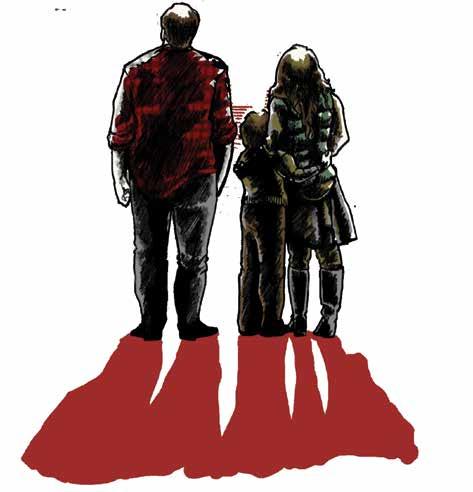

When she first heard the story, Timofayeva recalls that she could imagine Mann’s journey of hope and disappointment and finally, death, as a great performance.

“I could see myself as this woman, I could see myself move as she moved. As I worked on the dance for nearly a year, her feet seemed to become my feet. Her story became a part of me.”
Timofayeva’s own story is also an interesting one. Nadya grew up in the former Soviet Union, where she graduated from the world-famous Bolshoi Ballet School and became a member of the company.
Her mother, Nina Timofeeva, as she was known in Russia, was a prima bal lerina, who starred at both the famed Mariinsky Ballet in St. Petersburg and the Bolshoi in Moscow, where she was featured in some of the greatest works of the Russian classical ballet. Her fame was confirmed when she was later elected for a four-year term to the Supreme Soviet, the legislative body of the Soviet Union. The family immigrated to Israel in 1991. Nadya established the Jerusalem Ballet in 2008, six years before her mother’s death.

Nadya admits it has been a struggle to get Israeli audiences to accept classical dance as she knew it in Russia. Although her company is supported by the Israel Ministry of Culture and the Jerusalem municipality’s cultural department, she has had to adapt her approach to performance.

The choreography of works like “Momento” is what she describes as “neoclassical.” It joins a repertoire that, in recent years, has included dance performances of Shakespeare’s “Taming of the Shrew” and “Fiddler On The Roof.”

A documentary film about the evolution of “Momento” is now in production in Israel. It is being put together by the same company that produced “Underground Ballet,” about the Jerusalem Ballet that won best documentary at the Haifa International Film Festival. The film follows the company through its rehearsals in a space that they have rented for several years under the bleachers at Jerusalem’s main soccer stadium. It was a featured selection at the Atlanta Jewish Film Festival in 2020.
“Maybe when the new documentary about ‘Momento’ is finished,” Timofayeva said, “we can come to the Jewish film festival in Atlanta to perform our ballet in person.” ì


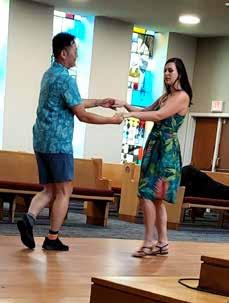
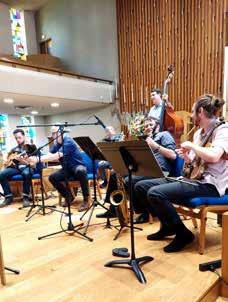
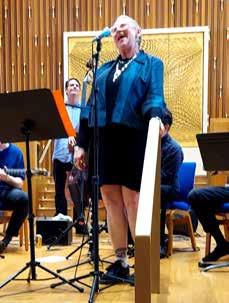
There are many ways to celebrate a special occasion; however, sponsoring a community musical event that features a favorite Atlanta band stands out as unique.
Barbara and Ken Feinberg did just that to celebrate their 35th wedding anniversary by bringing The Bonaventure Quartet to Ahavath Achim Synagogue on Sunday, Aug. 21, to open this season’s acclaimed music series. ‘
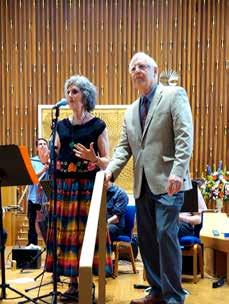
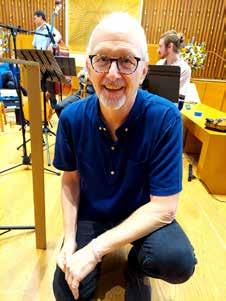
Barbara says that she had been “enchanted” by Bonaventure’s music since first hearing them about 10 years ago, and when she heard them again at Eddie’s Attic, she and her husband decided to sponsor them as one of Ahavath Achim’s planned concerts. Barbara reflects that “every musician in the group is a standout,” and singer Amy Pike’s voice “delivers on every song’s poignant melody and lyrics.”
The Feinbergs’ decision was clearly appreciated: at the concert’s end, members of the audience, many who had never heard the hometown band before, crowded around the couple to thank them for introducing them to the distinctive group.
The Feinbergs have been attending the synagogue’s concerts for years, and Barbara has written copy for the printed programs, been an informed sounding board for ideas, and welcomed guests to performances. The long-standing music series has gained a wide local and regional audience by regularly featuring classical music concerts by world-class musicians; and Ivan Millender, who has chaired the music series since 2005, affirms, “We aim to bring a variety of live performers, orchestras, and bands to our audiences. We’re gratified by the large numbers of Jewish and non-Jewish music lovers who look forward to attending our programs.”
As part of the commitment to showcase a diversity of memorable performances, The Bonaventure Quartet was the perfect opener for the upcoming Ahavath Achim Marilyn Ginsberg Eckstein Cultural Arts music series. (For this occasion, performing in the synagogue’s large, renovated sanctuary, the quartet grew in size to a sextet.)
The Bonaventure Quartet is distin-
guished by its signature mixture of swing and cabaret-style music, adding a new genre to Ahavath Achim’s musical offerings. With its first song, the band immediately transported the audience into the ambience of an informal jazz club, with music inspired by the mood and sound of 1930s Paris, France. Most of the songs on the afternoon’s program were composed and given elegiac lyrics by Charles Williams, the lead guitarist, who founded the group in 2000 and named it after the street near Ponce de Leon where he lived.
Founder Williams opened the program by succinctly noting, “We’re kind of a French swing band.” Echoing the sounds of gypsy-jazz, torch songs, and ballads, along with evocative original compositions, The Bonaventure Quartet has played throughout Atlanta in
countless venues and was appropriately described in Southeastern Performer Magazine as “bringing the unmistakable music of jazz clubs and cabarets to the present.”
While each of the band’s musicians played with skill and vigor, some of them showed mastery on more than one instrument, and mezzo-voiced chanteuse Amy Pike reached deep into each song’s dramatic or ironic center. Adding an unexpected dimension to the spirited afternoon, a number of couples, familiar with Bonaventure’s rhythmic music, rose from the large audience and took to the floor, dancing to select songs throughout the concert. The dancers were a treat for the audience, and, according to Barbara, a delightful surprise for her and her family.
Barbara Feinberg explains the
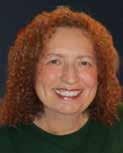
couple’s magnanimous decision, “I’ve enjoyed the music of the Bonaventure Quartet for many years, and I knew they would be a great group to bring to Ahavath Achim’s Cultural Arts Program. So, Ken and I decided we’d sponsor them in concert to share their incredible songs and musicianship with our friends and synagogue community. We were able to bring together the music we love with the people we love on the occasion of our 35th wedding anniversary. No other celebration could be sweeter.”
There is no admission charge to attend any of the Marilyn Ginsberg Eckstein Cultural Arts programs, and all of them are open to the general community. A dessert reception follows each concert, during which audience members are invited to socialize and meet the performers. ì
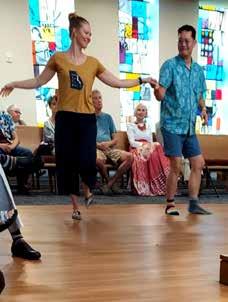
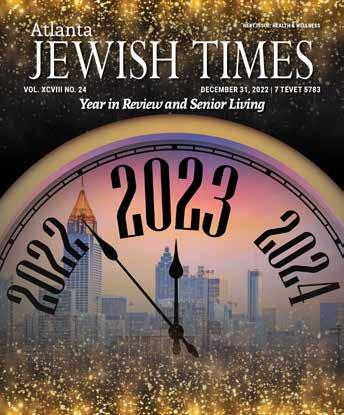


 By Bob Bahr
By Bob Bahr
You’re not likely to run into the celebrity chef, Marcus Samuelsson, at his new restaurant Marcus Bar and Grille in the historic Old Fourth Ward.

Since its successful launch in March, Samuelsson has made only a few brief public appearances there. He showed up during the Fourth of July holiday to display some of his skills at the barbeque grill and he makes quick visits to check up on the kitchen, but like most chefs of his stature, who leave the day-to-day operation in capable hands, he’s mostly concerned with the weekly customer counts and the feedback he gets from regular visitors.
The well-known cook stays busy with his cable and public television cooking shows and is a bestselling author of several largely autobiographical books of recipes and reminiscences. He has cooked for state dinners at the White House and, during the pandemic, created a food kitchen that served thousands of meals for first responders and needy residents in New York City.
Interview requests over the past summer have usually been answered briefly, with a statement that he’s on the road opening new restaurants. At last count he has at least three dozen eating places in his business portfolio, spread across two continents and the Caribbean, and more, presumedly, are on the way.
Not having a Marcus in the Marcus Restaurant doesn’t seem to matter to the happy crowds who have regularly filled his restaurant to sample the tried-and-true recipes of the master. A recent early evening visit to the Edgewood Avenue operation showed a mostly full house in the large, open, cavernous industrial space that spills out onto a spacious patio in front. There’s room for about 185 diners in the three dining areas of the restaurant, with a generous number of bright blue leatherette generously spaced out across the room.
Most of the seats at the long bar next to one wall were taken, and what appeared to be a lively group of diners were enjoying such favorites as the crisp and spicy fried chicken and cornbread waffles with a sweet maple glaze, the brown sugar wings and Old Bay crab cakes. The open kitchen and open fire grill that occupies the rear wall don’t seem to be particularly challenged by the modest menu. They seem to have a particularly sure hand with the fish and seafood dishes. A striped bass entree atop a light Asian-
inspired sauce of miso, wok choy, and blistered tomatoes was both well priced and well served. Likewise, the wood fired king salmon served with a Hispanic salsa verde, a French red pepper coulis, and chopped American summer vegetables.
The culturally wide-ranging menu, which makes a generous nod to a number of African American soul food favorites, is a good representation of the many influences of Samuelsson’s extraordinary life. He was born in a small village in Ethiopia about 75 miles from the capital of Addis Ababa. His mother died when he was four, and he was adopted by a Swedish family in the port city of Gothenberg, where he had a Jewish aunt who had also been adopted after escaping from the Holocaust in Germany.
He survived a tough, classical apprenticeship in several exacting kitchens in Switzerland and Austria and came to America at the age of 24 with just $300 in his pocket. He quickly won praise and a pair of three-star reviews in the New York Times that launched him as a rising star. But it was his embrace of African American food and the debut of his Red Rooster restaurant at 125th Street and Lenox Avenue in the heart of Harlem that firmly established him on America’s culinary map. His well reviewed memoir, “Yes, Chef,” in 2012 was followed up with his two explorations of American soul food in “The Red Rooster Cookbook” in 2016 and “The Rise - Black Cooks and the Soul of American Food,” three years ago. There’s even a nod in the Red Rooster
book to Harlem’s Jewish past with Samuelsson’s own recipe for a traditional challah loaf.
Along with the books, the eight James Beard Awards he’s won have cemented his elevation as one this country’s most honored and innovative chefs and certainly its most well-known kitchen wizard of color.
The location of his new Marcus Bar and Grill just a few short blocks from the King Center on neighboring Auburn Avenue and the Martin Luther King, Jr. birthplace is no accident. It is a well-intended reminder that Samuelsson, who had little experience with American food until he was an adult, has confirmed his place in both the cultural and culinary heritage of this nation. ì






Have something to celebrate?
Births, B’nai Mitzvah, Engagements, Weddings, Anniversaries, Special Birthdays and more ... Share it with your community with free AJT simcha announcements. Send info to submissions@atljewishtimes.com.
 Jessie and Josh Brooks had a baby girl, Emery Rhiannon Brooks
Jessie and Josh Brooks had a baby girl, Emery Rhiannon Brooks

Interest-Free Loans for Higher Education until September 30 JELF (Jewish Educational Loan Fund) helps Jewish students by providing interest-free loans for higher education. To qualify, applicants must be a resident of Georgia, Florida, North Carolina, South Carolina or Virginia (excluding metro D.C.), be enrolled full-time in a degree or certificate seeking program, have U.S. citizenship or lawful immigration status, and be able to demonstrate financial need (2022 FAFSA application required). Apply at https://bit. ly/3O50qV7.
Music & Sensory Play - 9:30 to 10:30 a.m. Nurture wonder through music and play! Here We Grow will start the morning off with an engaging music and movement class then Nurture will lead themed sensory play and art activities. Friday classes are designed for babies 6 -18 months old. Register at https://bit.ly/44mpAnp.

Rosh Hashanah Dinner - 7:30 to 8:30 p.m. Enjoy the tastes and traditions of Rosh Hashanah with community, family, and friends. Join Mitzvah House for a delicious dinner is spiced with great food, song, and meaningful holiday insights. RSVP at https://bit. ly/3Z7CcNP.
Rosh Hashanah Day 1 - 9:30 a.m. to 1:30 p.m. Experience the warmth and welcoming spirit of Rosh Hashanah Morning Services at Congregation Bet Haverim. Join us for a memorable and uplifting celebration as we come together to welcome the new year. Led by the inspiring Rabbi Mike Rothbaum and accompanied by the beautiful voices of the CBH Chorus, under the guidance of Will Robertson, these services are a true testament to the power of community and prayer. Register at https://bit.ly/482PdfG.
Rosh Hashanah First Day Services Congregation Dor Tamid -10 a.m. to 4:30 p.m. Morning Service starts at 10 a.m., Taslich at 1 p.m. (held behind lake at Johns Creek City Hall), and Family Service begins at 3:30 p.m. Find out more at https://bit.ly/45TP8Je.
High Holidays in Hall County - 9:30 a.m. Celebrate the High Holidays with Chabad in Hall County, GA RSVP at https://bit.ly/3Lb0MaO.
Rosh Hashanah Day 2 - 9:30 a.m. to 12 p.m. Open your heart, raise your voice, deepen your breath, and welcome the new year in a contemplative chanting and embodied Rosh Hashanah service as part of CBH’s High Holiday offerings. Awaken your soul in our alternative Torah service and be present for the first shofar sounds of the year. Register at https://bit.ly/45HG6j8.
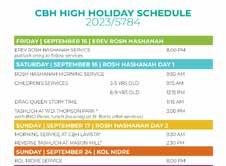
Rosh Hashanah Second Day Services - 10 a.m. to 1 p.m. Join Congregation for Dor Tamid for Services. RSVP at https://bit.ly/3R8HLcQ.
Erev Rosh Hashanah - 8 to 10 p.m. We believe that the High Holidays are a time for all to come together and support one another, as we grow in spirit and in action as a united community at Congregation Bet Haverim. The theme this year is L’Shem Shamayim, “For the Sake of Heaven.” We pray that we find the strength to direct our words and deeds toward our highest principles, and most cherished values. RSVP at https://bit.ly/3R8tdtI.
A Night with the Dads II: The Daddening - 7:30 to 9 p.m. The Dads are back at Stage Door Theatre with their awardwinning improv comedy shows. All shows contain adult language and themes. Purchase tickets at https://bit. ly/3sBkvtK.

High Holidays: Rosh Hashanah Dinner - 7:30 p.m. Come join Chabad of Buckhead and Chabad of Brookhaven for a Rosh Hashanah Dinner. RSVP at https://bit.ly/3RhoYMq.

High Holidays in Hall County - 9:30 a.m. Celebrate the High Holidays with Chabad in Hall County, GA RSVP at https://bit.ly/3Lb0MaO.

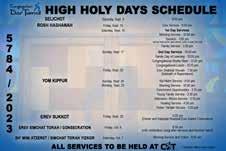
High Holidays: Rosh Hashanah Dinner - 8 p.m. Come join Chabad of Buckhead and Chabad of Brookhaven for a Rosh Hashanah Dinner. Reserve at https://bit.ly/3RhoYMq.
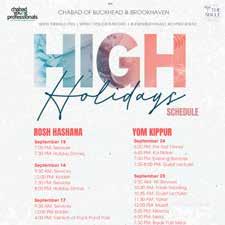
Rosh Hashanah Rockin’ Noon Year's Eve - 11 a.m. to 1 p.m. Bring in the new year of 5784 like never before with a rockin’ Noon Year’s Eve celebration for the whole family. Enjoy activities and crafts at MJCCA for ages 4-11 connected to the celebration of Rosh HaShanah and make sure not to miss the Apples and Honey toast at noon to celebrate the New Year! Find out more at https://bit.ly/3Ex0zec.
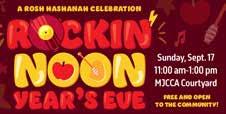
Tashlich Lunch - 1:30 Join Congregation Or VeShalom for a short Tashlich ceremony and a boxed lunch immediately following Rosh Hashana Day 2 morning services. $10 per person for lunch. RSVP at https://bit.ly/4629Cjl.

Rosh Hashanah
Friday, September 15, Elul 29, 5783 Light Shabbat / Holiday Candles at 7:25 PM
Saturday, September 16, Tishrei 1, 5784 Light Holiday Candles after 8:19 PM from a pre-existing flame.
Sunday, September 17, Tishrei 2, 5784 Holiday Ends at 8:18 PM
Torah Reading: Ha’azinu
Friday, September 22, Tishrei 7, 5784 Light Candles at 7:16 PM
Saturday, September 23, Tishrei 8, 5784 Shabbat Ends 8:09 PM
Yom Kippur
Sunday, September 24, Tishrei 9, 5784 Light Holiday Candles at 7:13 PM
Monday, September 25, Tishrei 10, 5784 Holiday Ends 8:06 PM
Sukkot
Friday, September 29, Tishrei 14, 5784 Light Shabbat / Holiday Candles at 7:06 PM
Saturday, September 30, Tishrei 15, 5784 Light Holiday Candles after 7:59 PM from a pre-existing flame.
Shofar in Brook Run Park - 2 to 3 p.m. Join Fellows neighborhood friends from around the city (rain or shine!) between 2 -3 pm (blowing the Shofar every 20 minutes to hear the timeless, relevant sound of the Shofar and experience a barrier-breaking moment of spirituality and unity! RSVP at https://bit.ly/3P4VPBt.


Sunday, October 1, Tishrei 16, 5784 Holiday Ends 7:58 PM
TUESDAY, SEPTEMBER 19
Brain Health Bootcamp - 11 a.m. to 1 p.m. Join a Fun, Social Class to Strengthen Your Mind and Body to Stay Sharp! With age serving as the greatest risk factor for cognitive impairment or memory loss, JF&CS is taking action with the Brain Health Bootcamp. The first of its kind in Atlanta, it is designed to provide memory enhancement techniques through cognitive stimulation, physical exercise, education, and socialization. Join by visiting https:// bit.ly/451GNDC.
ACT Orientation – 6 to 9 p.m. Orientation for JWFA’s 5th cohort of the Agents of Change Training program (ACT). RSVP at https://bit.ly/3sHDJOu.
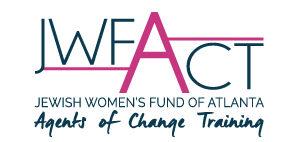
Millie Bobby Brown, Nineteen Steps - 7 to 9 p.m. A Prologue to the Book Festival of the MJCCA Presents Millie Bobby Brown, Nineteen Steps: A Novel, the dazzling debut novel from actress, producer, and social justice advocate Millie Bobby Brown, is a moving tale of love, longing, and loss inspired by the true events of her family’s experience during World War II. Get tickets at https://bit.ly/3R4Wvtm.

Shofar Blowing & Tashlich in the Park - 5:30 p.m. Shofar and Tashlich for the 2nd day of Rosh Hashanah with the Chabad of Gwinnett. RSVP at https:// bit.ly/3EtTStI.
MONDAY, SEPTEMBER 18
Jeff’s Place Café – 8 a.m. to 12 p.m. Need a place to host your Monday-morning business meeting? Looking to meet a friend for breakfast and coffee? Craving some bagels and lox before heading into the office? Come to Chabad Intown and find out more at https:// bit.ly/3IRgve6.
Kid Fun Yoga - 3:30 to 4:30 p.m. Each Kid Fun Yoga class with Jennifer Gruher at MJCCA will focus on proper breathing practices and guided meditations through affirmations and mantras. Little yogis will learn sequences and poses that focus on building strength, flexibility, and balance, all while having a ton of FUN! Classes will include yoga games, music, and mindfulness activities that build confidence. Kid Fun Yoga will leave the kids feeling a renewed sense of well-being, balance, peace, and calm. Register at https://bit. ly/3KkqxoR.

Caregiver Support Group - Dunwoody Sandy Springs - 6 to 7 p.m. Watching those we love lose their memory or ability to live independently is difficult on all levels. Taking some time to focus on your own mental and emotional well-being will help you be a better caregiver for someone else. RSVP at Berman Commons Assisted Living & Memory Care and Jewish Homelife, at http://bit.ly/3XuB84q.
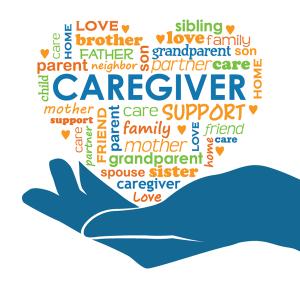
Stories of Exile Reading Group - 7-8
p.m. In this first Stories of Exile reading group discussion, we will explore the concepts of Home and Memory. We will discuss the short stories “The Bridegroom Tree,” and “By the Light of the Moon,” and “At the Western Wall” from Yenta Mash’s On the Landing and “Andrea” from Roberta Fernández’s Intaglio. Learn more at https:// bit.ly/462a15l.
Family Music Class - 10 a.m. to 12:30 p.m. Babies and their caregivers will join with Taryn Rioseco of Here We Grow ATL to sing, dance and play as well as connect with your little one and other families while enhancing brain development along with social and cognitive tools. Learn more at https://bit. ly/44FlIxt.

Brain Health Bootcamp - 10:30 a.m. to 12:30 p.m. Join a Fun, Social Class to Strengthen Your Mind and Body to Stay Sharp! With age serving as the greatest risk factor for cognitive impairment or memory loss, JF&CS is taking action with the Brain Health Bootcamp. The first of its kind in Atlanta, it is designed to provide memory enhancement techniques through cognitive stimulation, physical exercise, education, and socialization. Join by visiting https://bit.ly/3tPwMs3.
Rosh Hashanah Erev Shabbat Shuvah - 7:30 p.m. Sabbath of Repentance at Congregation Dor Tamid. Learn more at https://bit.ly/46iqUsH.
High Holidays: Yom Kippur Pre-Fast Dinner - 5 p.m. Come join Chabad of Buckhead and Chabad of Brookhaven for a Yom Kippur Pre-Fast Dinner. Reserve at https://bit.ly/3qTLHUl.
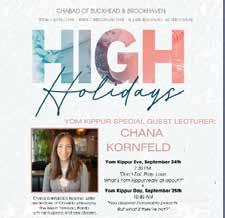
Yom Kippur Services - 9:30 a.m. to 8 p.m. We extend a warm invitation to you to join us for Yom Kippur Services at CBH, where the harmonious melodies of the CBH Chorus will enrich our spiritual journey. It’s a day of reflection, forgiveness, and unity, and we welcome everyone to be a part of this meaningful observance. RSVP at https://bit.ly/3r0JTZx.
Young Adult Bar Night - 7 to 9 p.m. Join Congregation Or VeShalom at the Distillery of Modern Art for a cocktail crafted from their very own spirits. Enjoy their current art installation featuring work by local artists. For young adults under age 40. Find out more at https://bit.ly/3r0RUO7.

Balourdet Quartet with Jordan Bak, Viola - 8 p.m. Recently named one of the “30 under 30” rising classical music stars, Jamaican-American violist Jordan Bak joins the Balourdet Quartet at the Schwartz Center for a performance of quintets including Brahms, Mozart, and Mendelssohn. Purchase tickets at https://bit.ly/47WV3zj.

Music & Sensory Play - 9:30 to 10:30 a.m. Nurture wonder through music and play! Here We Grow will start the morning off with an engaging music and movement class then Nurture will lead themed sensory play and art activities. Friday classes are designed for babies 6 -18 months old. Register at https://bit.ly/44mpAnp.
Nurture’s 1st Birthday & Li’l Shabbat in the Garden – 10:30 to 11:30 a.m. Come celebrate and party with us at The Davis Academy! Families are invited for a special Shabbat morning celebrating Nurture’s 1st Birthday. Together we will sing, explore and enjoy a li’l nosh. Together, we will experience a beautiful Shabbat filled with joy, friends and cake! Learn more at https://bit. ly/3Z9Qe1p.


High Holidays in Hall County – 6:55 p.m. Celebrate the High Holidays with Chabad in Hall County, GA RSVP at https://bit.ly/3Lb0MaO.

High Holidays in Hall County - 9:30 a.m. to 8 p.m. Celebrate the High Holidays with Chabad in Hall County, GA RSVP at https://bit.ly/3Lb0MaO.

Yom Kippur Alternative Service -7:30 p.m. - Introducing Special Guest Lecturer for Jewish Buckhead and Brookhaven’s Yom Kippur Programming: Chana Kornfeld RSVP at https://bit.ly/3Z8O968.
Yom Kippur – Kol Nidre Service - 8 p.m. Kol Nidre Service at Congregation Dor Tamid. Find out more at https://bit. ly/3EsQhfb.
Kol Nidre Services - 8 to 10 p.m. Join CBH for a truly moving and spiritual experience at our Kol Nidre Services, which will be held on Sunday, September 24th, starting at 8 p.m. at St. Bart’s. Reserve your spot at https://bit. ly/44Cpach.
Yom Kippur - 10 a.m. to 6 p.m. Yom Kippur Service at Congregation Dor Tamid. Find out more at https://bit. ly/48eUyAO.
Yom Kippur Alternative Service - 10:45 a.m. - Introducing Special Guest Lecturer for Jewish Buckhead and Brookhaven’s Yom Kippur Programming: Chana Kornfeld. RSVP at https://bit.ly/3Z8O968.
Brain Health Bootcamp - 11 a.m. to 1 p.m. Join a Fun, Social Class to Strengthen Your Mind and Body to Stay Sharp! With age serving as the greatest risk factor for cognitive impairment or memory loss, JF&CS is taking action with the Brain Health Bootcamp. The first of its kind in Atlanta, it is designed to provide memory enhancement techniques through cognitive stimulation, physical exercise, education, and socialization. Join by visiting https:// bit.ly/451GNDC.
WEDNESDAY, SEPTEMBER 27
Fall Impact Forum - 12 to 1:30 p.m. Jewish Women’s Fund of Atlanta’s quarterly convening features a keynote speaker and an update on happenings within the organization. Learn more at https://bit.ly/3L78iDO.
Family Music Class - 10 a.m. to 12:30 p.m. Babies and their caregivers will join with Taryn Rioseco of Here We Grow ATL to sing, dance and play as well as connect with your little one and other families while enhancing brain development along with social and cognitive tools. Learn more at https://bit. ly/44FlIxt.
Brain Health Bootcamp - 10:30 a.m. to 12:30 p.m. Join a Fun, Social Class to Strengthen Your Mind and Body to Stay Sharp! With age serving as the greatest risk factor for cognitive impairment or memory loss, JF&CS is taking action with the Brain Health Bootcamp. The first of its kind in Atlanta, it is designed to provide memory enhancement techniques through cognitive stimulation, physical exercise, education, and socialization. Join by visiting https://bit.ly/3tPwMs3.
Erev Sukkot - 6 p.m. Dinner and Kabbalat Shabbat with Congregation Dor Tamid. Find out more at https://bit. ly/4610Amq.
Hadassah SE Region - What Zionism Means to Me - 6 to 8 p.m. Hadassah Southeastern Region Invites You To “WHAT ZIONISM MEANS TO ME!” Join us in conversation with trailblazing Jewish Women. Register at https:// bit.ly/3Eq6YrK.

FRIDAY, SEPTEMBER 29
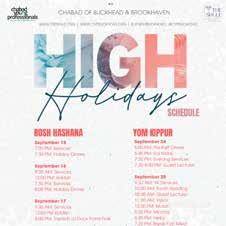
Music & Sensory Play - 9:30 to 10:30 a.m. Nurture wonder through music and play! Here We Grow will start the morning off with an engaging music and movement class then Nurture will lead themed sensory play and art activities. Friday classes are designed for babies 6 -18 months old. Register at https://bit.ly/44mpAnp.

Tuesdays with Morrie - 7:30 to 9 p.m.
“Tuesdays with Morrie” is a touching play based on the true story of Mitch Albom’s reconnection with his former college professor, Morrie Schwartz. Purchase tickets at Stage Door Players by visiting https://bit.ly/44zZFIt.
• Residential communities
• Counseling & family support
• At-home care services

High Holidays: Sukkot Dinner - 7:30 p.m. Come join Chabad of Buckhead and Chabad of Brookhaven for a Sukkot Dinner. RSVP at https://bit. ly/45X4Rrg.

SATURDAY, SEPTEMBER 30
Tuesdays with Morrie - 7:30 to 9 p.m.

“Tuesdays with Morrie” is a touching play based on the true story of Mitch Albom’s reconnection with his former college professor, Morrie Schwartz.
Purchase tickets at Stage Door Players by visiting https://bit.ly/44zZFIt.
I’m struggling in my relationship with my adult daughter, Lynn. We had our moments while she was a teenager, but I had hoped we could rebuild and form a close bond once she left that decade behind. However, when I try reaching out to her, she rebuffs my efforts, and I feel ready to give up. Then I rally, try again, and get beaten down again. Any suggestions would be appreciated.
Dear Rachel,
Dear Worn-Out Mom,
If you knew how many people struggle in this area, perhaps it would ease the sting a little. Obviously, it won’t get rid of your pain because you want to be close to your daughter! But maybe it can take away a modicum of the inner critic’s self-flagellation that may be telling you, “I must be a terrible mother. Why can’t I get along with my daughter?”
I endorse your persistence and your refusal to give up even when the door is being slammed in your face time after time. You recognize that a relationship with your daughter is too precious of a commodity to relinquish, and therefore, you keep trying. Please keep in mind that it’s okay to take a break and nurture yourself before you re-enter the arena.
There are so many possibilities that are unknown based on the information you shared. Is this dynamic indicative of your relationship, or is your daughter struggling with something personal that is completely unrelated to you? Are you doing something that bothers her? Are your challenges a take-off from her youth? Or are you misinterpreting her signals, and perhaps her behavior is unrelated to your relationship?
Without knowing the answers, let’s move on to your question- how do we create closeness? The answer is by focusing on your daughter. What does Lynn enjoy? Does she like to walk, exercise, go out to eat, play games…If you can identify an activity that gives her pleasure and do it together with her regularly, perhaps that can become a bonding experience.
Here’s another idea. Can you sometimes turn to her for advice? Perhaps you have a work-related dilemma or a different issue that’s on your mind. Asking for her input can make her feel valued. As we raise our children, we are accustomed to being the advicegivers. But in our altered mature relationship, occasionally changing this dynamic can become a building block.
Are there small ways you can connect regularly? How about sending texts that simply say “Thinking of you. Have a great day!” You didn’t mention if she lives locally, at home, or if she is out of town. If she’s at home or lives close by, maybe you can occasionally drop off something special: flowers, a treat- a little something brimming with lots of love.
Concurrently, while you’re forging forward with positivity, are you able to open a discussion with Lynn and share your feelings? Can you tell her how much you love her and want to be close, but you feel like there is a wall between you? Can you ask her to explain what’s bothering her because you are willing to try your best to repair the relationship? And can you also give her space to say that you may be misinterpreting her actions, and you would appreciate it if she could enlighten you?
I believe that most relationship challenges can be resolved with love and understanding. Children crave the security of knowing that their parents are there for them. Hopefully, your daughter will come around and you will thrive in your newfound closeness.
May your efforts be blessed with success.
Wishing you all the best, Rachel
Atlanta Jewish Times Advice Column
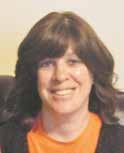
Got a problem? Email Rachel at oyvey@atljewishtimes.com 250 words or less describing your problem. We want to hear from you and get helpful suggestions for your situation at the same time! Identifying details will be changed upon request.
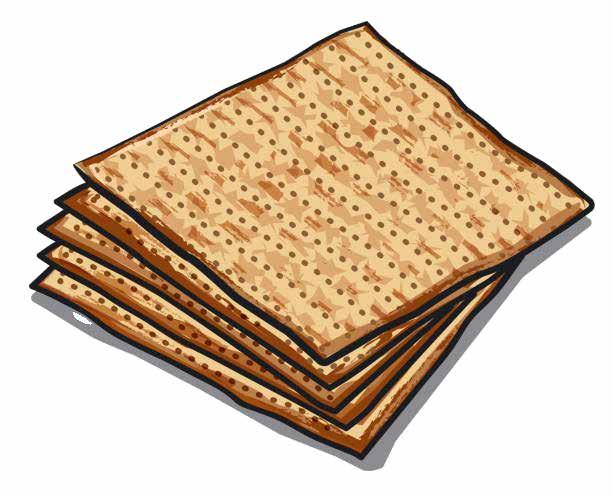
Moshe took his Passover lunch to eat outside in the park. He sat down on a bench and began eating his matzah. A little while later, a blind man came and sat down next to him. Feeling neighborly, Moshe passed a sheet of matzah to the blind man. The blind man handled the matzah for a few minutes, looked puzzled, and finally exclaimed, “Who wrote this?”
n. Cute slang for the Sabbath, during which challah is traditionally baked and eaten. The term has been generalized to mean any special day or vacation day, with or without bread.
“Morris and I had such a lovely challahday, I could plotz.”
The word challah has a long an appropriately twisted history, and similar braided egg breads can be found in Belarus, Ukraine, Russia, and even South Africa.
Difficulty Level: Easy
ACROSS
1. Tourist city in Italy
5. Regret
8. Out to lunch, so to speak
13. “Tears in Heaven” singer
Clapton
14. CPR performer, maybe
15. Top dog
16. The first of Tishrei
18. Clear, as a loan
19. Mythical dreamboat
21. Michaels and Franken
22. 16-Across is one
25. The first of Tishrei, technically
smartphone
58. Cambodian dollars
60. Like Ichabod Crane’s foe and
16, 25, 37, and 50-Across
64. “King Lear” nobles
65. Menachem’s borders?
66. Furry and friendly Endor resident
67. Actor Williams of “Happy Days”
68. Colleague of Curly and Larry

69. Opposite of allow
DOWN
1. Mouth of Israel?
2. Jewish name or savings account

3. Bro’s sib
4. One way to say one, in Hebrew
5. Upgrade the home
6. Where some make a pilgrimage to for 16-Across
7. Code of conduct
8. Frisch alternative
9. Say “Not guilty,” e.g.
10. Spirit for 16-Across?
11. One more likely to make a pilgrimage to 6-Down for 16-Across
12. Woohoo!
17. “And now, without further ___”
20. Mu___, Disney dragon
22. Gridiron units, for short
23. Miner’s discovery, perhaps
24. Those who proved that Rav Amnon of Mainz did not write
“Unetaneh Tokef”, e.g.

26. Ocean predators
27. Abbr. after Shaker or Washington
30. Fem. school in Israel
33. Calendar square
34. Big name in violins
36. Big name in boxing
38. Chem. or biol., e.g.
39. Was justified in suing, say
40. Put down, as carpeting
41. Peninsula in Western Europe
43. End ___ high note
44. Hebrew U., for one
47. Colorado NHLers, to fans
48. Chaos
51. “Shalom”
53. Made like Joshua conquering Israel
54. Lazed
57. Fictional clownfish
58. “V for Vendetta” star Stephen
59. IRS-form ID
61. Lady lamb
62. Dan, to Jacob
63. Sun spot?






Jeanne P. Dreyfoos, a long-time resident of Atlanta, Ga., passed away at her home on Aug. 19, 2023, at the age of 101. Jeanne was known for her delightful sense of humor, her graciousness, sense of style, and the sparkle in her eyes. She was always active in supporting the lives of her family members, and she excelled in her own many accomplishments and achievements. Jeanne grew up in Charleston, S.C., the daughter of Lillian Furchgott and LeRoy Pinkerson, Sr., from two of Charleston’s most prominent merchant families.

During her long lifetime, Jeanne’s many activities and accomplishments included being a visual artist for over 80 years of her life, with talents as an award-winning painter and photographer. As a teenager, she was an avid sports enthusiast, excelling at tennis, softball, and as a varsity basketball player while she attended the College of Charleston. She received a business degree from Wayne Business College in Detroit during World War II, followed up by working with the Army Signal Corps and as a secretary upon moving to Atlanta. She was also a great cook who collected and updated recipes from her family reaching back into the 19th century; a homemaker active in the lives of her family, and in social and civic affairs: an enthusiastic traveler throughout the United States, Canada, Europe, and Jamaica; and a founding member of the Wednesday Bridge Group, which met for over 55 years. Her numerous oil and watercolor paintings grace many homes throughout the Southeast, and, following her passing, many will be donated for display in civic and public places throughout Atlanta.
Of all of her many talents and attributes, Jeanne was most beloved by all of her family and friends for her sweetness, kindness, thoughtfulness, and gift of laughter, which she inherited from both of her parents. Jeanne was married for 52 years to Wallace D. Dreyfoos of Atlanta, an executive at Lockheed Georgia Company, former president of the Georgia Ornithological Society, and founder of the Atlanta Audubon Society, who was instrumental in the creation of the Chattahoochee River National Park. Together, Jeanne and Wally designed and decorated their two contemporary-style homes in Atlanta.
Jeanne is survived by her two sons, William W. Dreyfoos, an Atlanta attorney, environmentalist for the Charleston Harbor Project, and nationally recognized composer, and Dale L. Dreyfoos, who recently retired as a professor of opera/music theatre at Arizona State University, following a long career as a stage director, singer, and actor in opera and music theatre productions, and as a teacher and mentor to many acclaimed performers on the opera and musical theatre stages throughout the world.
Graveside services were held Thursday, Aug. 24, 2023, at Arlington Memorial Park with Rabbi Peter Berg officiating.
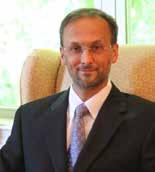


Shirley Finck, a beloved mother, grandmother, and great-grandmother passed away peaceably on Aug. 26, 2023. She is survived by two loving daughters, Barbara Landay and Denise Rothman, as well as a host of grandchildren and great-grandchildren.
Shirley was born and raised in Cleveland, Ohio, where she spent most of her life. Shirley’s desire to help others led her to pursue a master’s degree in social work at Case Western Reserve University.
Shirley enjoyed playing cards. She had a particular fondness for bridge and gin rummy.
She loved travel and cherished her memories of travel all over the world and in the United States.
In 2000, Shirley moved to Atlanta to be closer to her daughter, Barbara, forging new friendships and deepening family bonds. She enjoyed reading, watching movies, and attending classical music concerts. In her earlier years when her hearing was at its best, she enjoyed going to the theater.
Shirley loved to reminisce about her year in New York, 1944 to 1945, a time filled with new experiences.
Shirley was a devoted wife sharing 67 years of wedded bliss to her beloved Morris Finck. This love was a testament to the enduring power of love and partnership.
Shirley Finck will be deeply missed and remembered as a remarkable woman.
The family request that donations in her memory be made to the National Council of Jewish Women and Case Western Reserve’s Mandel School of Applied Social Sciences.
81, Sandy Springs
Nancy was born Aug. 27, 1942, to Julie and G.F. Baer in Glencoe, Ill. After she graduated from New Trier High School in 1960, she went on to study education at Washington University in St. Louis. There, she met her beloved, Alan Kessler, as he drove the carpool for the sorority girls performing in the Bearskin Follies variety show. Although Nancy’s first impression of Alan was to tell her roommate, “Don’t let me go out with him again,” Nancy and Alan were wed in 1964 and enjoyed 59 beautiful years of marriage, raising two children together.
They spent those years creating a life in 14 different homes as they built a family and a career in Deerfield, Ill., Pittsburgh, Penn., Michigan City, Ind., Danville, Va. and Dunwoody/Sandy Springs, Ga. In each of those places, Nancy created an inviting home and a network of friends that became her second family. Many of those friends were made when Nancy was on the tennis courts and dancing up a storm with Alan in recreational square dance clubs. As her children grew, Nancy became increasingly involved in Jewish organizations. This included roles as president of the local Hadassah chapter, employee of Hadassah, president of Temple Jeremiah Sisterhood, Temple Jeremiah board member, and Beth Shalom Sunday school teacher. During her empty nesting phase, Nancy enjoyed working with her sister, Peggy Swartchild, at Peggy’s store, Material Possessions. Simultaneously, Nancy was very involved with her children’s activities and school groups. Her final move was to Dunwoody where she became the Dunwoody Newcomers Club president. She made many wonderful friends in the Dunwoody community and enjoyed many years of mahjong and canasta games, clubs, water aerobics, and Pilates.
Nancy is survived by Alan Kessler, (husband), Bruce Kessler (son), Janet Armstrong (daughter), Maggie Armstrong, Claire Armstrong, David Armstrong, Hailey Kessler, and Lindsey Kessler (grandchildren).
In lieu of flowers, memorial donations may be made to Hadassah. Services were held at Rosehill Cemetery, 5800 N Ravenswood Ave, Chicago, Ill., 60660 on Sunday, Sept. 10 at 10 am. A memorial service was held at Temple EmanuelEl of Atlanta, 1680 Spaulding Drive, Sandy Springs, Georgia 30350, Sept. 13 at 10 a.m. Dressler’s Jewish Funeral Care, Atlanta, GA 770-451-4999.

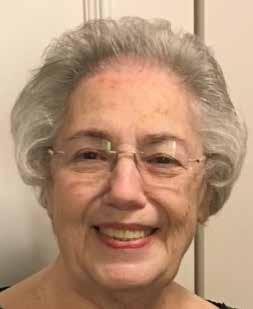
Marsha Kass Marks, a dedicated educator and lifelong learner, passed away Sept. 8, 2023. Born May 6, 1935, in New York City, Marsha’s life was a testament to the power of knowledge and the impact of a loving wife and mother.
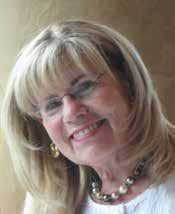
Marsha’s thirst for knowledge and academic achievement was evident from an early age. She graduated summa cum laude from Hunter College in 1956 and graduated Yale University in 1957 with her master’s degree in history. Marsha’s academic achievements laid the foundation for her lifelong dedication to teaching and learning. Throughout her 56-year teaching career, Marsha had the privilege of inspiring countless minds. She began teaching at Georgia State University when it was housed in just one building; it now covers much of downtown Atlanta. She then joined Alabama A&M University as associate professor of history when she and her husband moved to Huntsville, Ala., after they married in 1965. She taught at Georgia Perimeter College once she moved back to Atlanta in 2007 to live with her daughter after her husband’s death.
Marsha was an avid reader with an insatiable curiosity. Her personal book collection numbered into the thousands (mostly history, murder mysteries, and science fiction). She loved holding books and never adopted Kindles or iPads; she often referred to herself as a closet Luddite. She was also a passionate believer in the separation of church and state, reproductive rights, and civil rights for all – and readily shared her thoughts, none of which were popular topics when she lived in Alabama in 1960s until she moved back to Atlanta in 2007.
Beyond her scholarly pursuits, Marsha will be remembered for her sweet nature, her sense of humor and ready laugh, and her unwavering love for and dedication to her husband and daughter. She touched many people with her sweet smile, leaving an indelible mark on the hearts of those who knew her. Marsha Kass Marks will be deeply missed, but her memory will live on through the lives she touched, the knowledge she imparted, and the kindness she showed to others.
She was preceded in death by her beloved husband of almost 40 years, Henry Marks. She is survived by her daughter, Barbara Marks, her sister, Dr. Nanette Wenger, her three nieces, and her great-nieces and -nephews. In lieu of flowers, please make donations to the Atlanta Humane Society or Jewish Children’s Regional Service (jcrs.org). Arrangements by Dressler’s, 770-451-4999.

Phillip E. Rosner, age 80, of Roswell passed away Sept. 2, 2023. Phillip was born in Chicago, Ill., to Samuel and Mildred “Mollie” Rosner. He earned a BA in psychology from Indiana University, Bloomington, and PhD in organizational psychology from Georgia State University. He was a founding member and past president of Phi Epsilon Pi, Beta Eta chapter.
He moved to Atlanta in 1967. In 1974, he founded and served as president, Human Resources Development Inc, where he advised major corporations through team building, leadership development, pre-employment assessment, and organizational development. In addition, he consulted with Hilton Hotels Corporation, Merv Griffin Productions, and the founders of the company that became Sprint, Peachtree City Development Corporation, AT&T, and many more. He served on the executive board of the Cobb Workforce Investment Authority. He was a member of B’nai B’rith, Mensa, Hebrew Order of David, and Congregation Etz Chaim for nearly 40 years. He loved traveling the world with his wife, singing--both with choirs and playing his guitar, acting in community theater--receiving an award for long hours and dedication for the Cobb District Attorney’s staff production of “The Sunshine Boys,” in 1992, sailing on Lake Lanier, reading, telling great stories, playing trivia and card games, learning new languages, and sharing his delicious cooking with friends.
He was preceded in death by his brother, Lawrence “Lorry” Rosner. He is survived by his wife, Peri Rosner, son, Seth Rosner, and his wife, Chelsea, daughter, Alicia Rosner and her partner, Dave Scaglione, and grandchildren, Jacob Rosner, Mason Rosner, and Elliott Rosner.
A graveside service was held Sept. 4 at Arlington Memorial Park. Donations may be made to Congregation Etz Chaim, www.etzchaim.net and Georgia Transplant Foundation, www. support.gatransplant.org. Arrangements by Dressler’s Jewish Funeral Care, 770-451-4999.
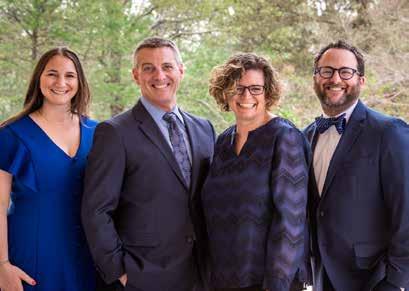


It is with deep sadness that we announce the passing of Sherry Shaw, 97, on Sept. 2, 2023.
Sherry was born April 9, 1926, to Ezra and Rachel (Sassoon) Hannon in Savannah, Ga. She graduated from Commercial High School in 1944 and, a few years later, moved with her family to Brooklyn, N.Y. Blessed with beauty, grace, and poise, she worked as a fashion model, featured in various newspapers. In 1948, Sherry met the love of her life, David, on a blind date. They were married in 1949, and, in 1956, they relocated with their three young children to Atlanta.
Sherry had a zest for life and a positive attitude. She was a role model and expected her family to do their best and be their best. She was a devoted wife, loving mother and grandmother, and a loyal friend. Sherry had a deep sense of pride and will be remembered for her kindness, dignity, and class.
Sherry lived life to the fullest and loved traveling the world with David. They celebrated 63 years of marriage until his untimely death in 2012. She also enjoyed playing golf, tennis, and mahjong. Sherry enjoyed entertaining and was the ultimate hostess, effortlessly delighting family and friends with her delicious Sephardic dishes at holiday gatherings and Shabbat dinners. Her home was always open to others.
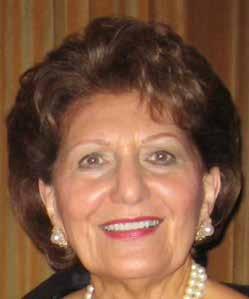
Survivors left to cherish her memory are her children, Roberta (Ronny) Carr, Donna (Mark) Levy, Alan (Devorah) Shaw; grandchildren, Steven (Sarah) Perkins, Ryan Carr, Jason Levy, Eden and Dalia Shaw; great-grandson, Dylan Perkins; sister, Rosalie Steinberg. She was preceded in death by her beloved husband, David, son, Stanley, sister, Mary Jacob, and brother, Jack Hannon, all of blessed memory. She will be sorely missed.
Donations may be made to AA Synagogue Rabbi’s Discretionary Fund or the charity of one’s choice. Dressler’s Jewish Funeral Care, 770-451-4999.

Obituaries in the AJT are written and paid for by the families; contact Editor and Managing Publisher Kaylene Ladinsky at kaylene@atljewishtimes.com or 404-883-2130, ext. 100, for details about submission, rates and payments. Death notices, which provide basic details, are free and run as space is available; send submissions to editor@atljewishtimes.com.

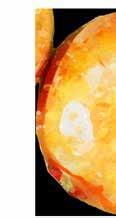

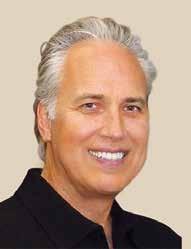




Shaindle


Schmuckler
Shaindle’s Shpiel
My sisters and I did not have a pet growing up in an apartment in The Bronx. Actually, none of the residents of our apartment building had a pet, either dogs or cats. My mom and dad were very afraid of dogs. Memories of the ‘old country.’
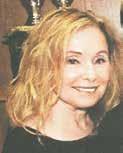

Let me clarify my previous statement. If you insist upon calling Tweety Bird a pet, then.
OK, we had a pet. Actually, my mom had a pet. Disgusting as it was, and a pooping king to boot! I was terrified of Tweety Bird. Truth be known, I am still a bit terrified of birds.
I love their beauty. I love to see them in flight. And, when I sit on my back porch, I love hearing the melodies all the
birds on my property sing.
I generally leave my screen door, leading from the back porch to the back of the property, open a mere crack. I do this in order for Ari to travel in and out at his leisure. I must always look both ways before exiting my kitchen through my French doors to my porch, given the birds who dwell in our trees, somehow find that itty bitty opening.
Gene and I chose to adopt dogs from the very beginning of our life together. Our girls, in particular -- our oldest, loved those dogs. She is still an animal lover and animal advocate. This child, my first born, carried a huge snake around her neck. Why, you ask? Ask yourselves why do our children ever do anything they do? I couldn’t begin to venture a guess.
We blessed our dogs with such interesting and creative names. Chien (“dog” in French), Tippesh (“stupid” in Hebrew) Patches, Shaina, Ariel. We were very fortunate in that our dogs were well behaved and loving. Well, except our dog in Stone Mountain, but let’s not dwell on
him. We returned him to the farm where he hailed from.
As each of the girls become empty nesters, an emotional support dog seems to be the salve for their sadness.
Raina’s dog’s name is Joey. Marla’s dog’s name is Kirby - go Dawgs. Lisie’s dog will arrive in about a year. Amie does not have a dog, YET. Her children have a way to go, before making her an empty nester in need of an emotional support dog.
What is the point of this shpiel? Why create an entire shpiel about a dog? Well, I find myself in need some emotional support. Ari, our cockapoo, celebrated his bar mitzvah this year. Yes, he turned the ripe old age of 91 (in dog years). He’s slowing down, showing his age.

These last few weeks have proven to be a real challenge for me. He continues to be engaged with us, he continues to walk outside, albeit at a much more leisurely pace. Because he has an enlarged heart, he is on water reduction medication. This means he can no longer hold his pishy all night long. One of the side
effects of these meds is I wake up each morning expecting a big wet area near my front door. I have begun to be grateful for that puddle. It tells me he made it through the night. Given his bed is in the family room, my beautiful wood floors at the front door seems to be his favored ‘spot’ of release.
He eats very little; he’s not even interested in his doggie ice cream (this makes me question whether or not he’s a true Schmuckler. We Schmucklers do not have any issues or problems cleaning our plates. We certainly do not have any problems devouring our ice cream).
It’s all very disconcerting. I am constantly checking his breathing. At night, I sleep in starts and stops. All through the night I find myself going downstairs to check his breathing. I took him to his vet, who feels his organs, heart and breathing are all OK. She does not think he is quite ready to ‘go.’
I am looking forward to a full night’s sleep. I actually look forward to that big wet spot at my front door. What I am not looking forward to is his departure. ì



VOTED BEST NEWSPAPER & BEST WEBSITE BY THE AMERICAN JEWISH PRESS ASSOCIATION 2022 AND 2023
We are looking for YOU to fill one of these positions. We offer competitive salaries, benefits, PTO and both national and Jewish holiday time off.
Atlanta Jewish Times has an immediate opening for an experienced administrative professional with office bookkeeping skills. Must be a quick learner who is highly organized, able to multitask in a fast-paced environment, and provide support at the executive level. Duties include creating and managing invoices; processing payments; day-to-day bookkeeping; reconciling monthly statements; maintaining calendars and scheduling appointments; handling phone calls and correspondence; and assisting in various projects and community events as needed. Requirements: Work experience as an Executive Assistant, bookkeeper, or similar role; strong MS Word and Excel skills; experience with QuickBooks; ability to work independently; familiarity with database management; outstanding organizational and time management skills; excellent verbal and written communications skills; discretion and confidentiality. Salary is negotiable.
The Atlanta Jewish Times has an immediate full-time opening for a dependable and organized individual to assist with front office tasks including circulation and subscription development. Responsibilities include customer service; answering phone calls and greeting visitors; handling subscription renewals and development; compiling and posting events online and in print; generating Excel reports; assisting in community engagement projects; and supporting staff with misc. tasks as needed. Direct knowledge of the Atlanta Jewish community a plus. $15-$20 per hour.
As an Account Manager, you will work with market leaders and trailblazers who know and trust us to deliver news and information that impacts their business. You will have a seat at the table with the business community’s most influential and affluent professionals.
We are looking for select individuals who are driven to succeed and value high expectations. Qualified candidates thrive in a dynamic, challenging, and hard-charging environment. They are confident selfstarters with a results-focused orientation and a proven track record of exceeding expectations. With a strong desire to represent the best of the communities that we serve, AJT enthusiastically invites diversity, thought and experience.
Salary plus commission: $50k-$125k annually.
The web and social media author / content coordinator is responsible for the content and images used on a website. You will coordinate planning, research, write copy and edit the content as posted on the website and social media platforms. Responsible for growing audiences on social media platforms including Facebook, Twitter, LinkedIn, and Instagram. Along with maintaining a posting schedule, you will regularly create platform-specific content including text posts, videos, and graphics. You must have a good eye for trends and an understanding of social media metrics, WordPress, Mailchimp, Google Analytics, and Search Engine Optimization, Facebook, Twitter, LinkedIn, and Instagram required. The ideal candidate possesses strong writing skills and a drive to jump into our fast-paced and friendly office. A knowledge of Judaism and the Atlanta Jewish community preferred. $28k-$45k annually.
We are looking to fill all positions as soon as possible. Send your resume to kaylene@atljewishtimes.com to schedule a Zoom or in office interview.
25 yrs exp CNA, with excellent references. Errands, appts, companion, Daily grooming. Jay 215-494-6543. Reasonable rates.











Mr. Weinstein is a seasoned attorney with over 20 years of experience providing counsel to companies of all sizes, from startups to Fortune 100 companies in the US and internationally.











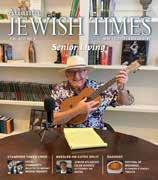



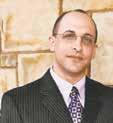


Celebrate the High Holidays with recipes you’ll love at publix.com/highholidays.
